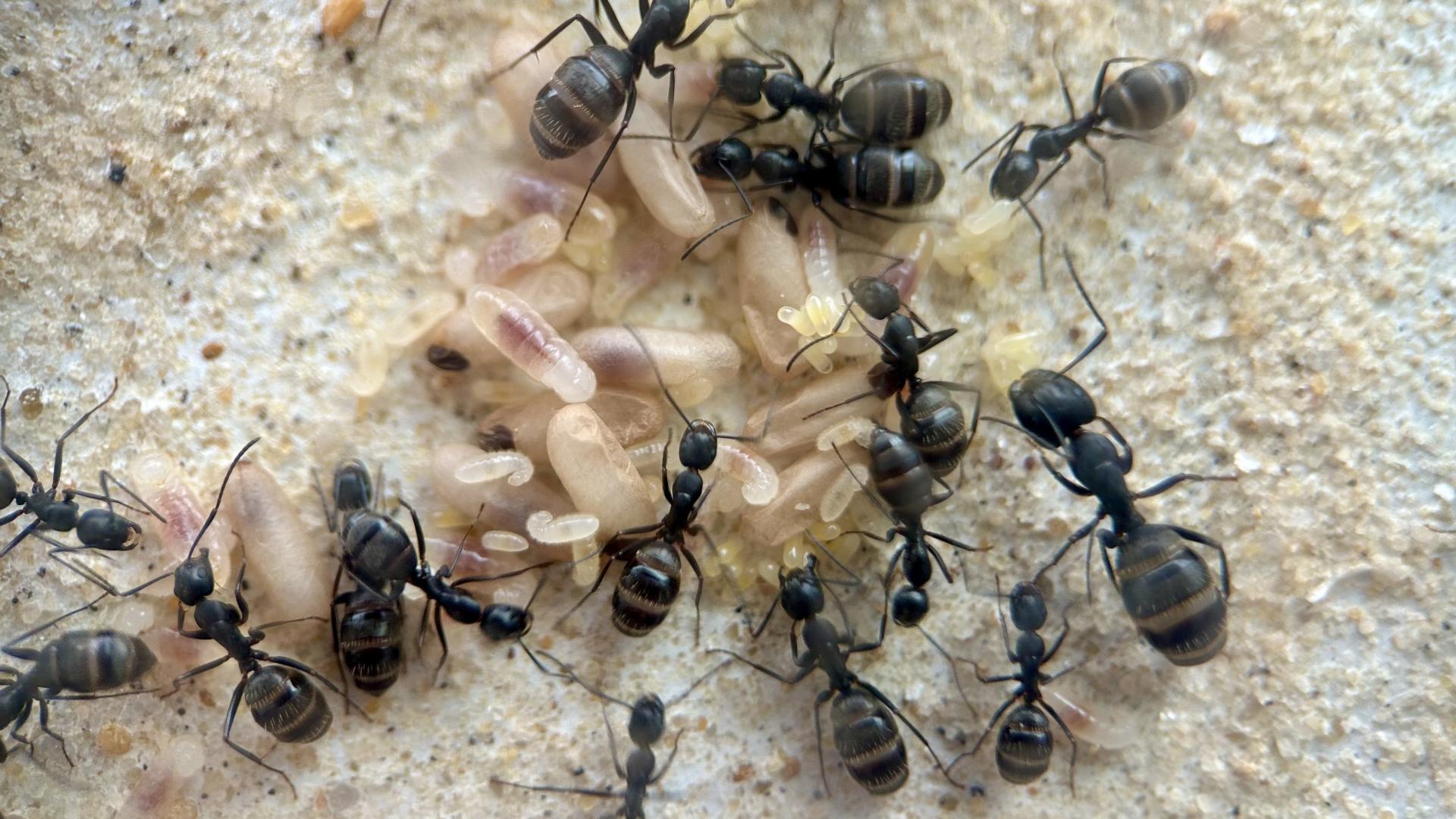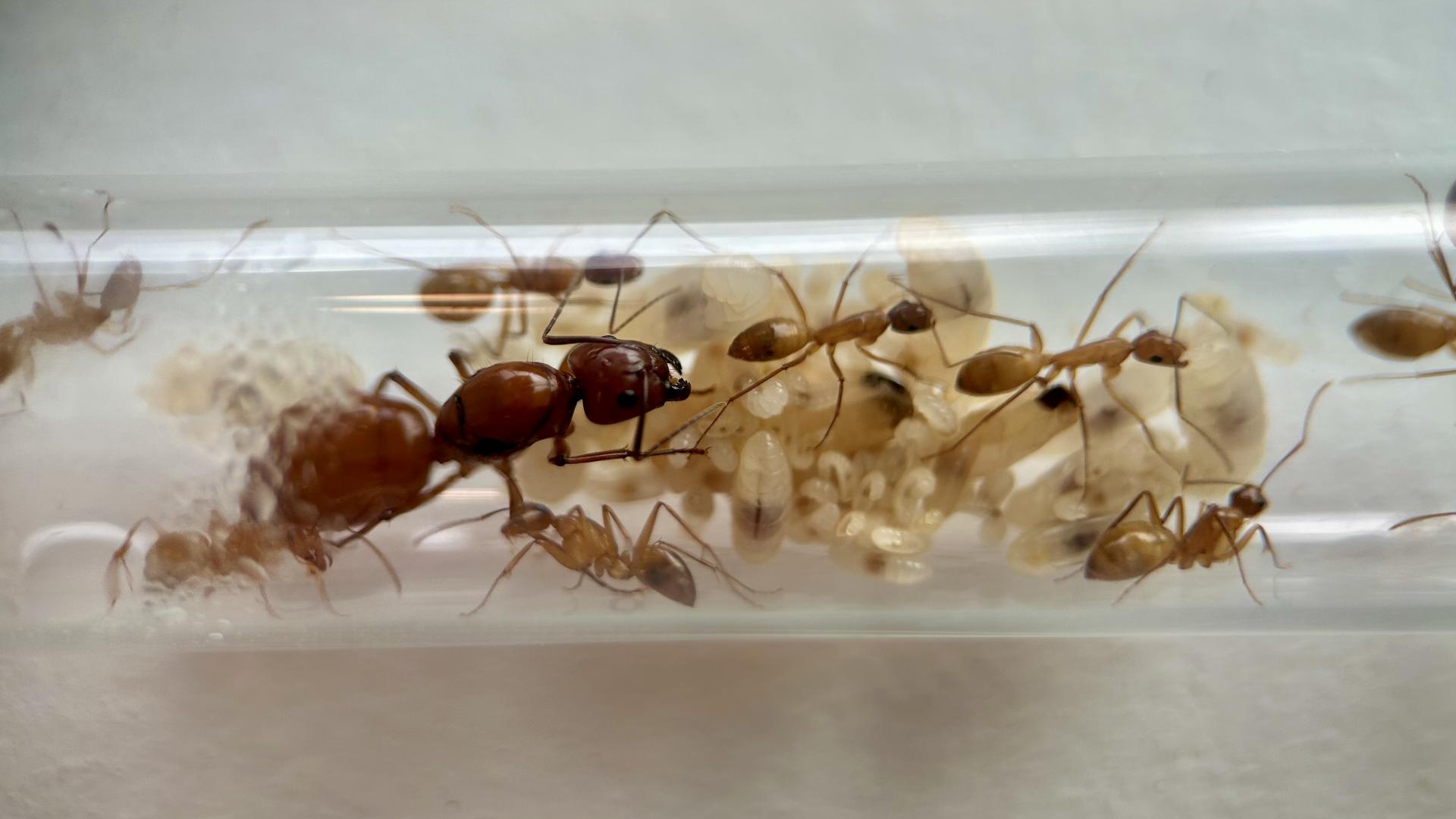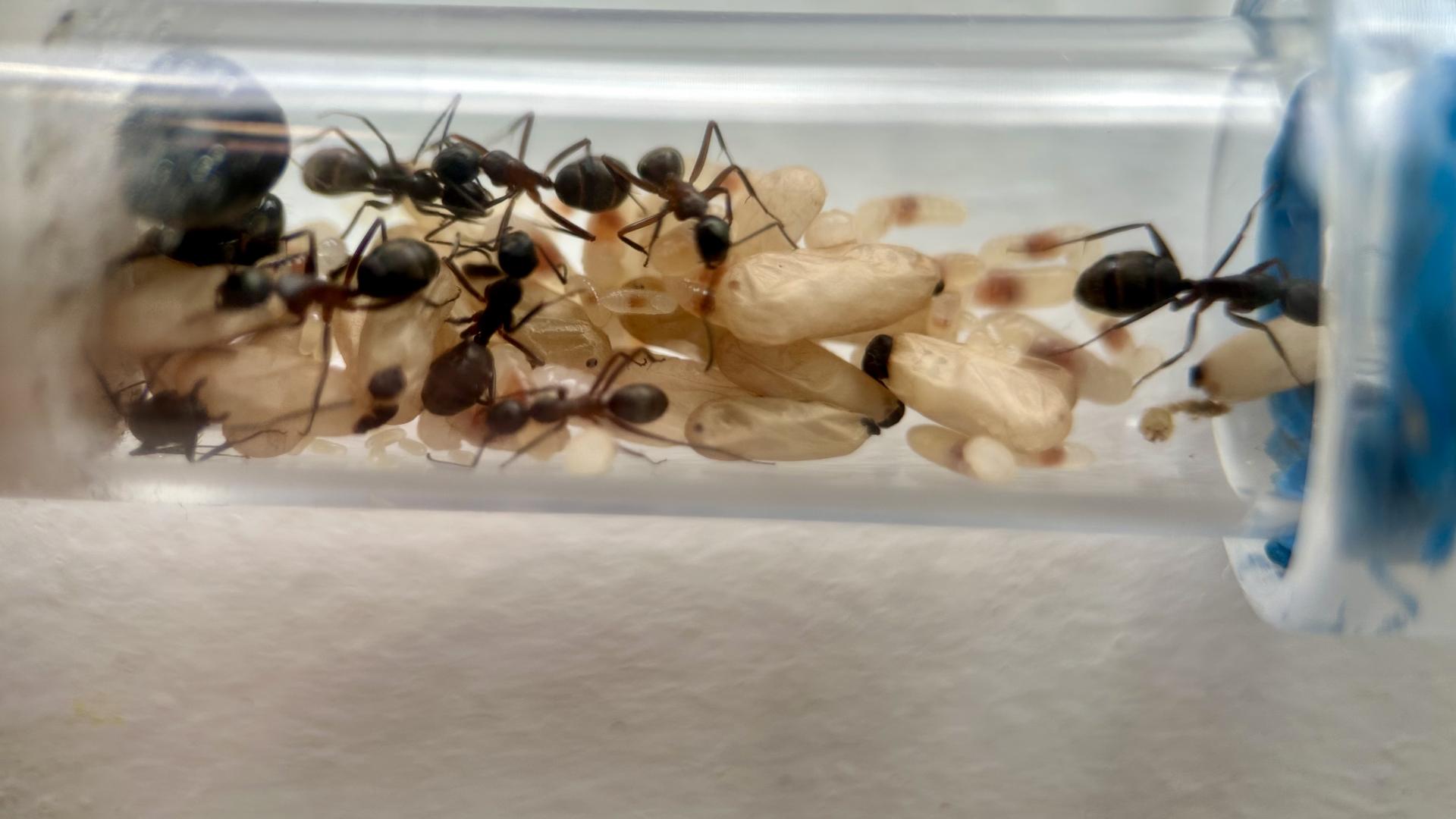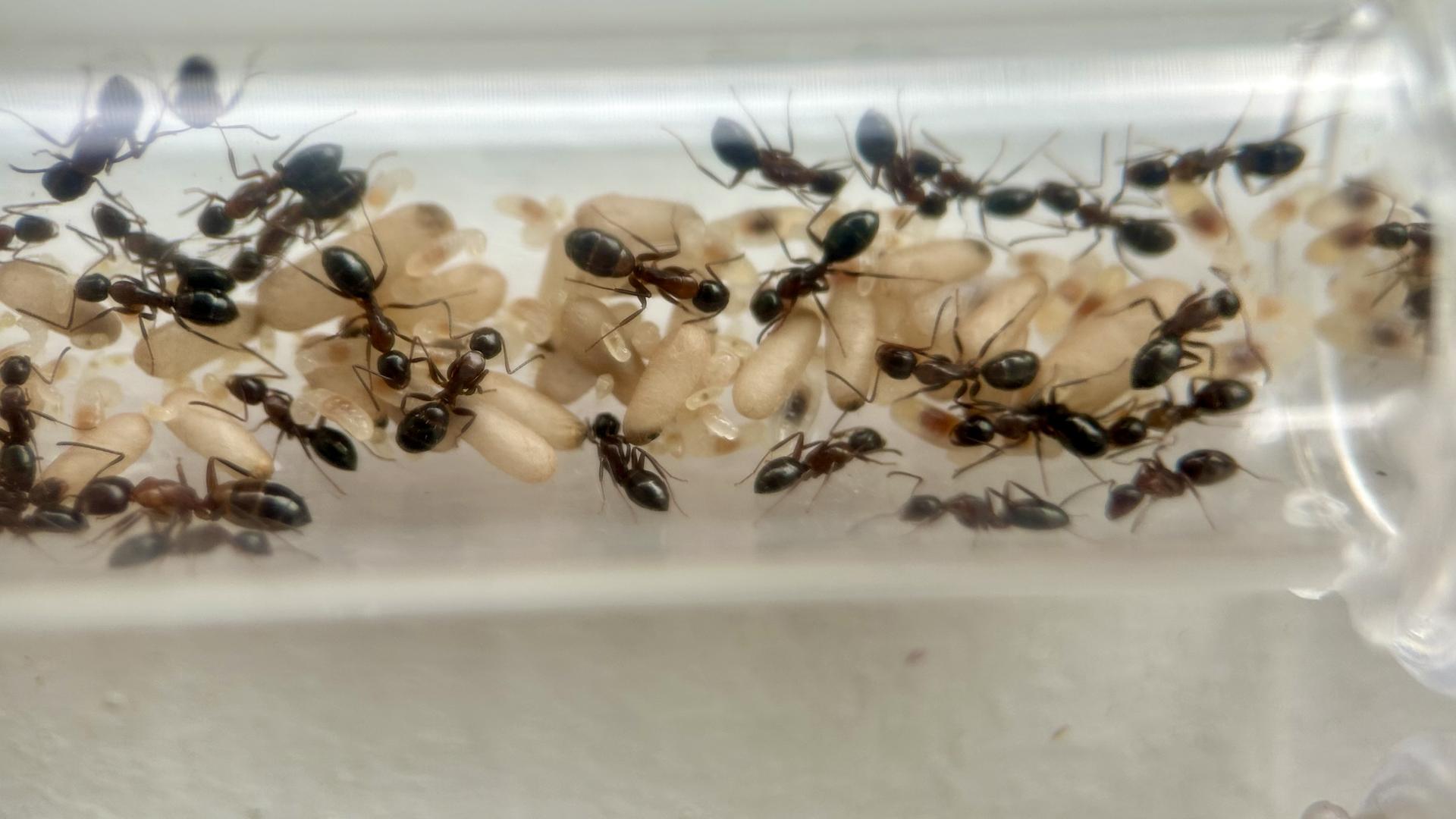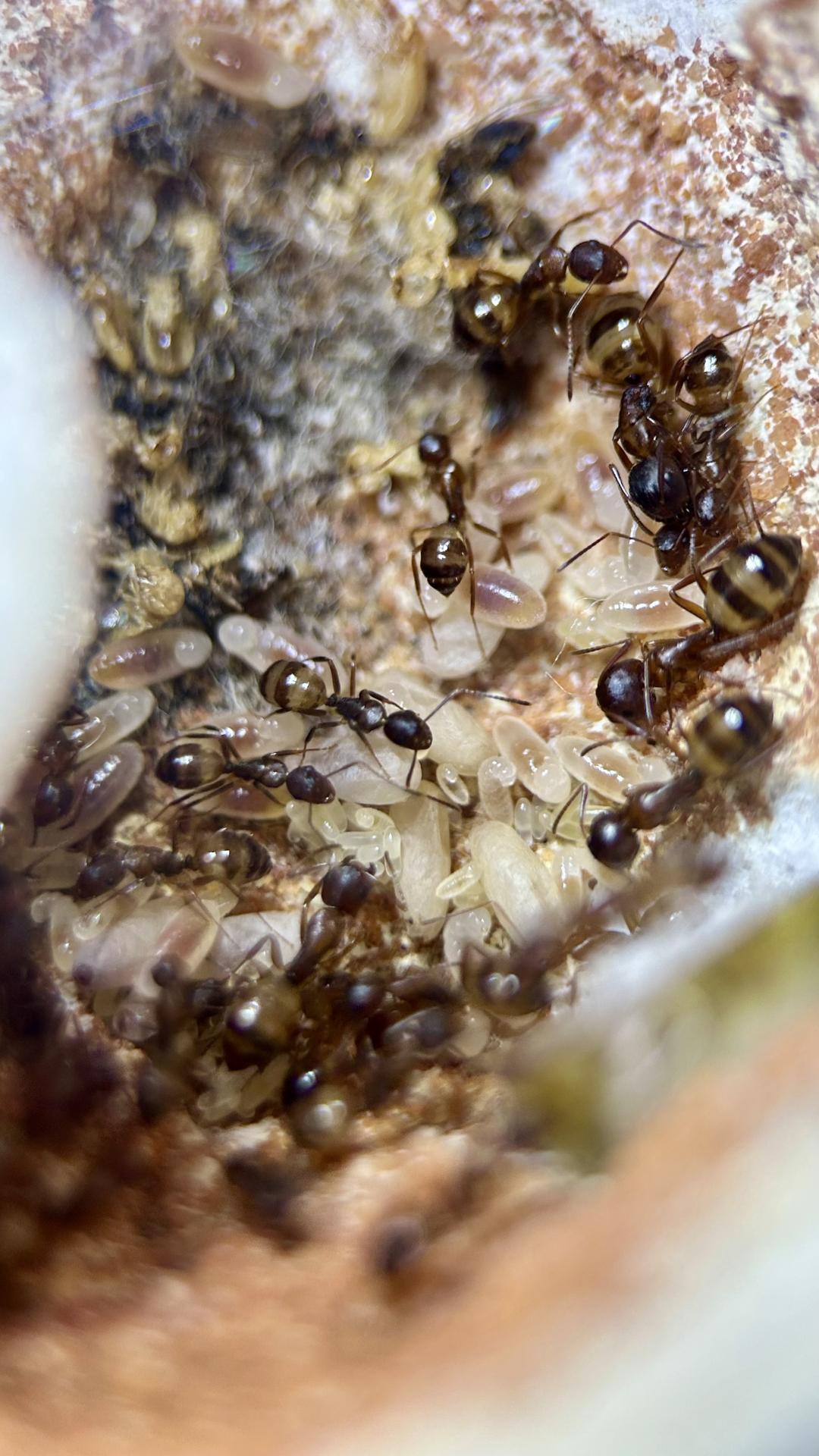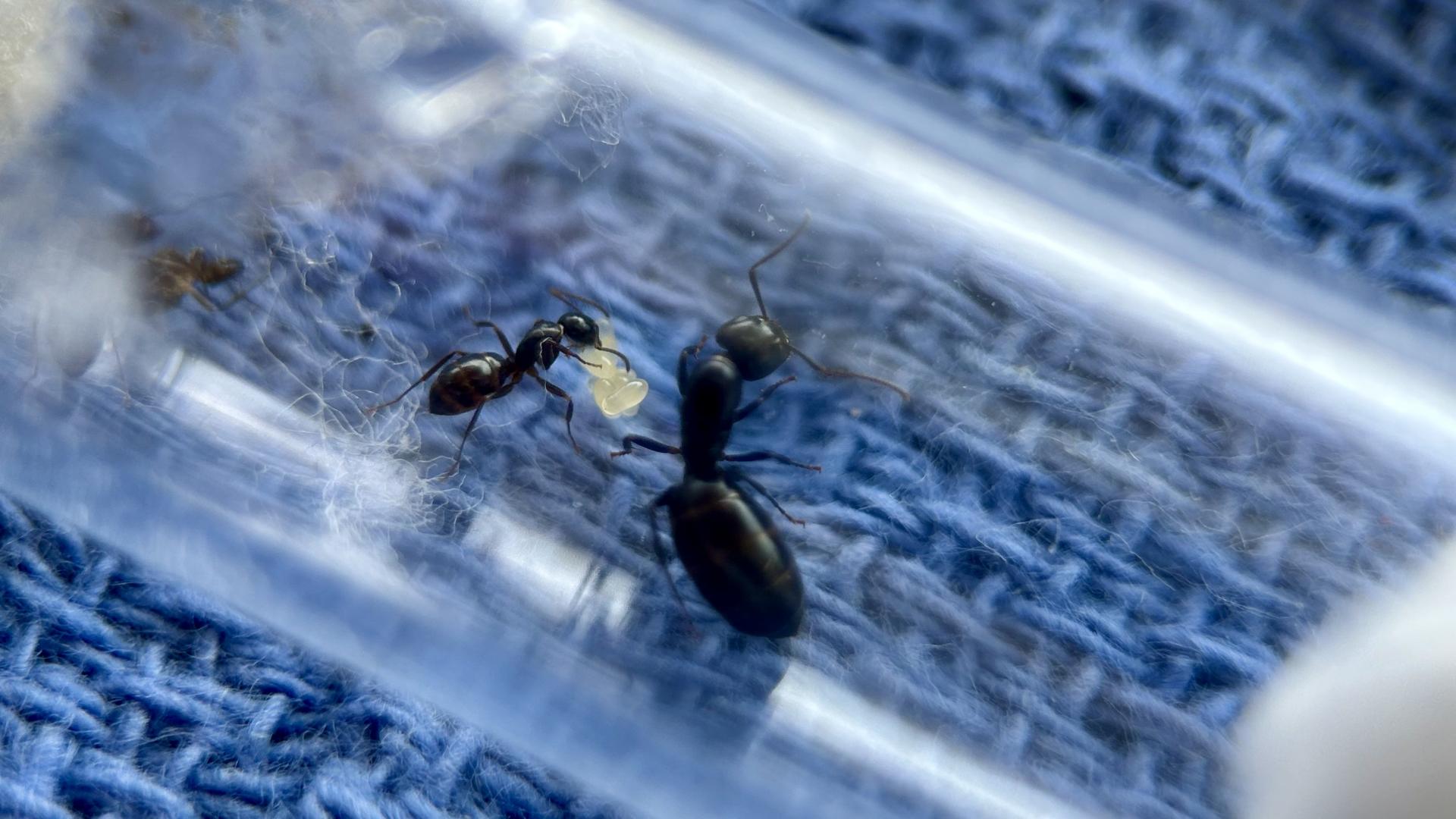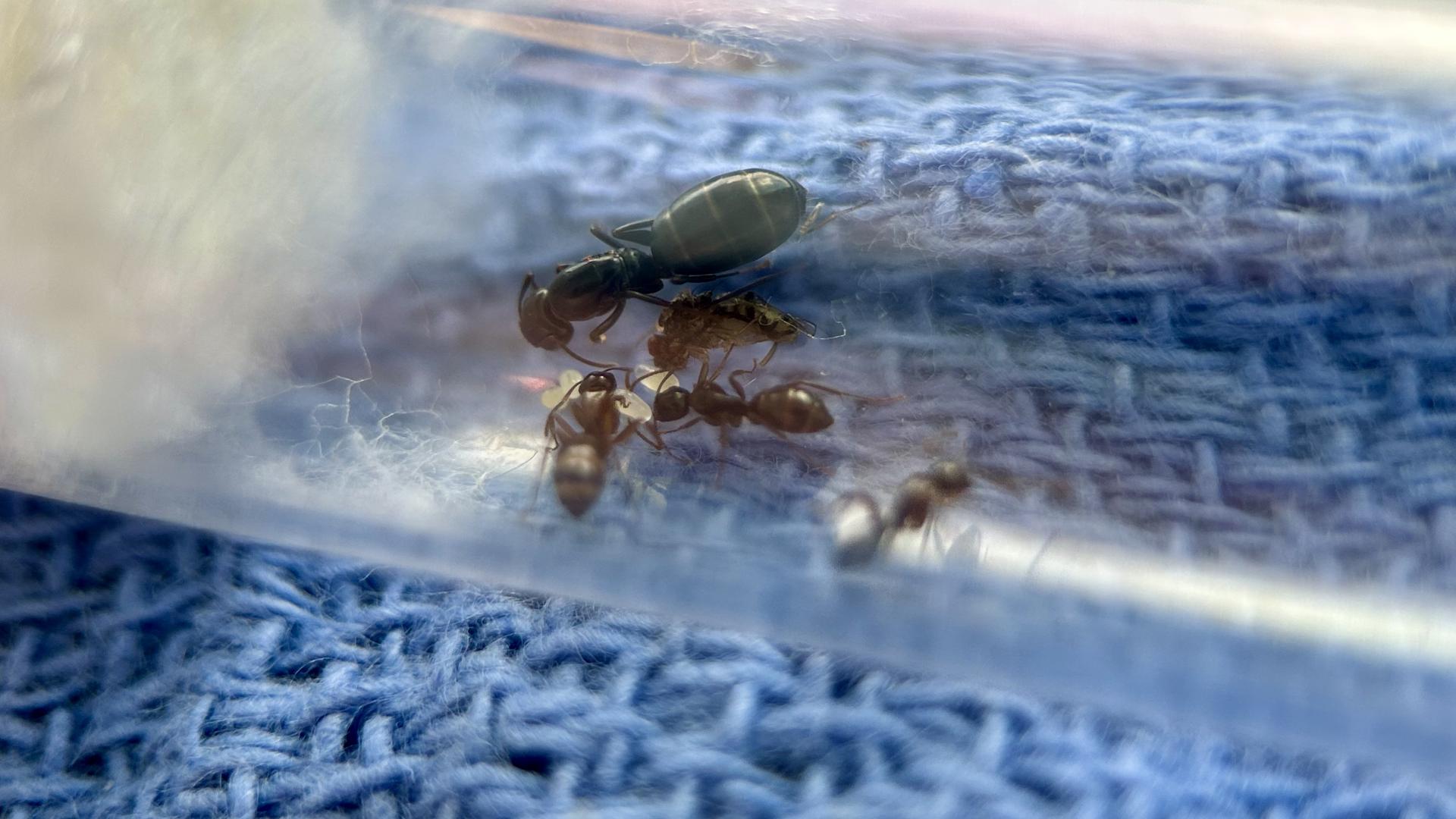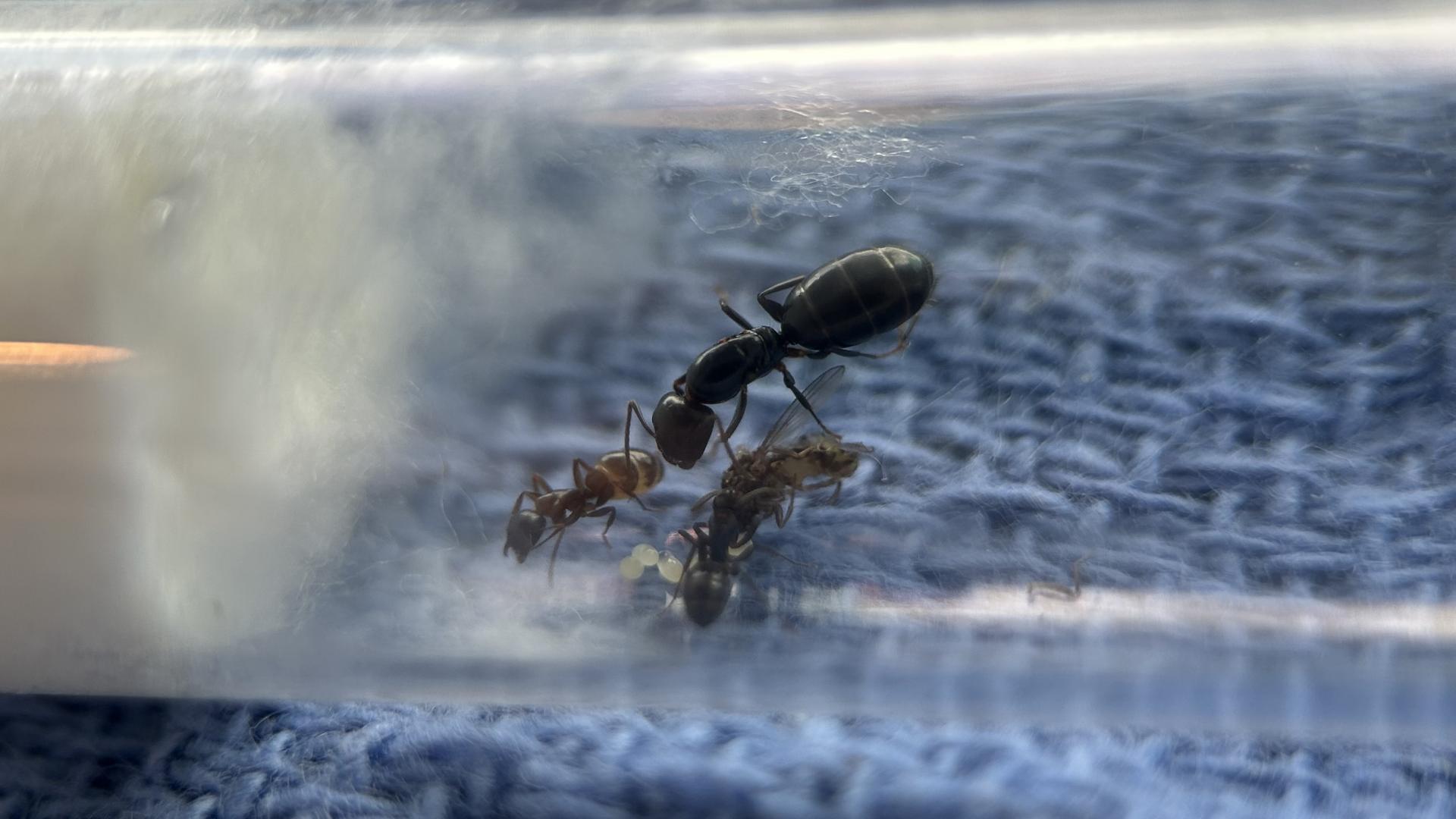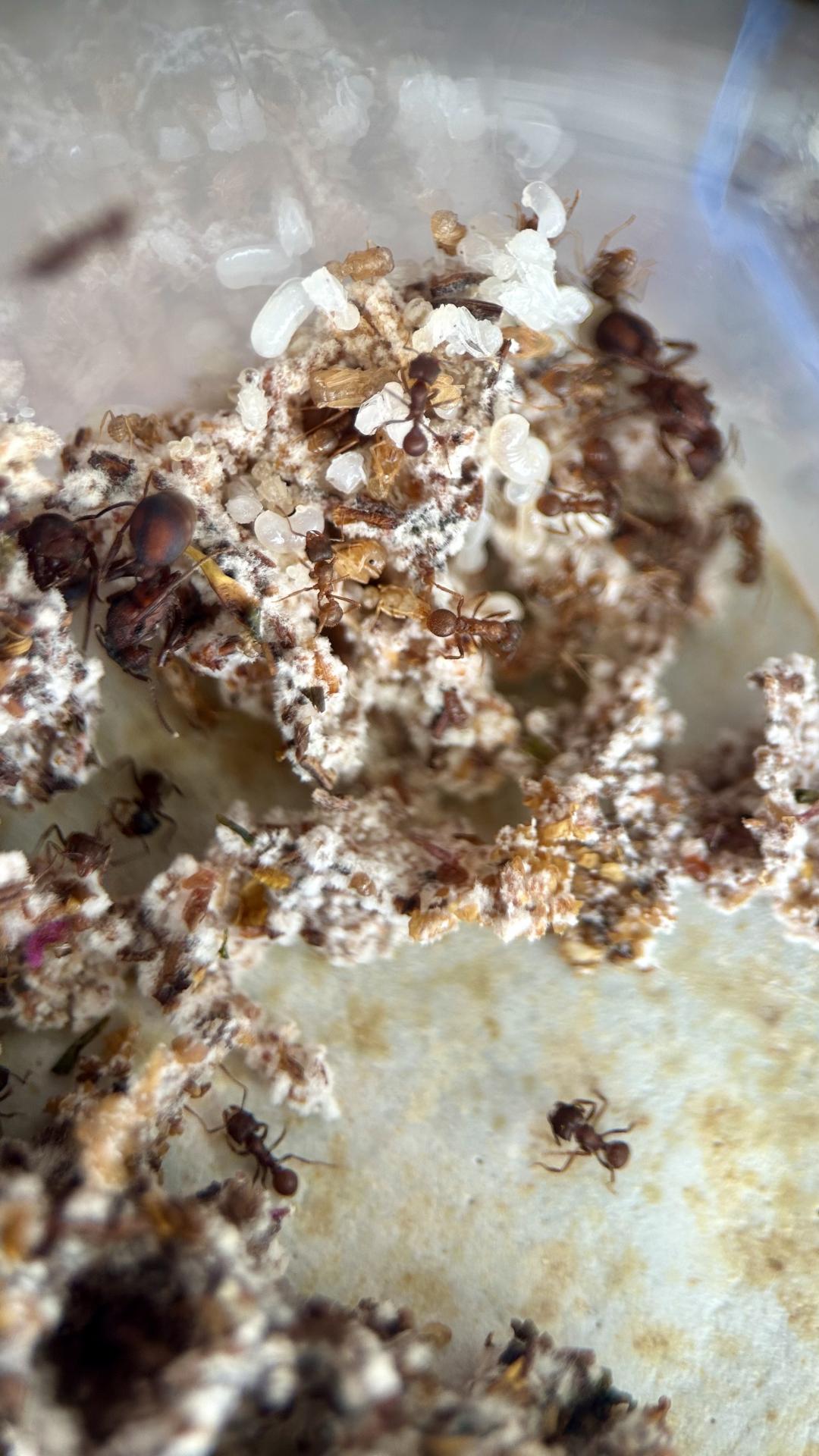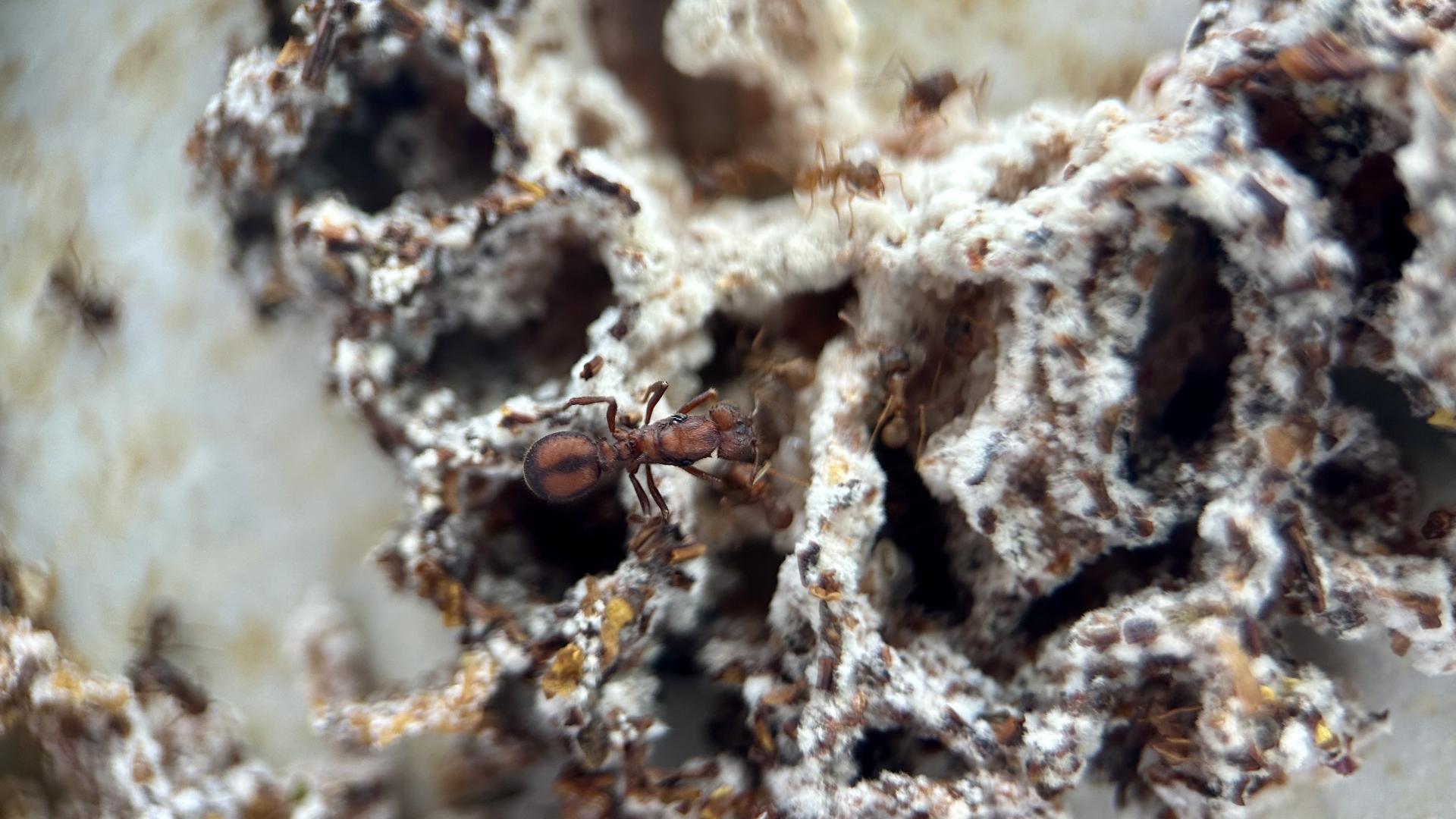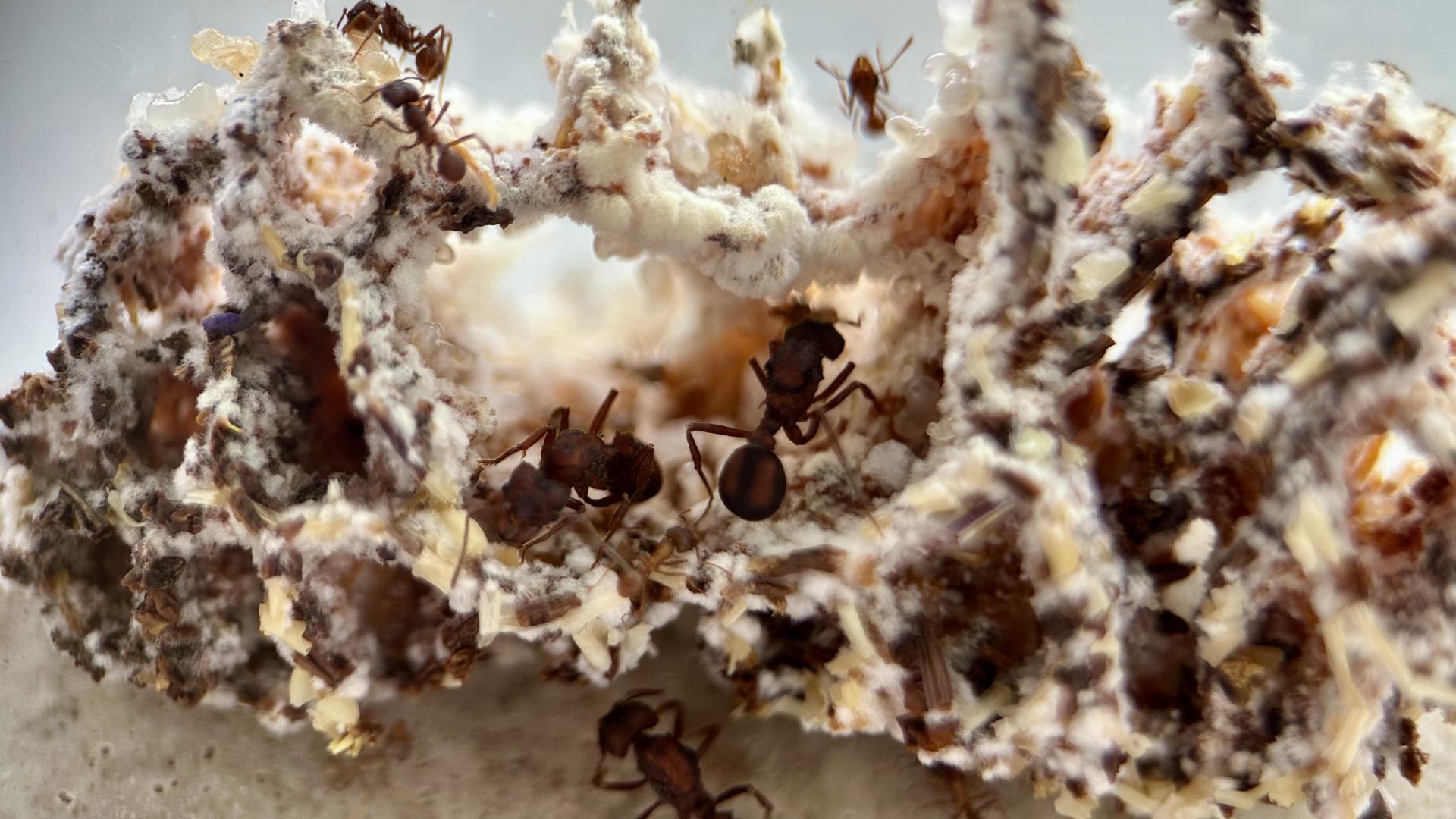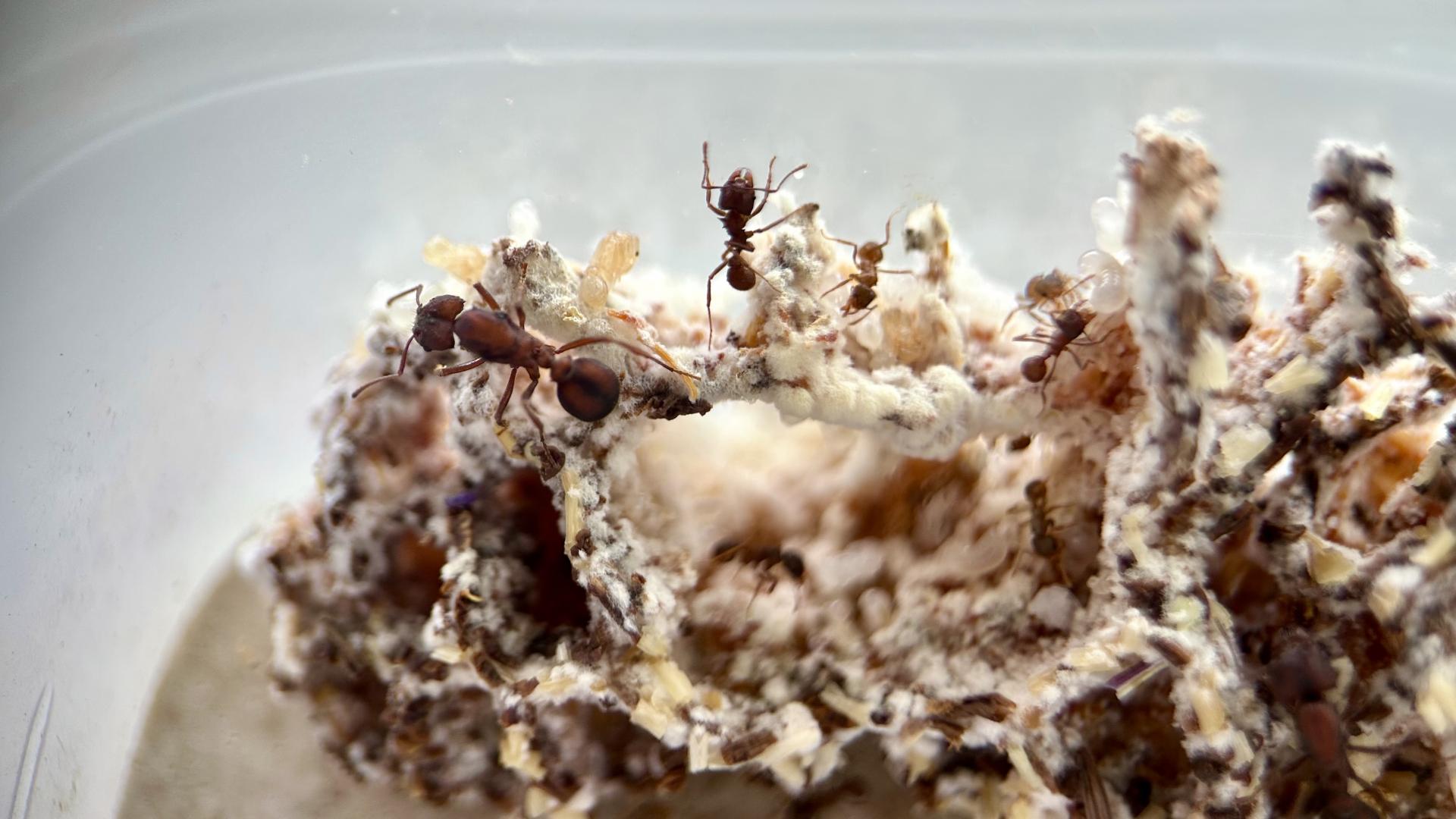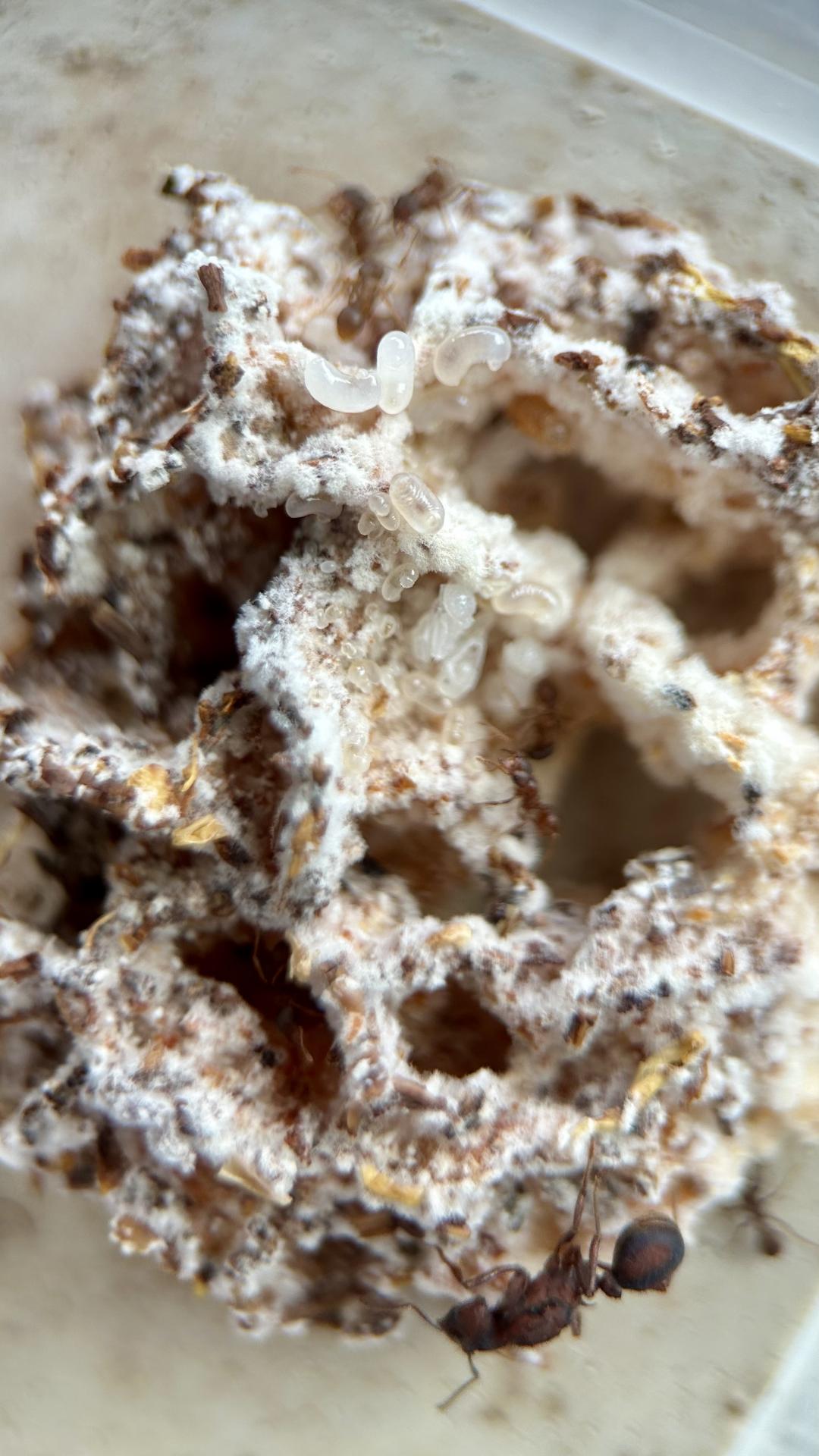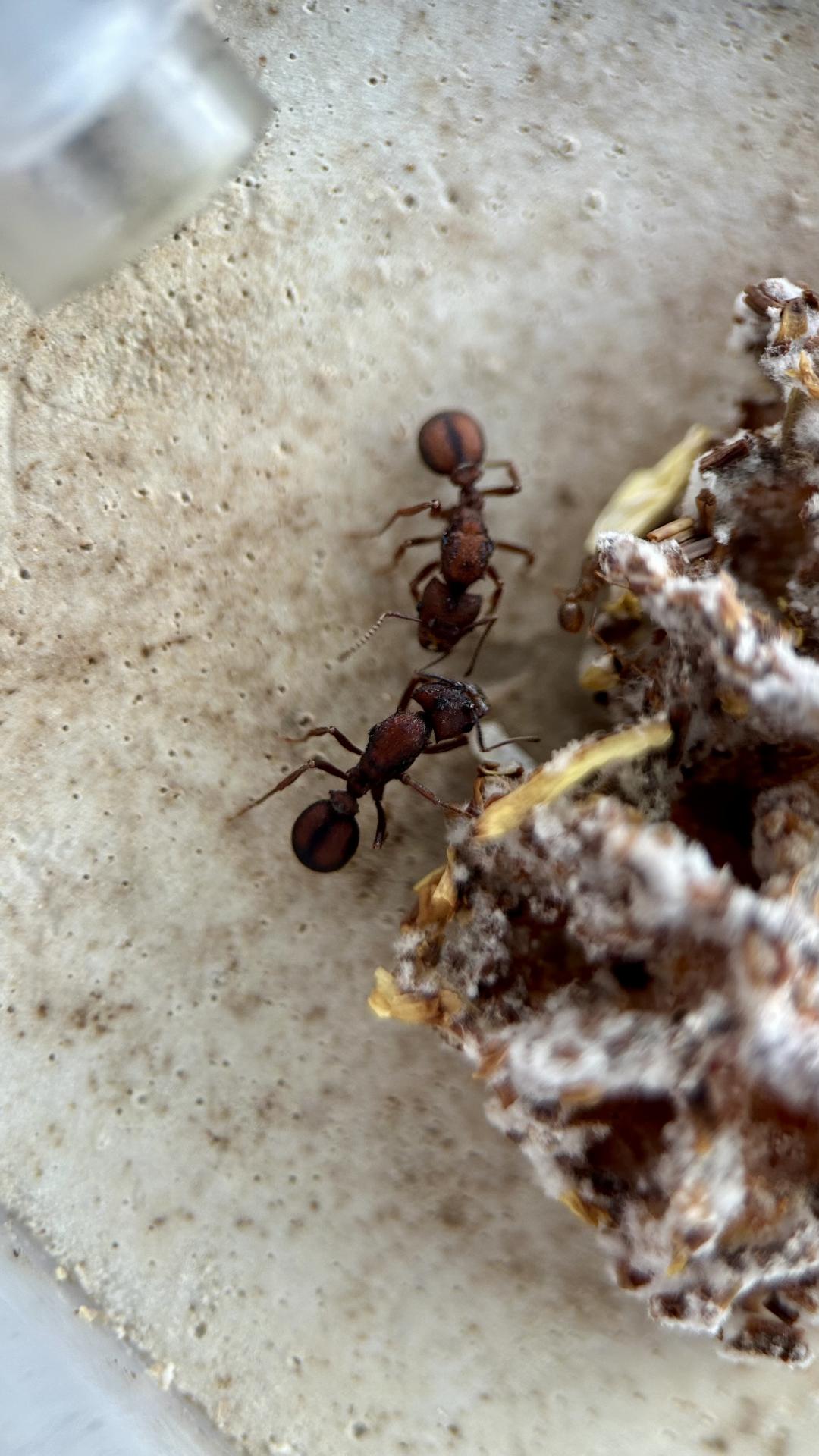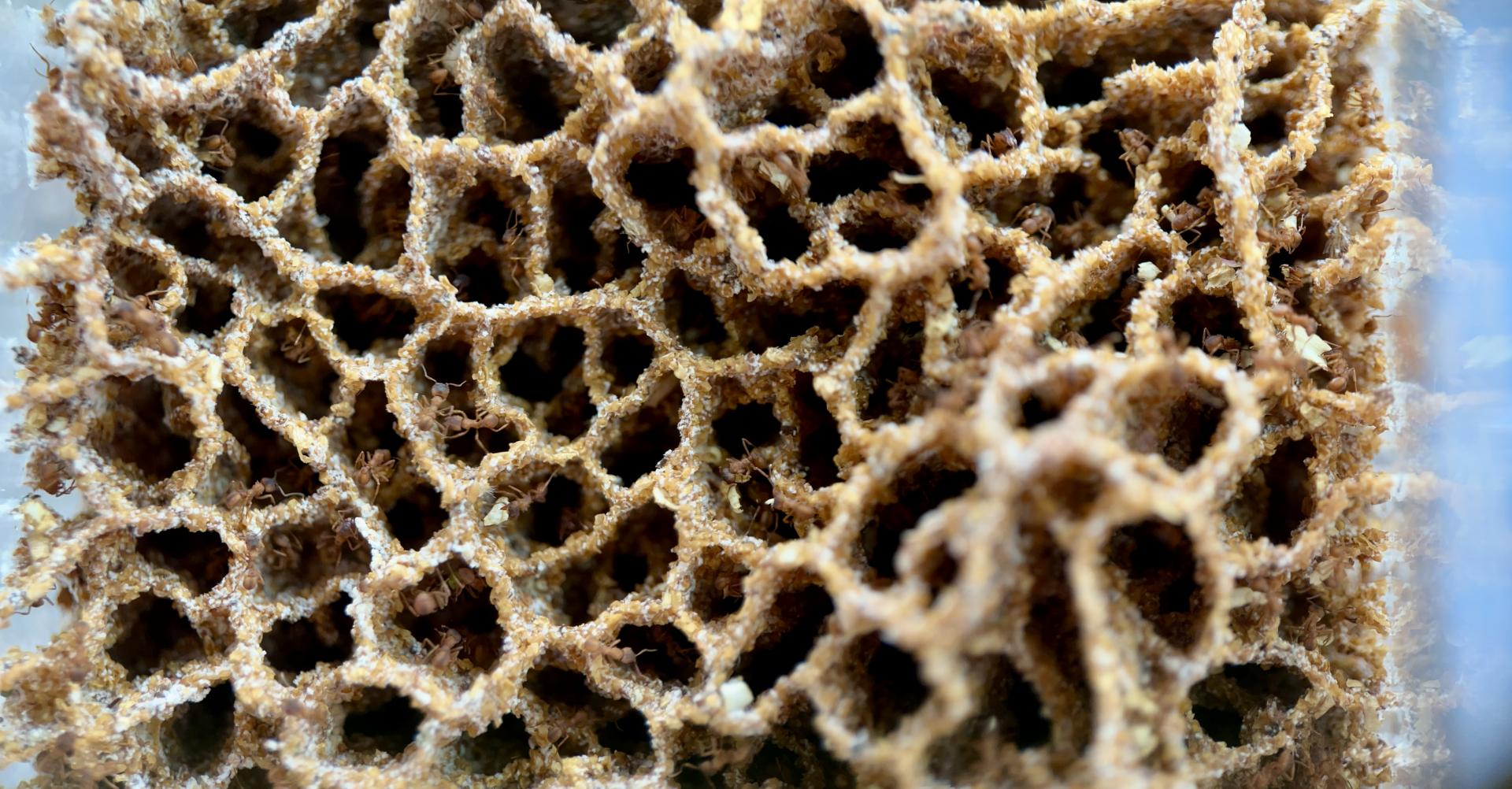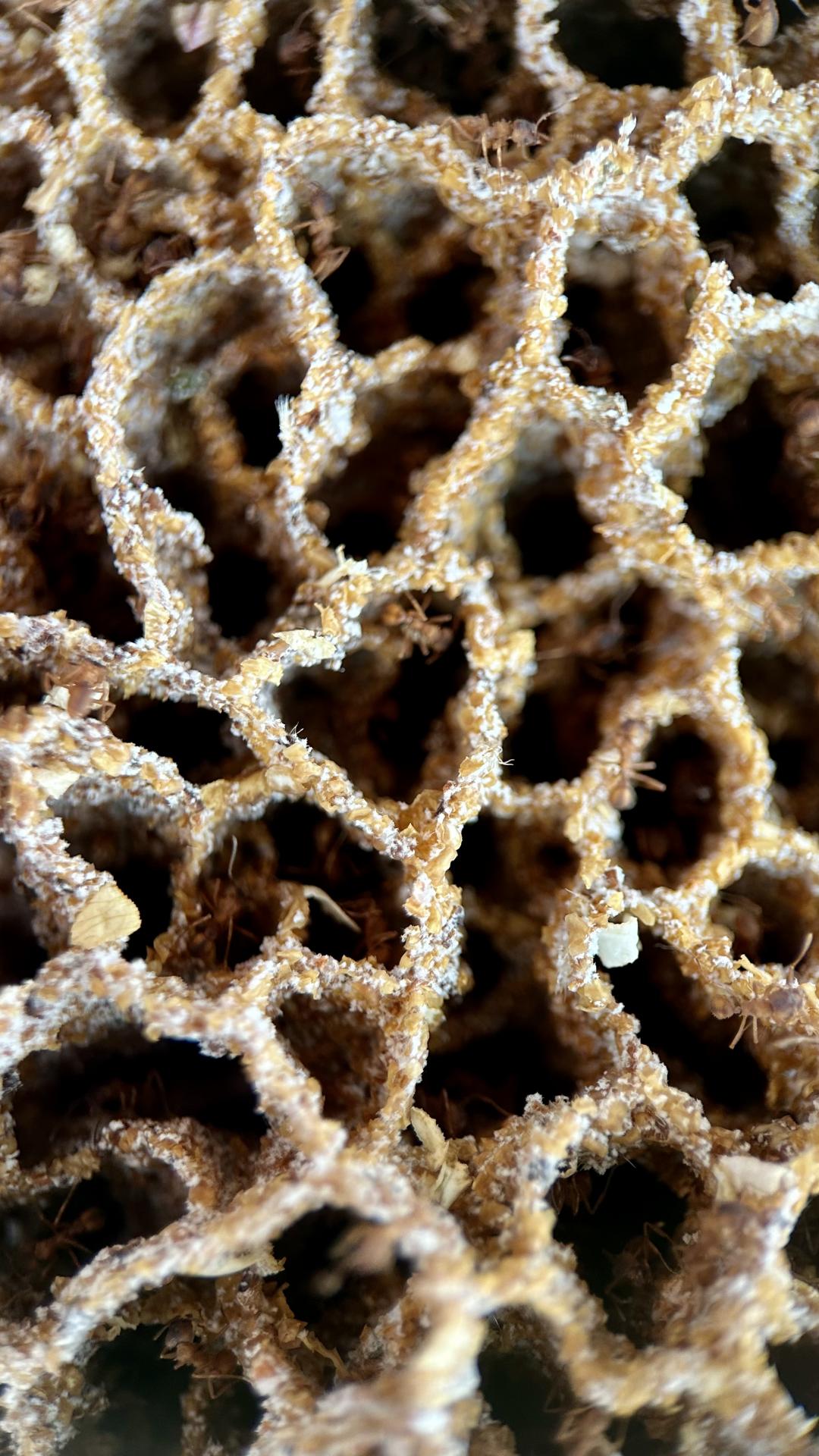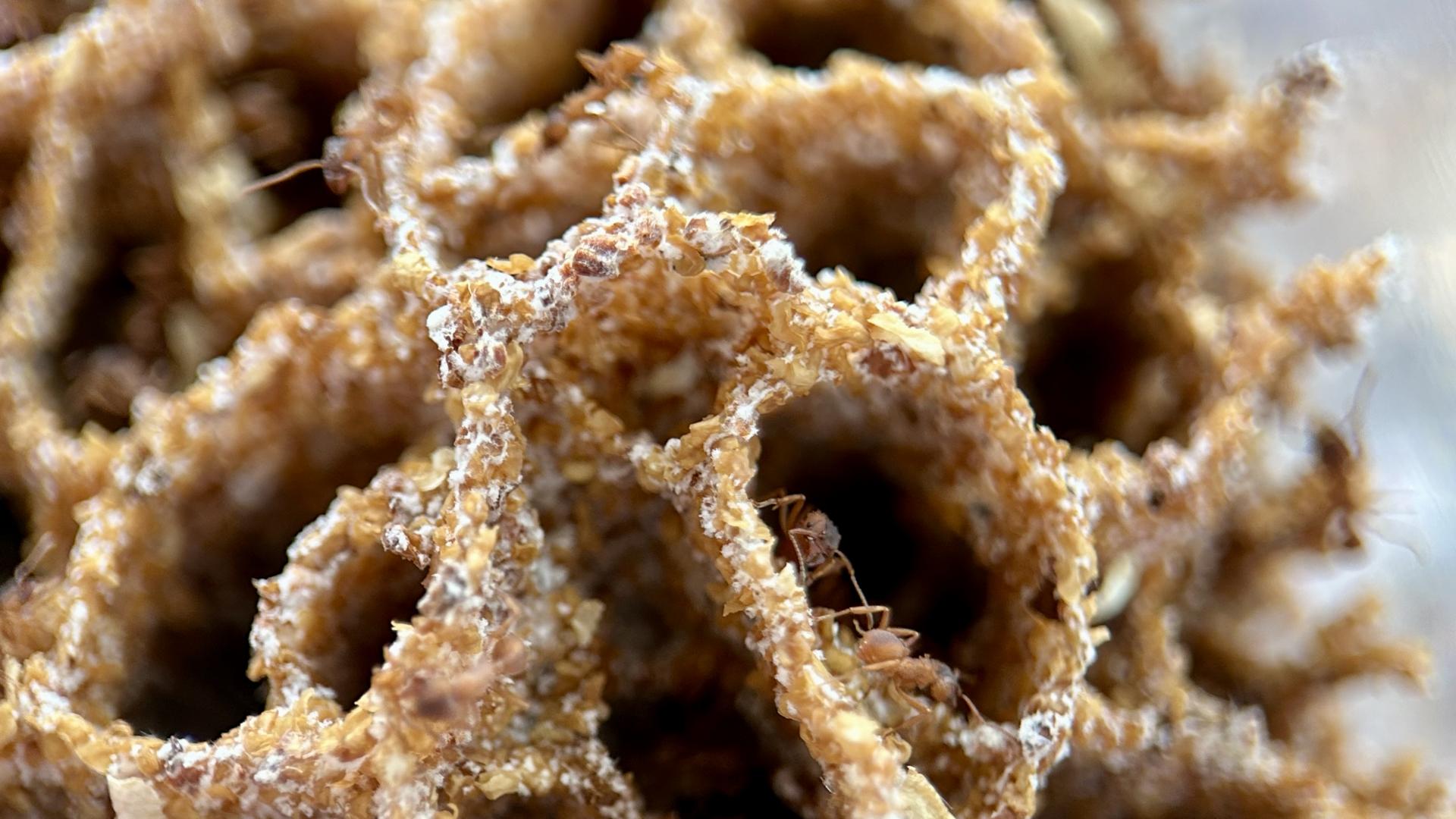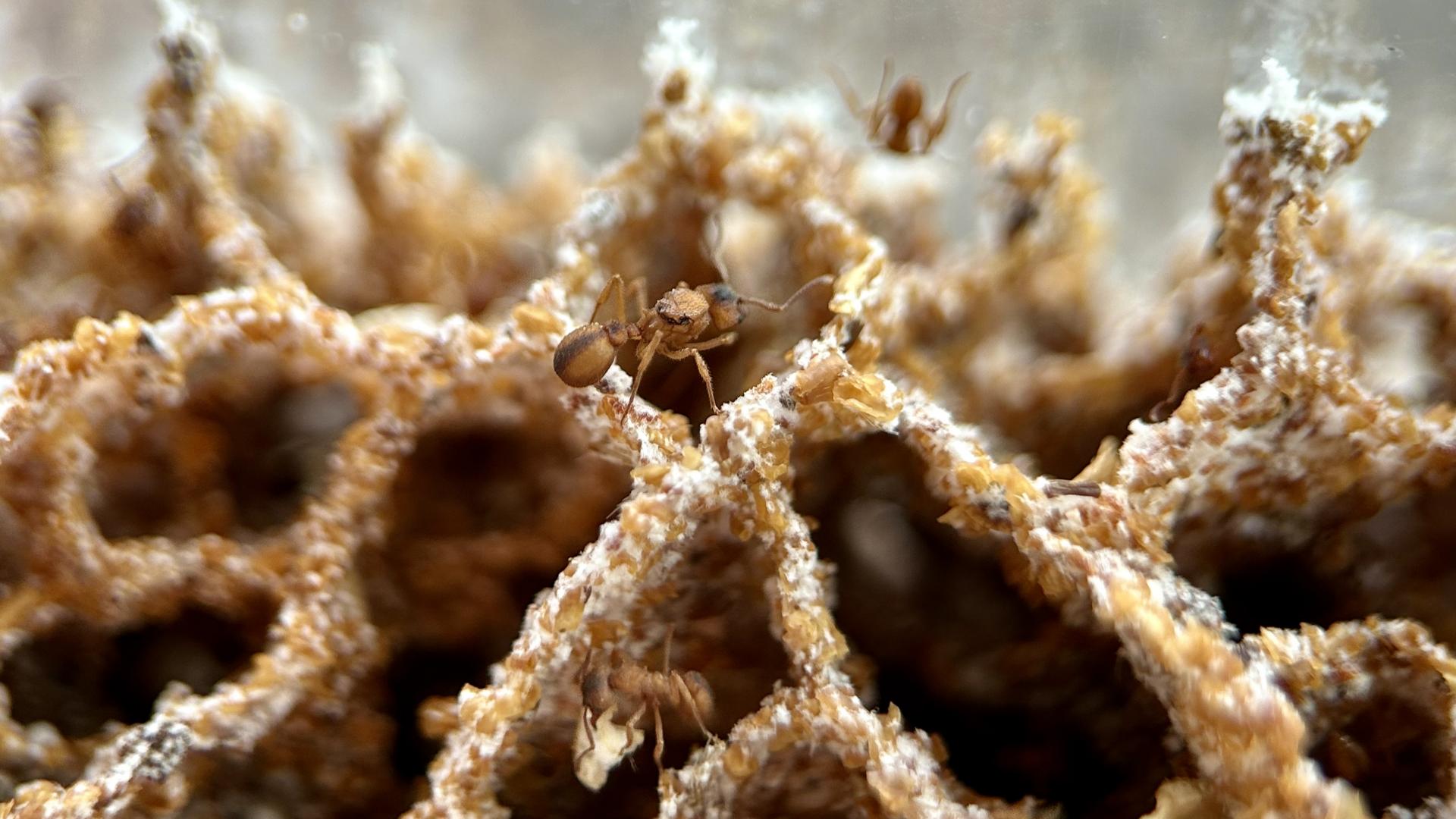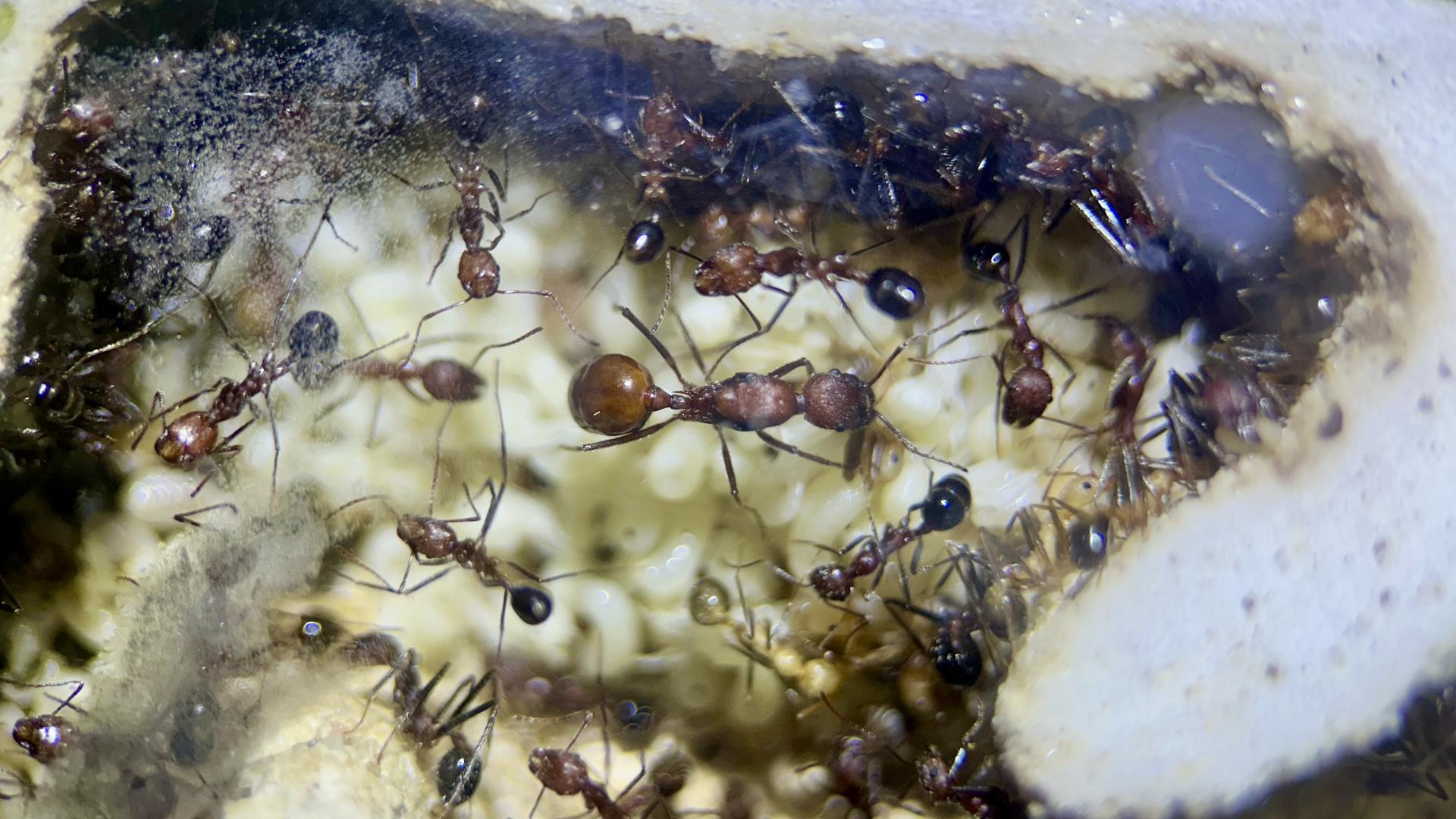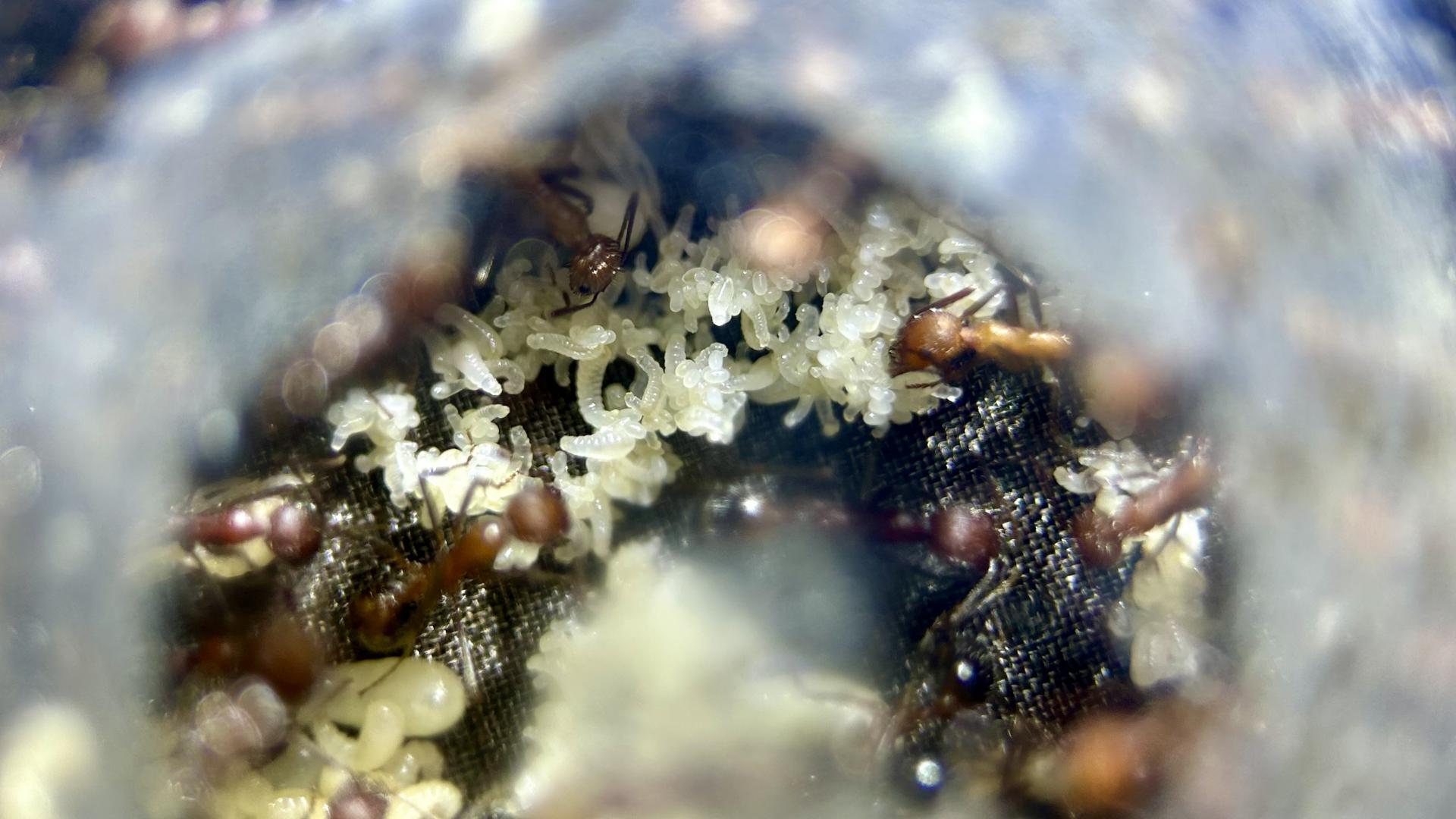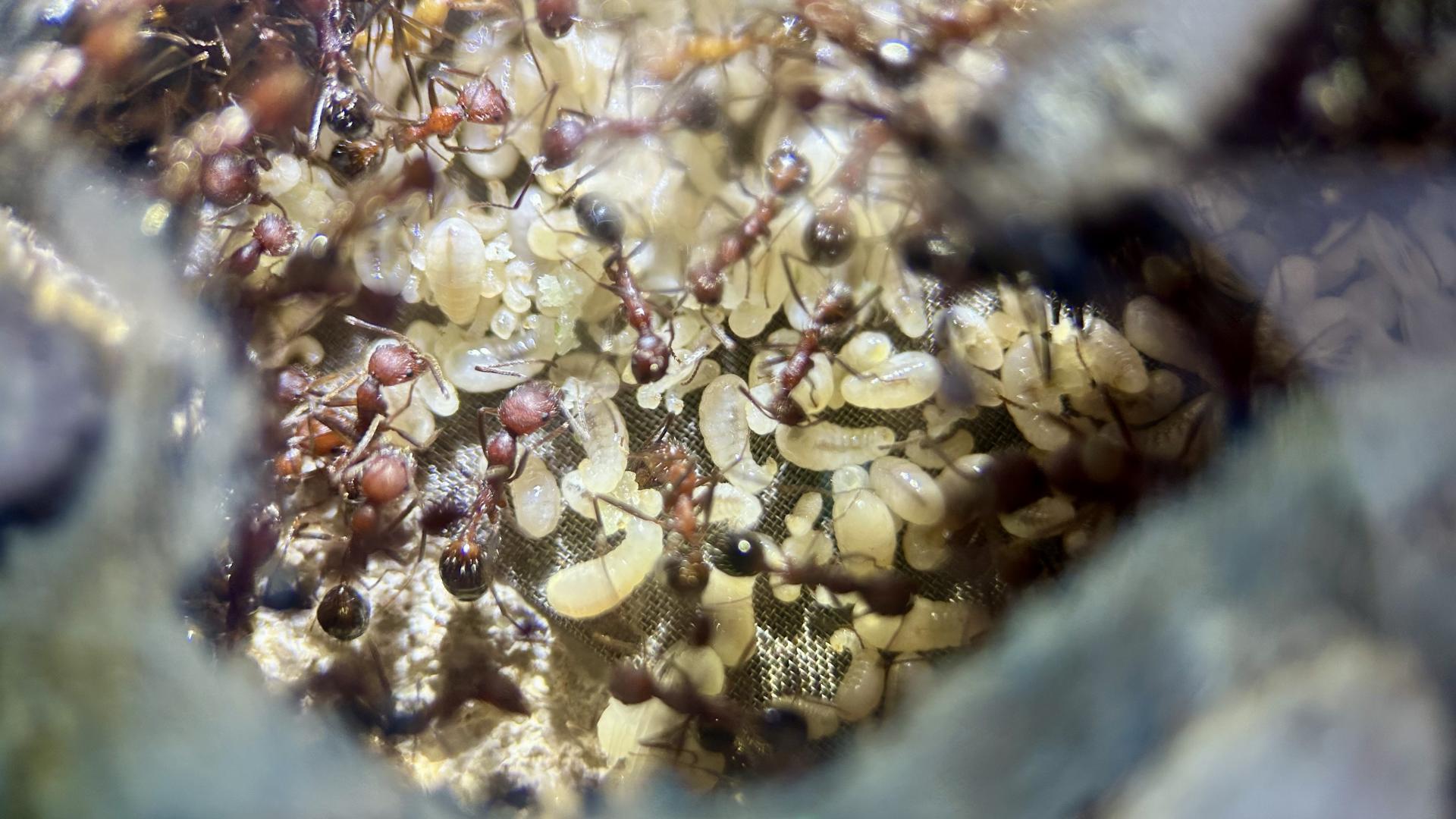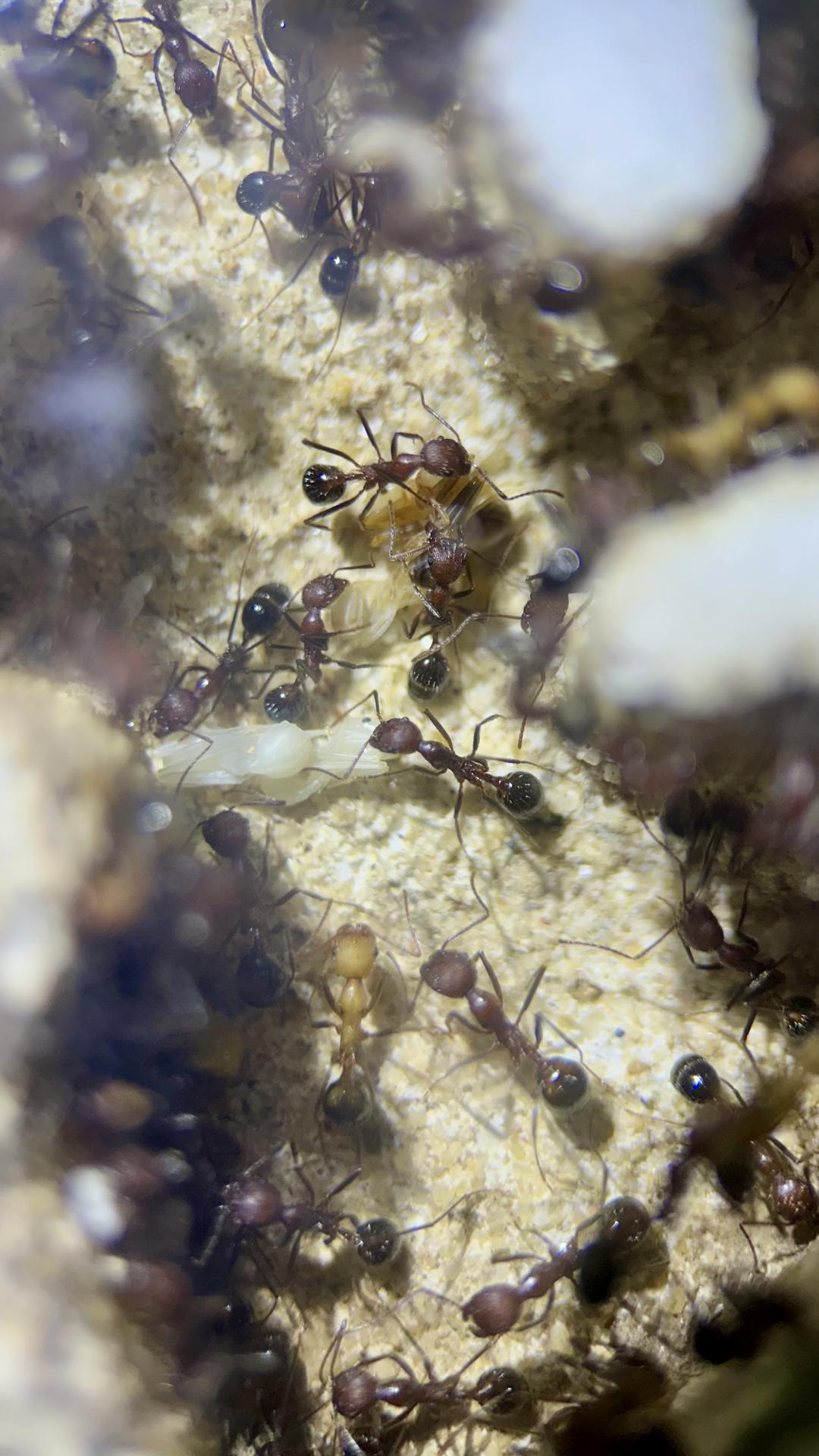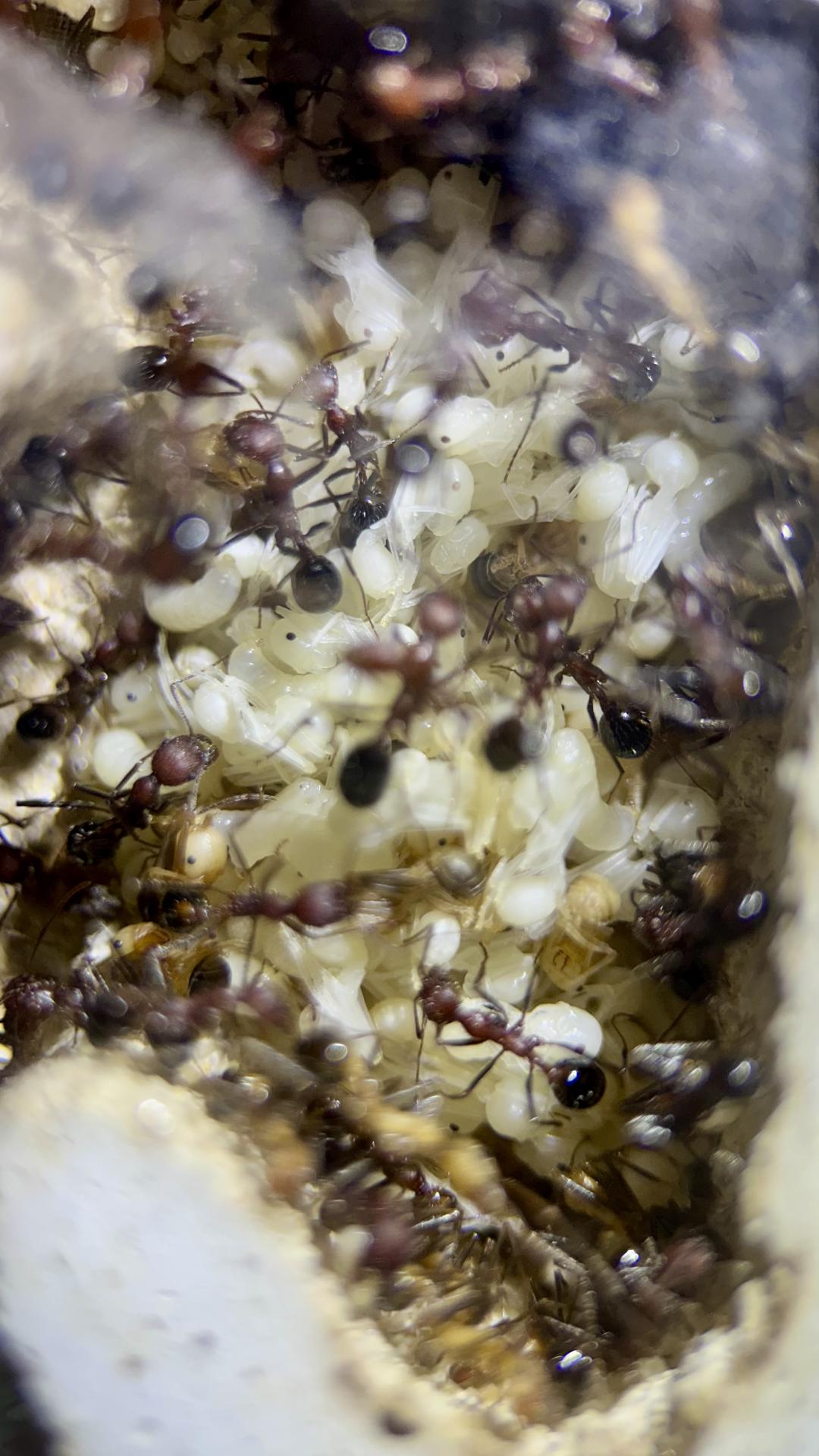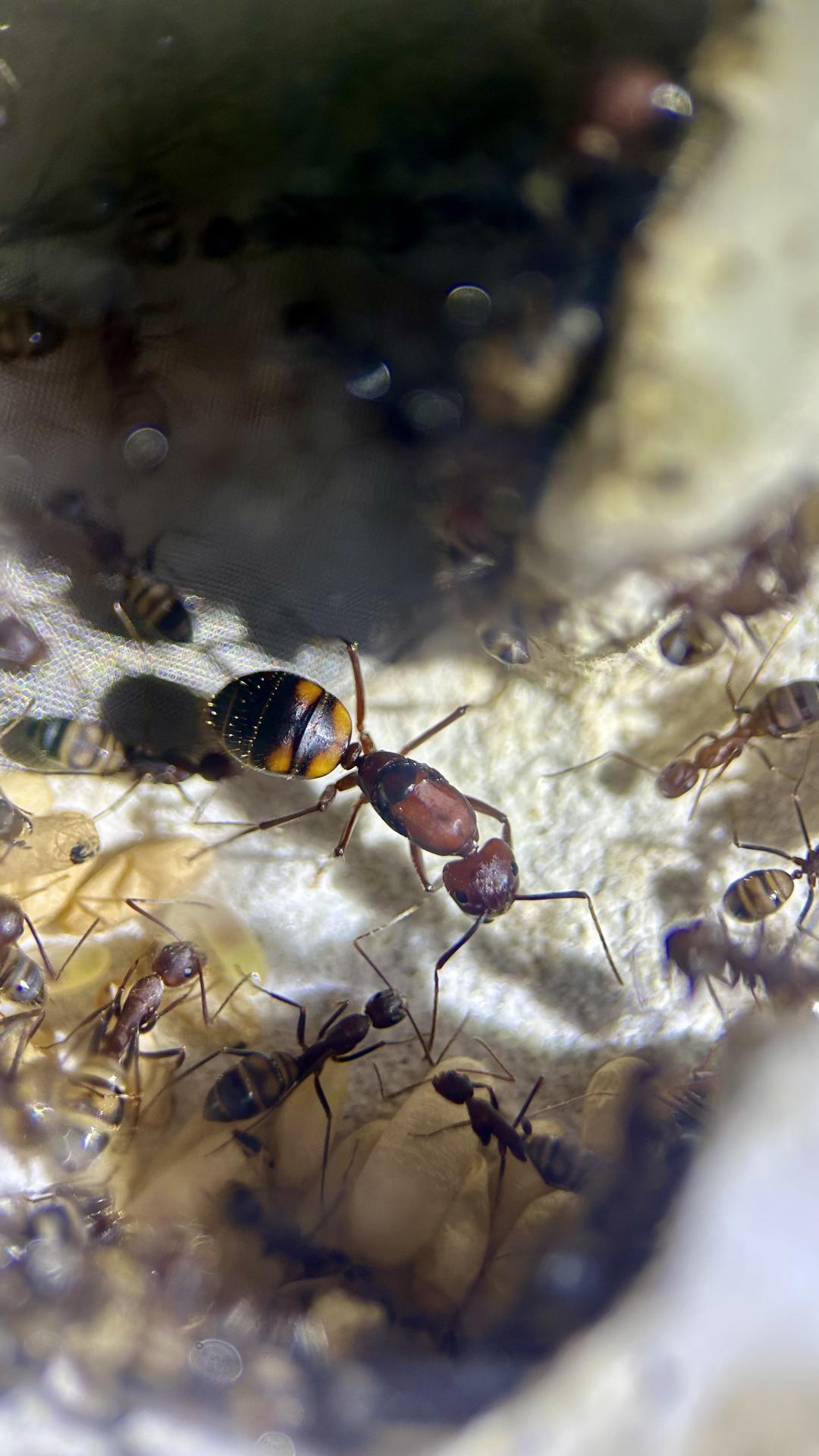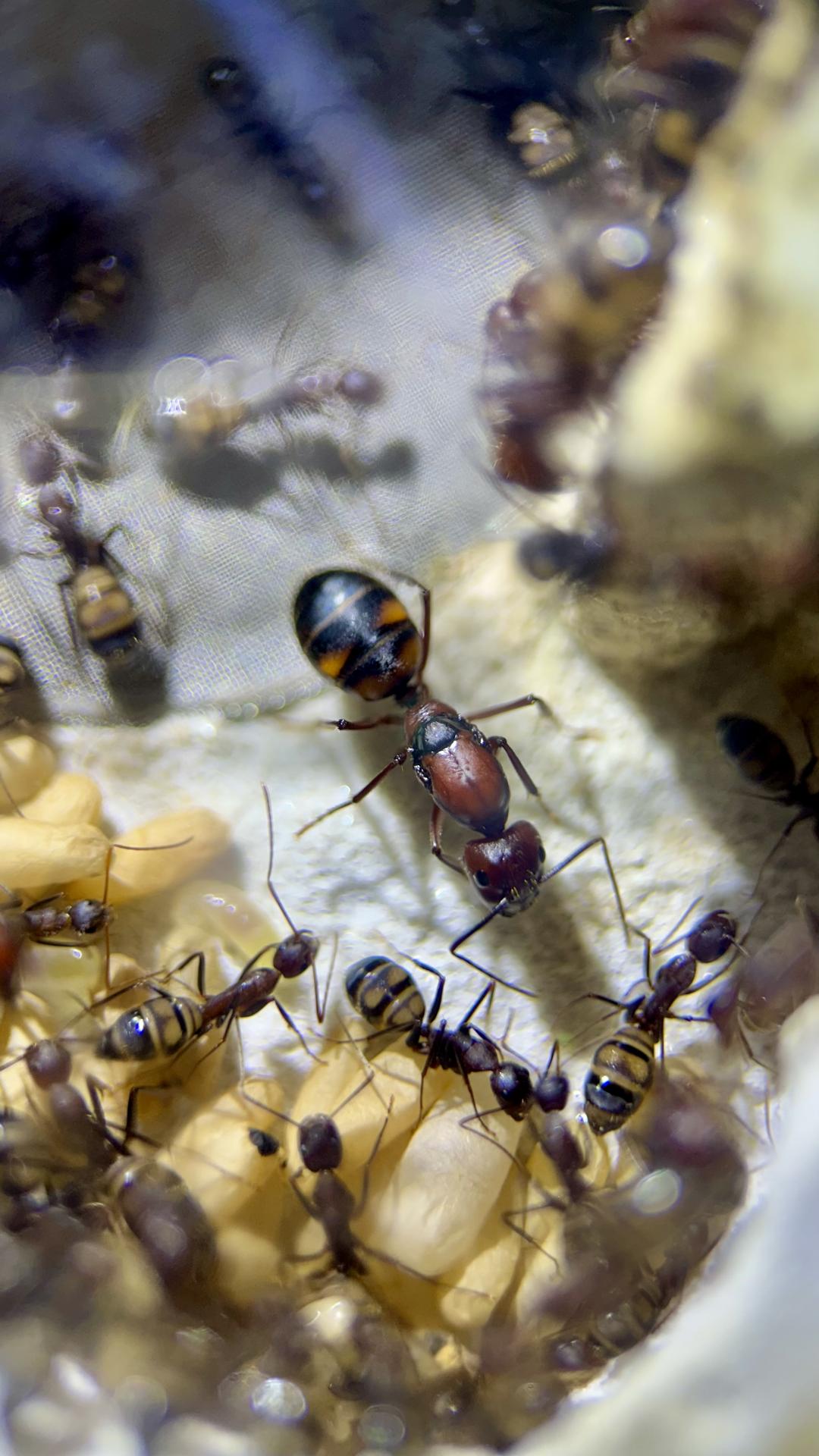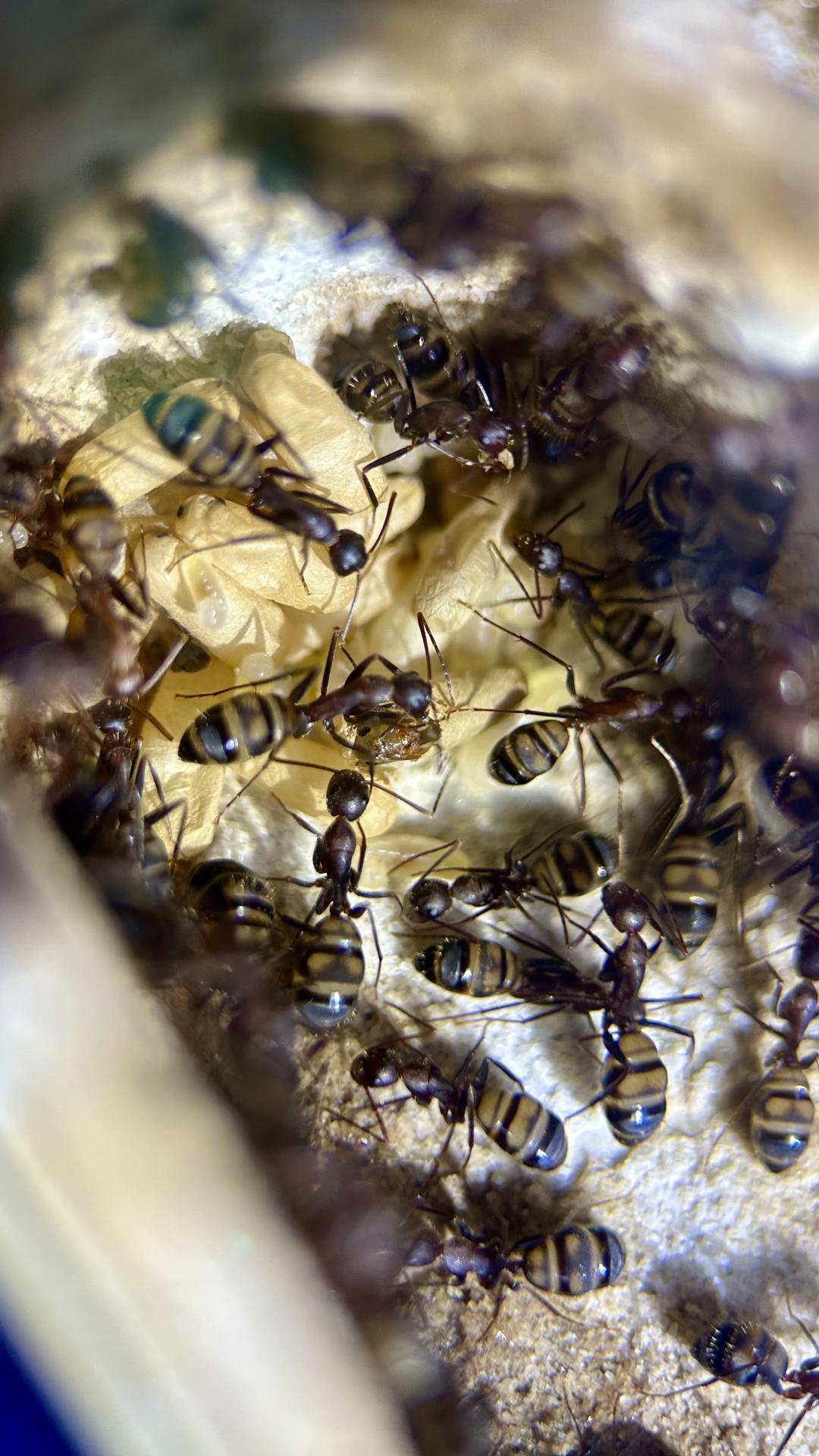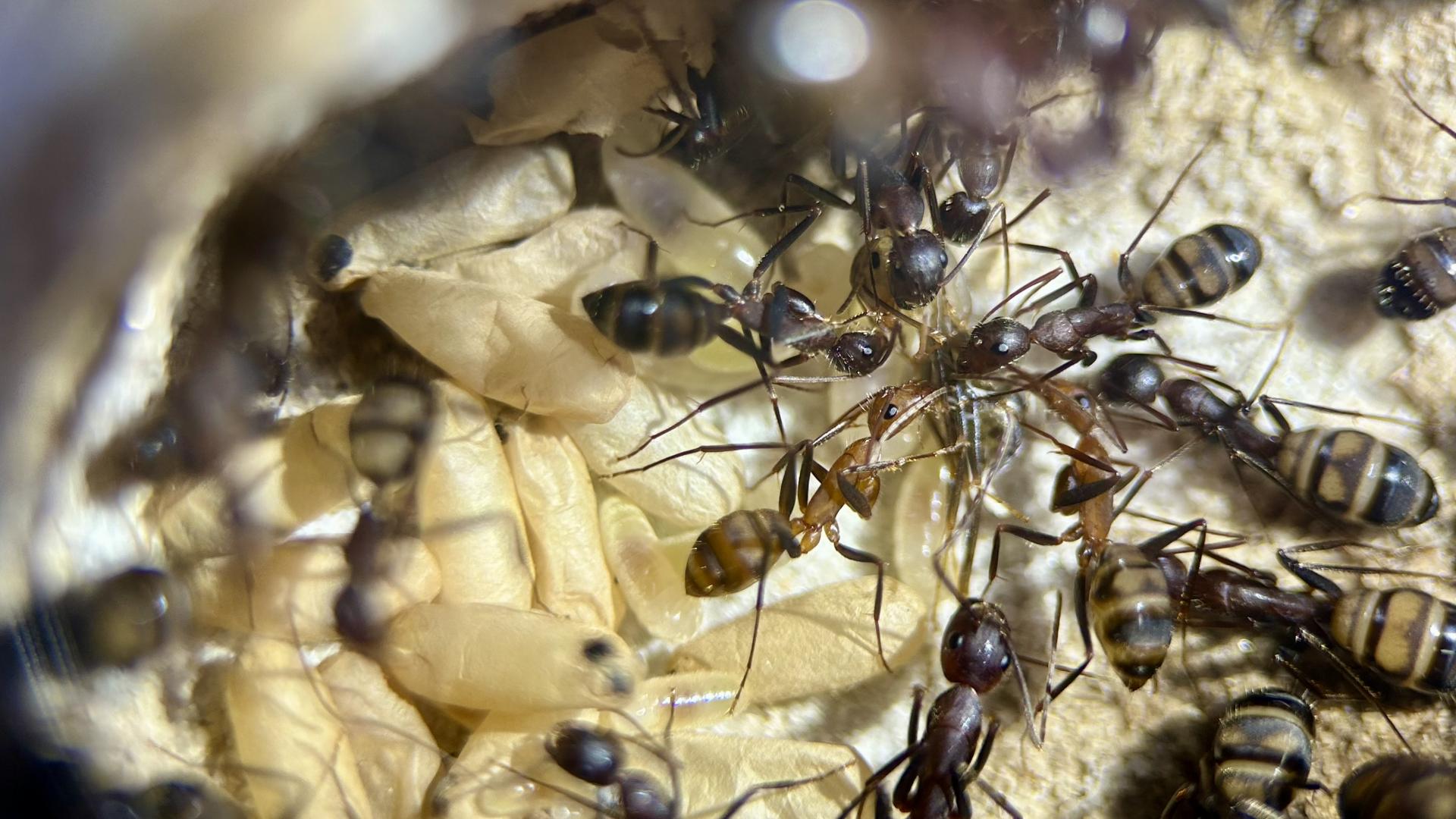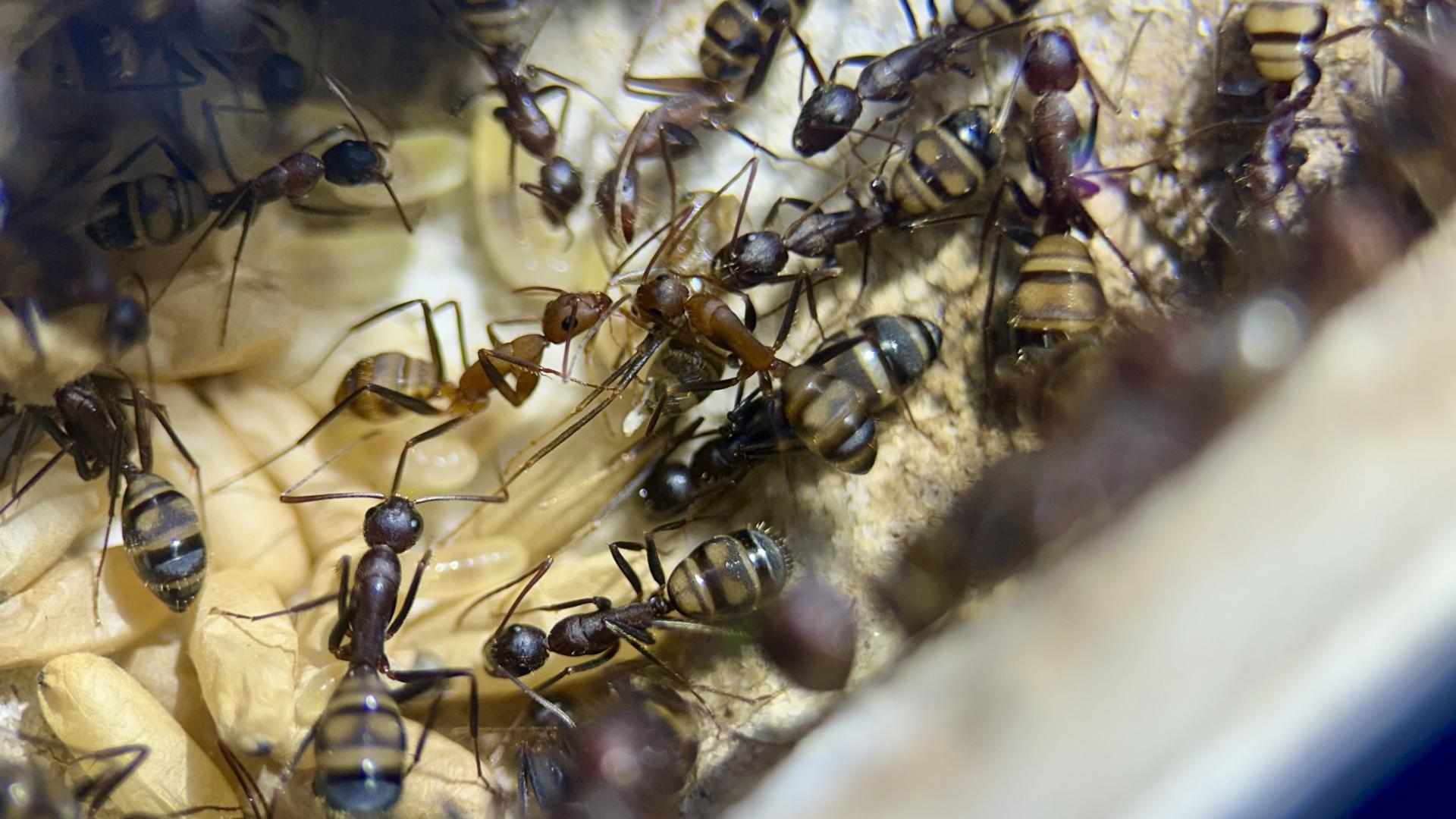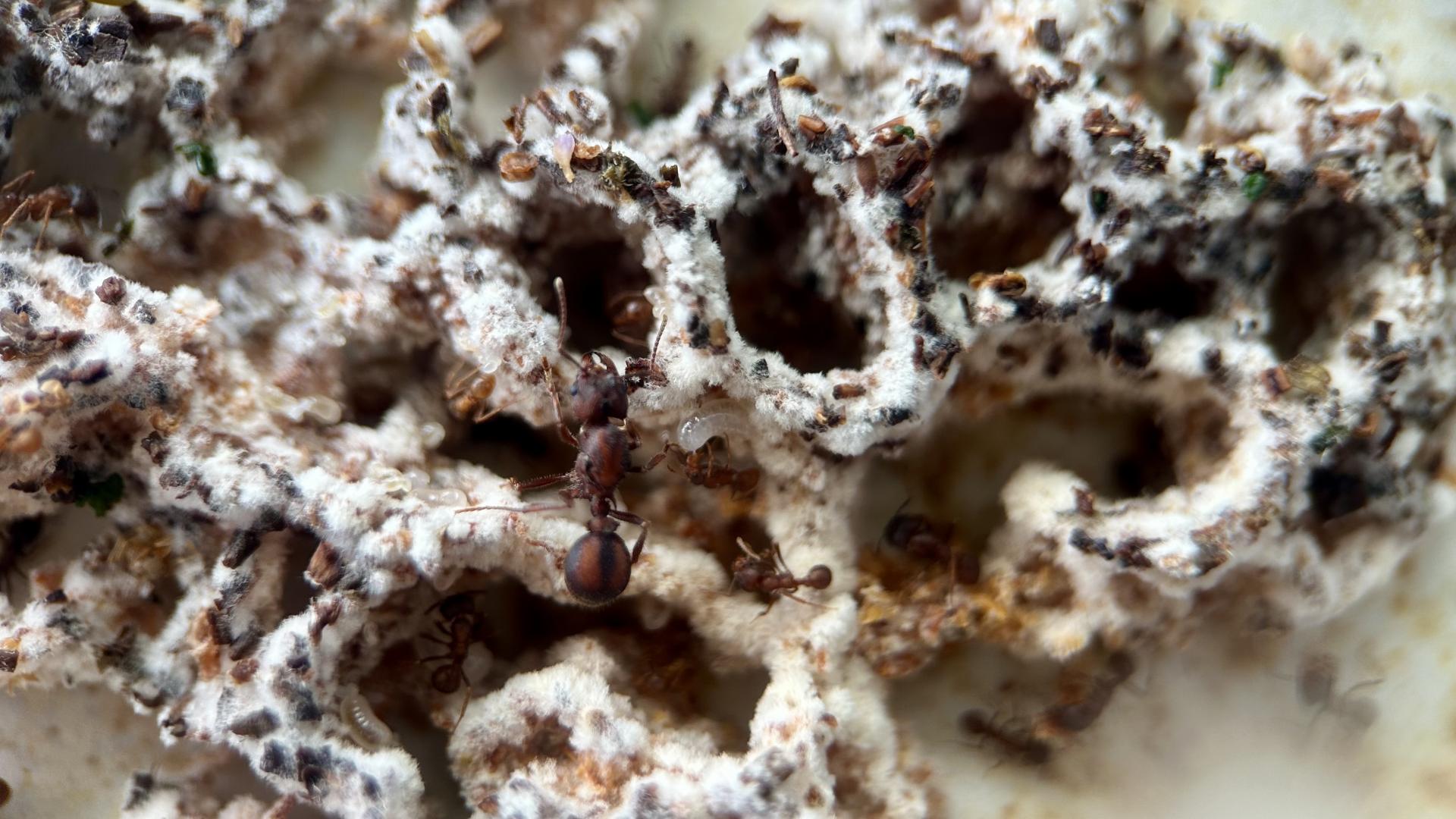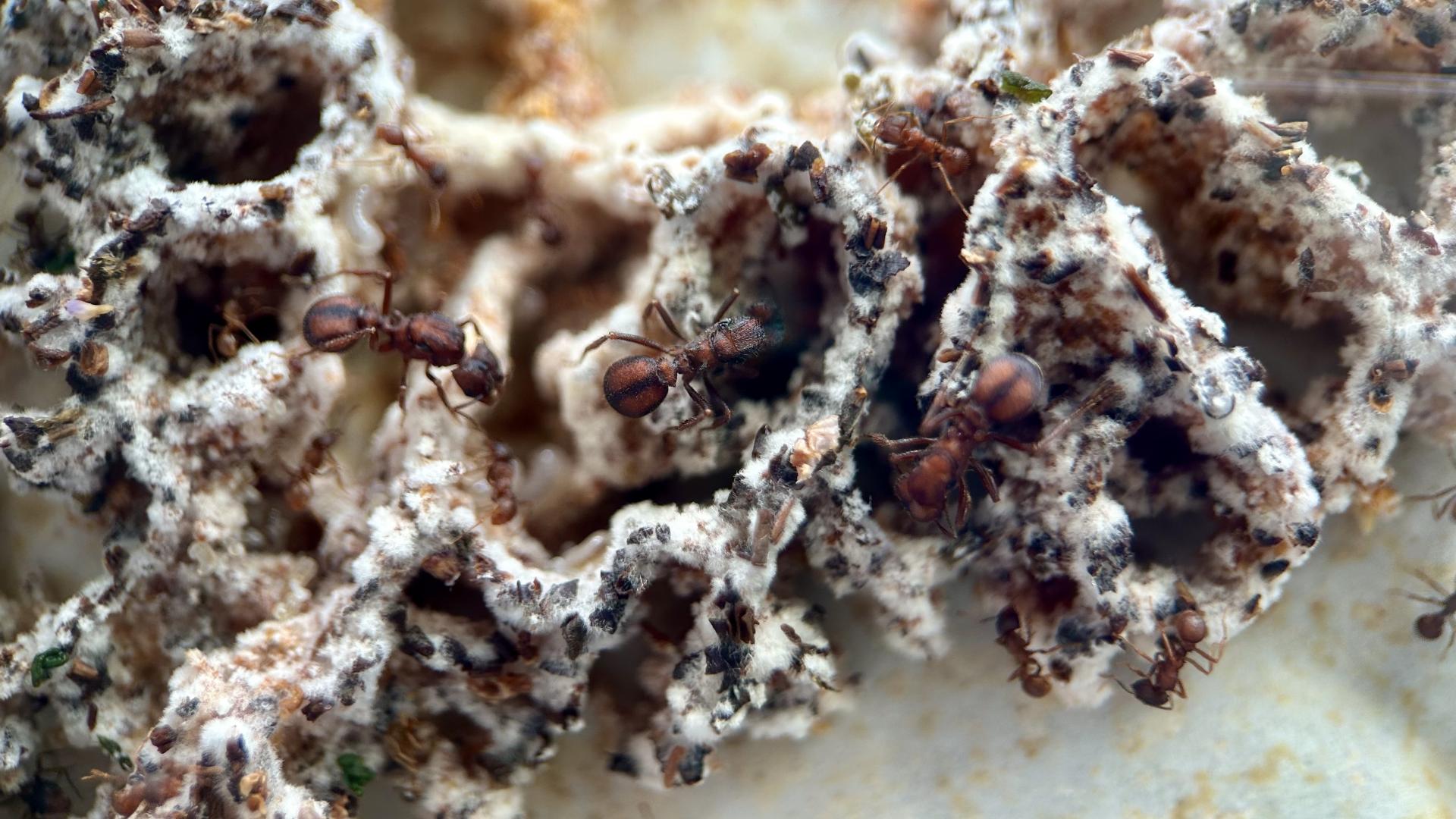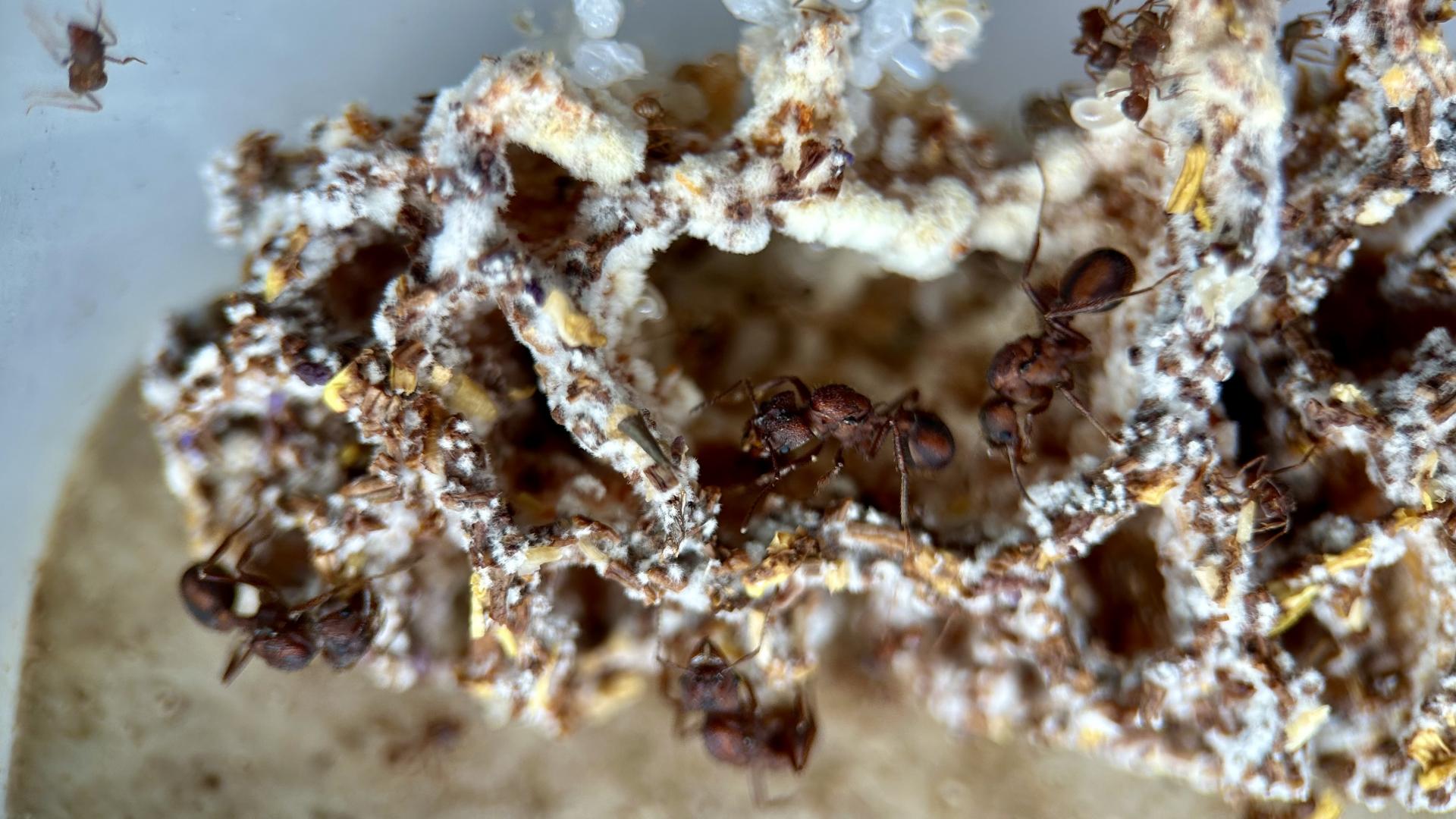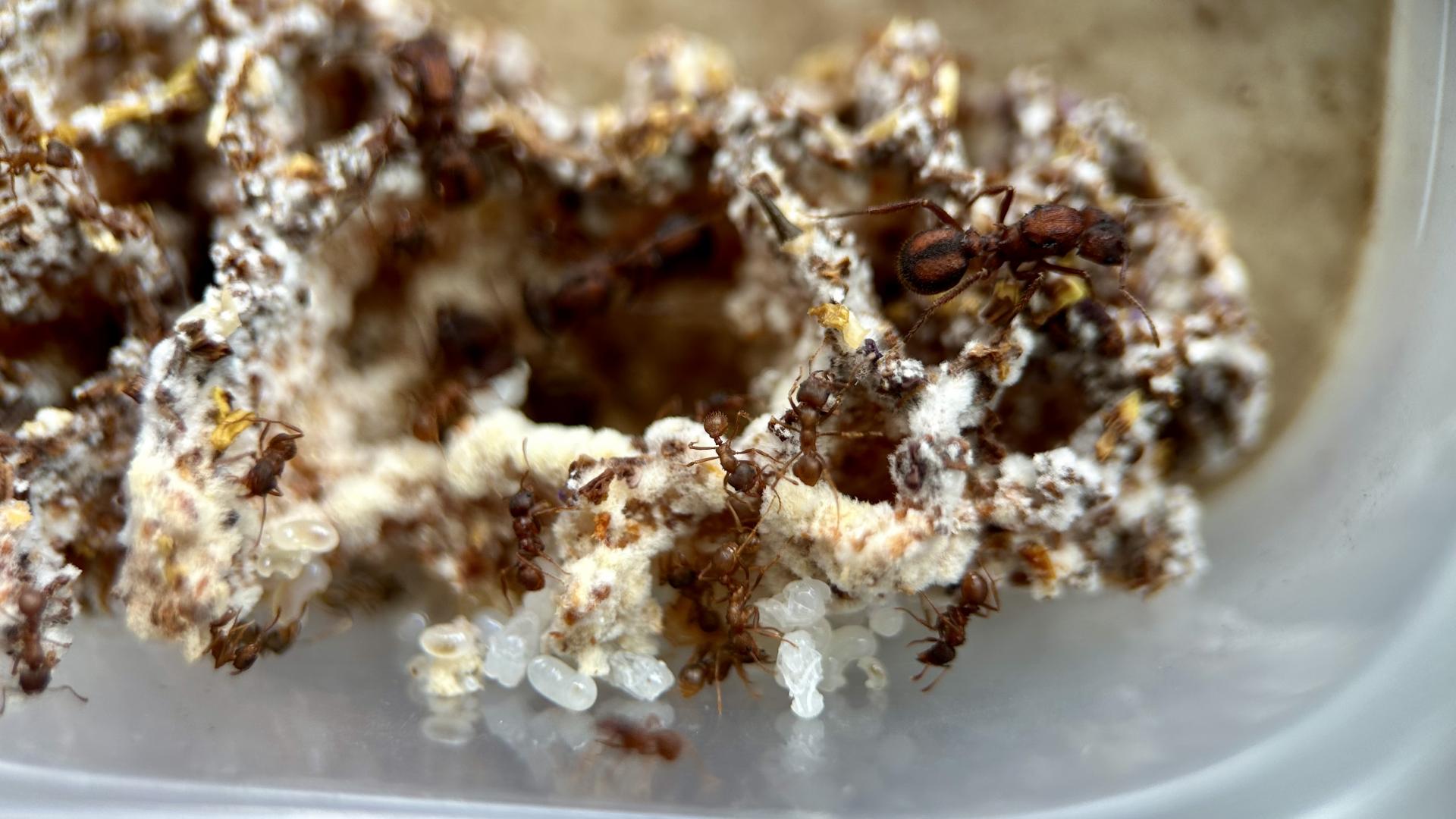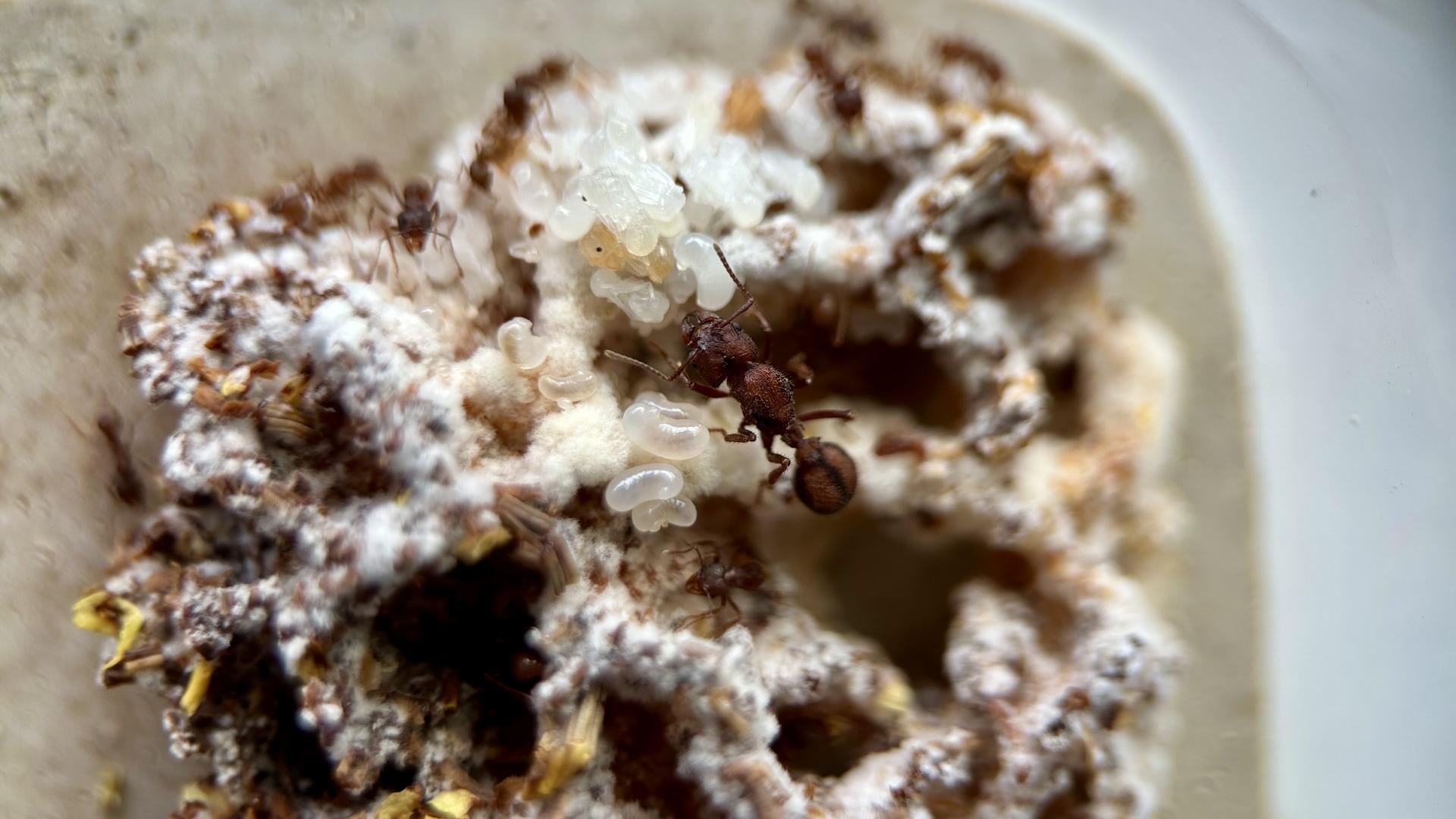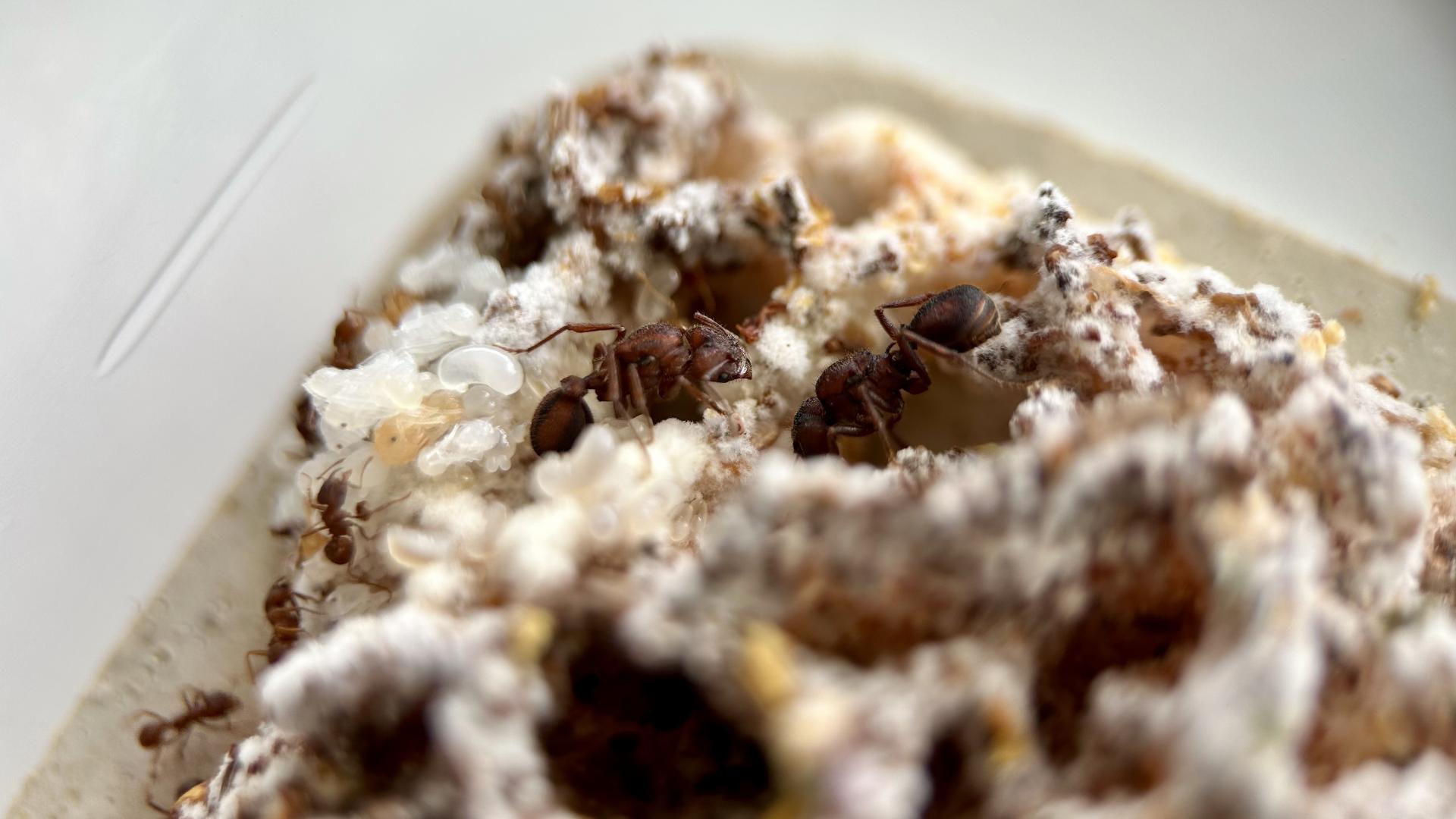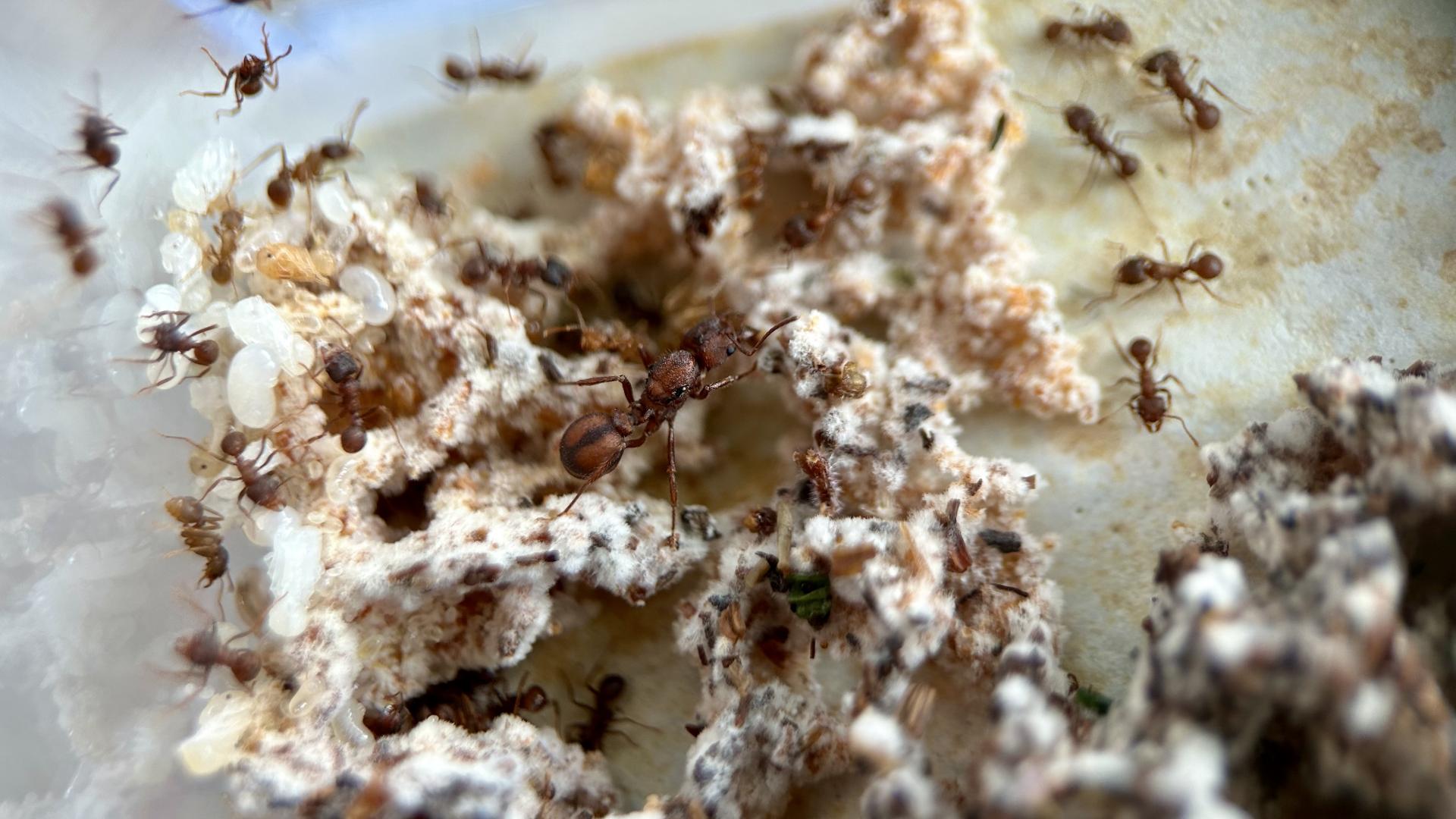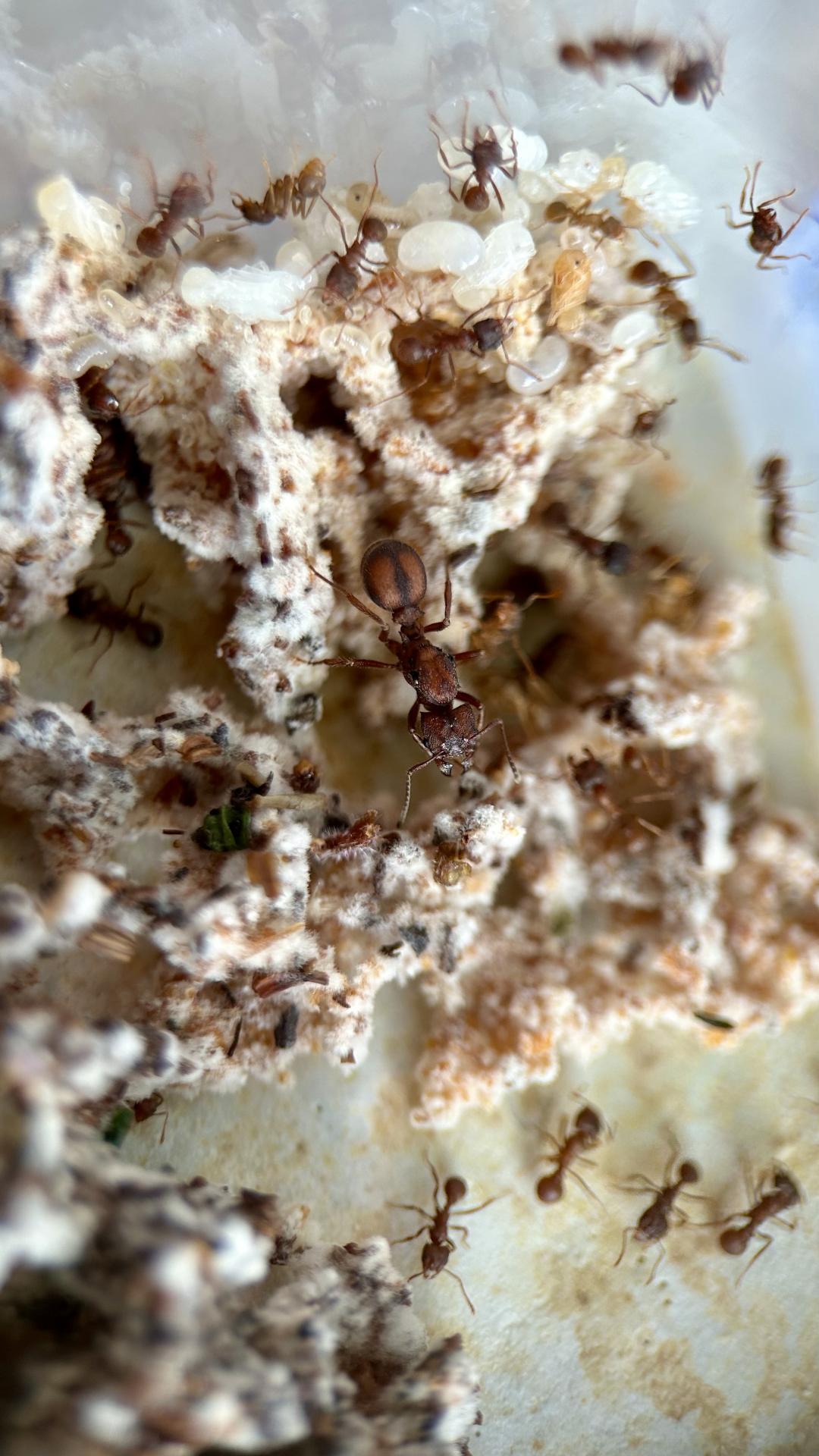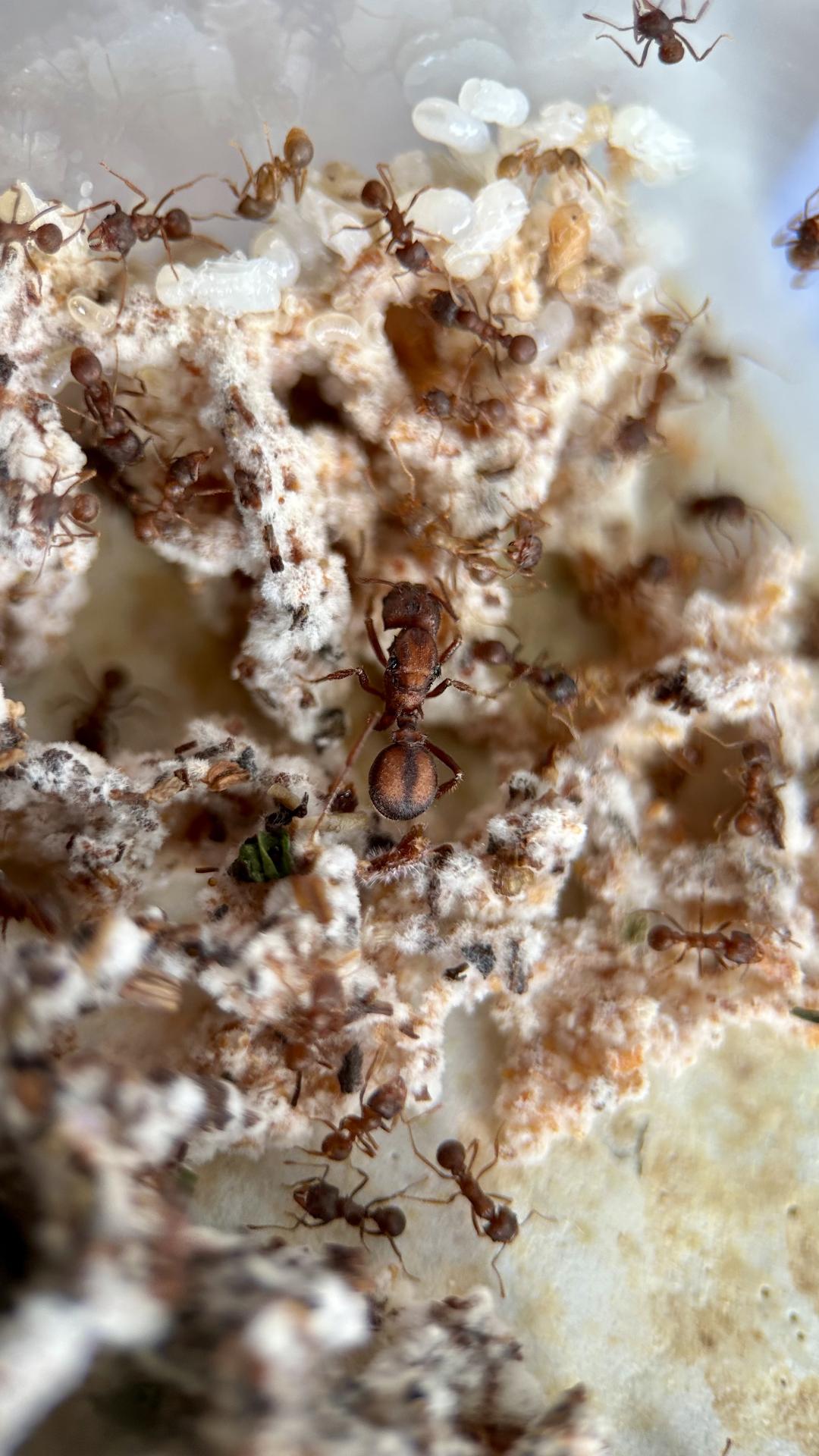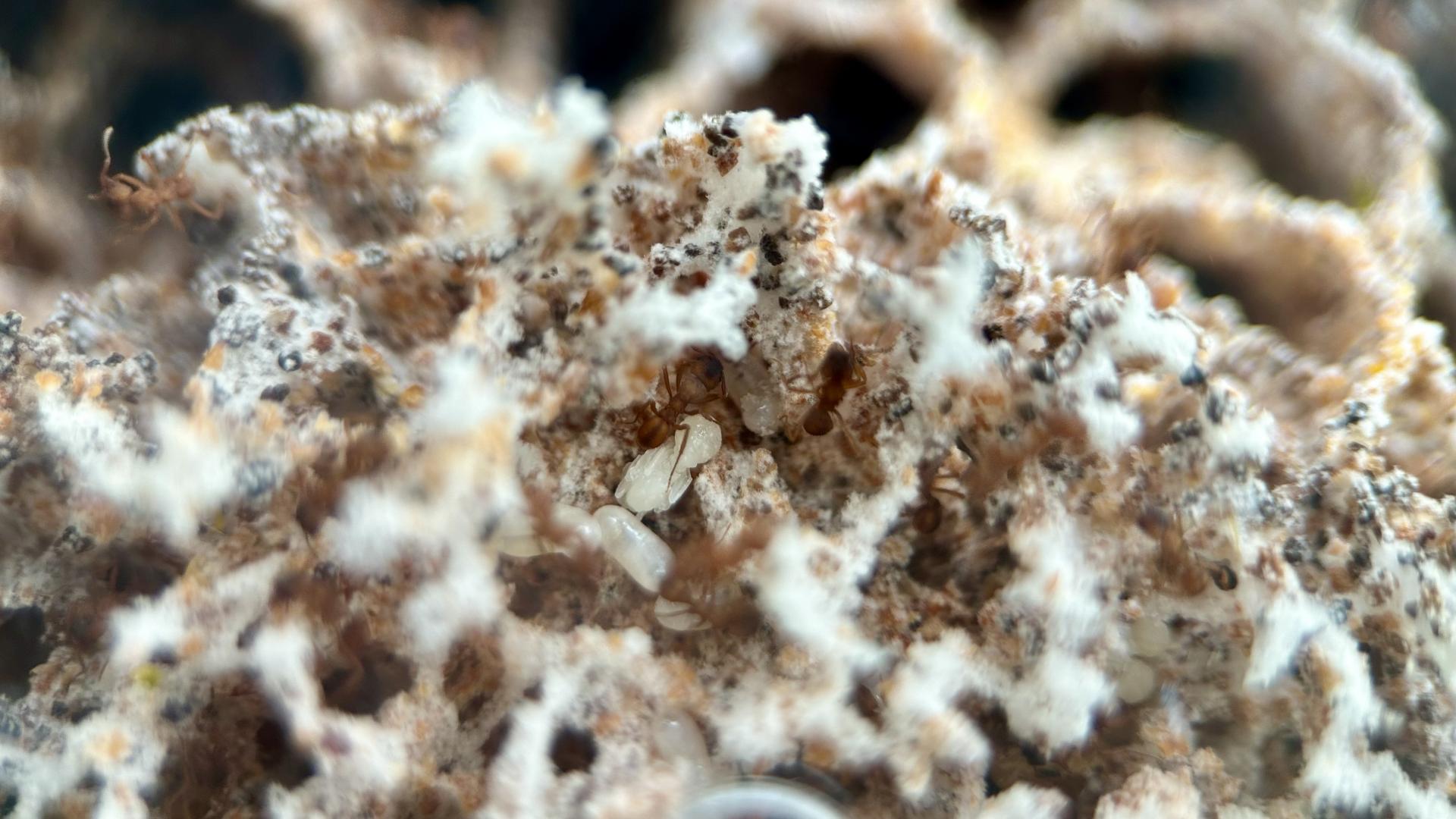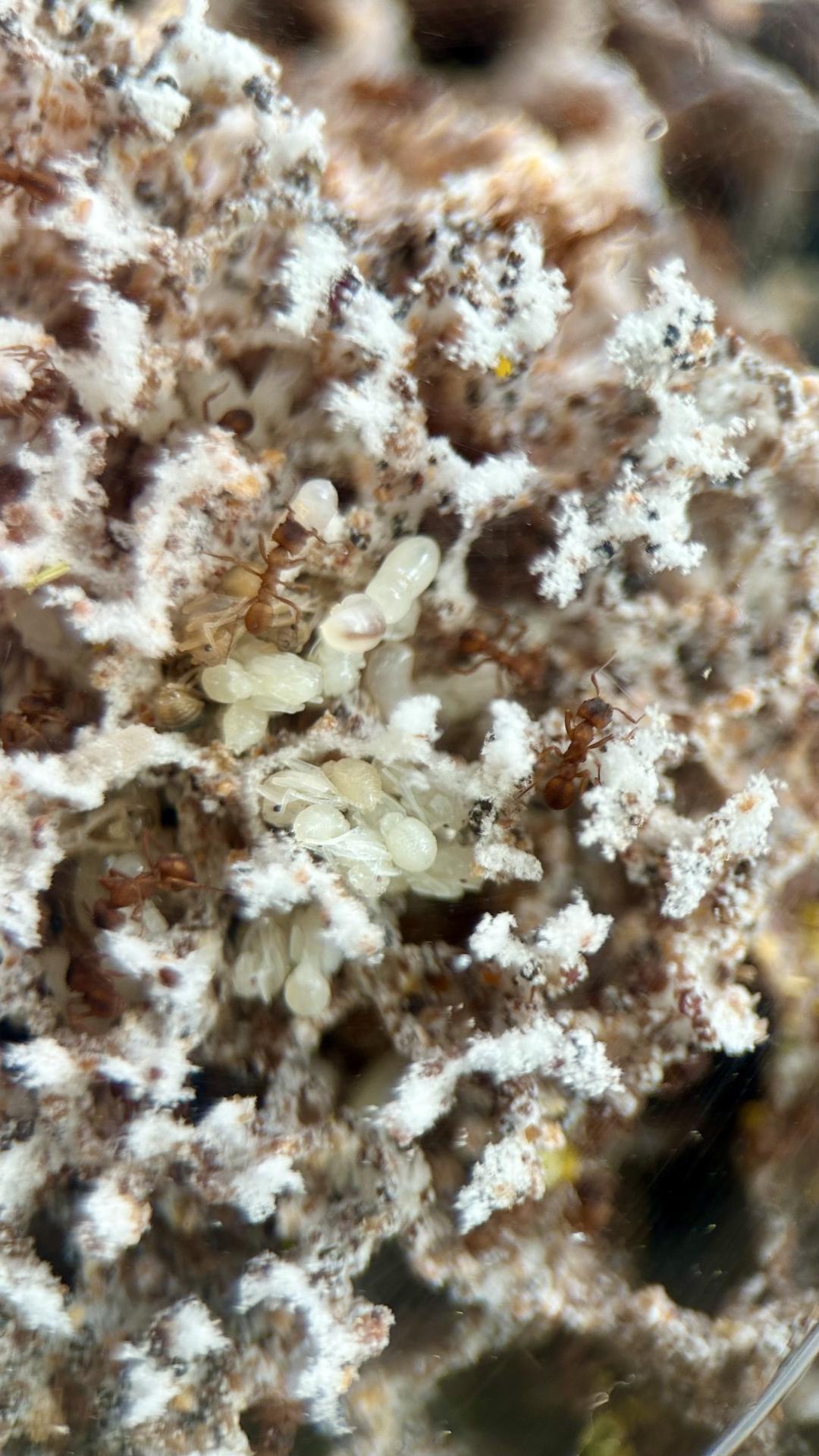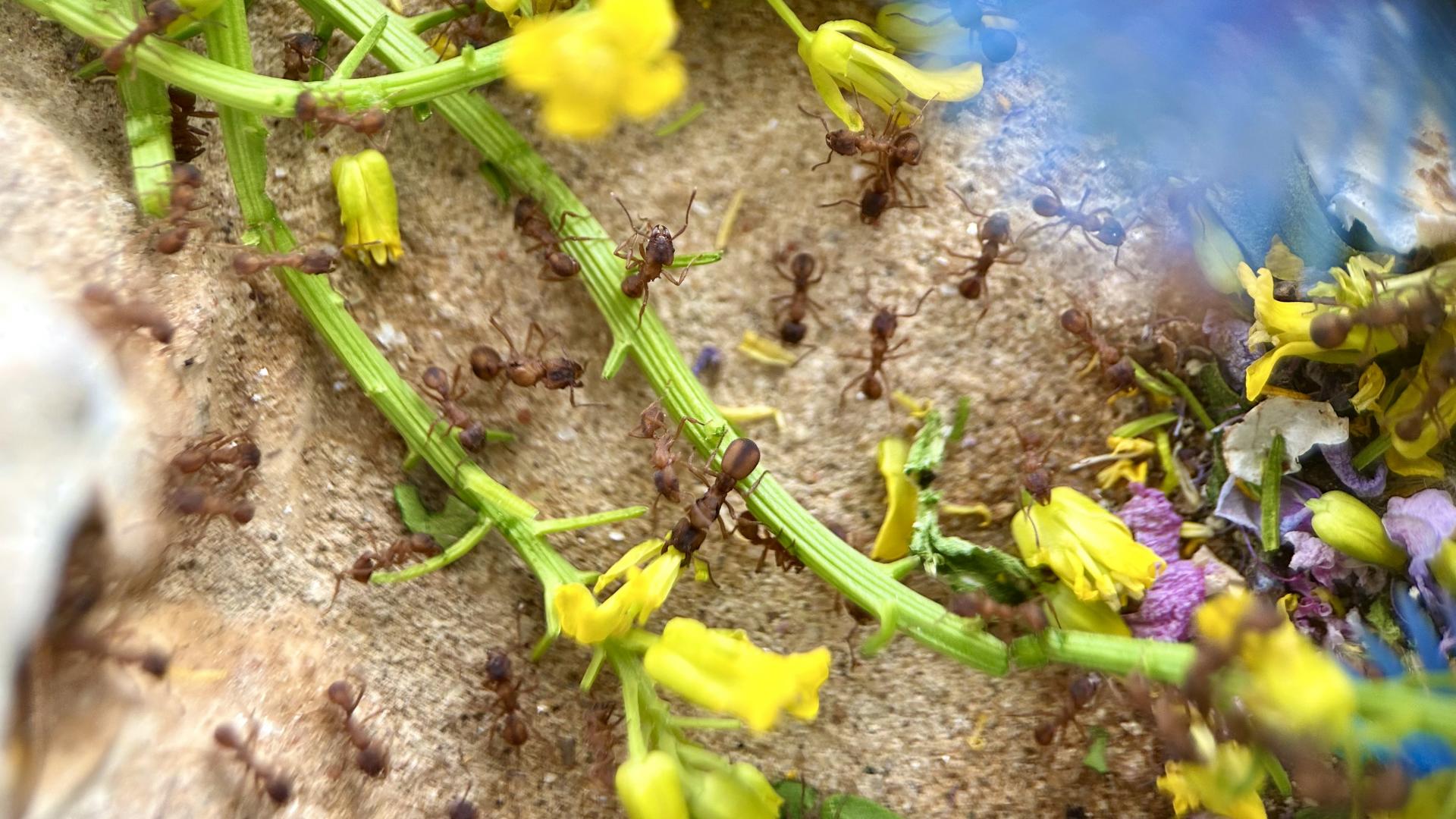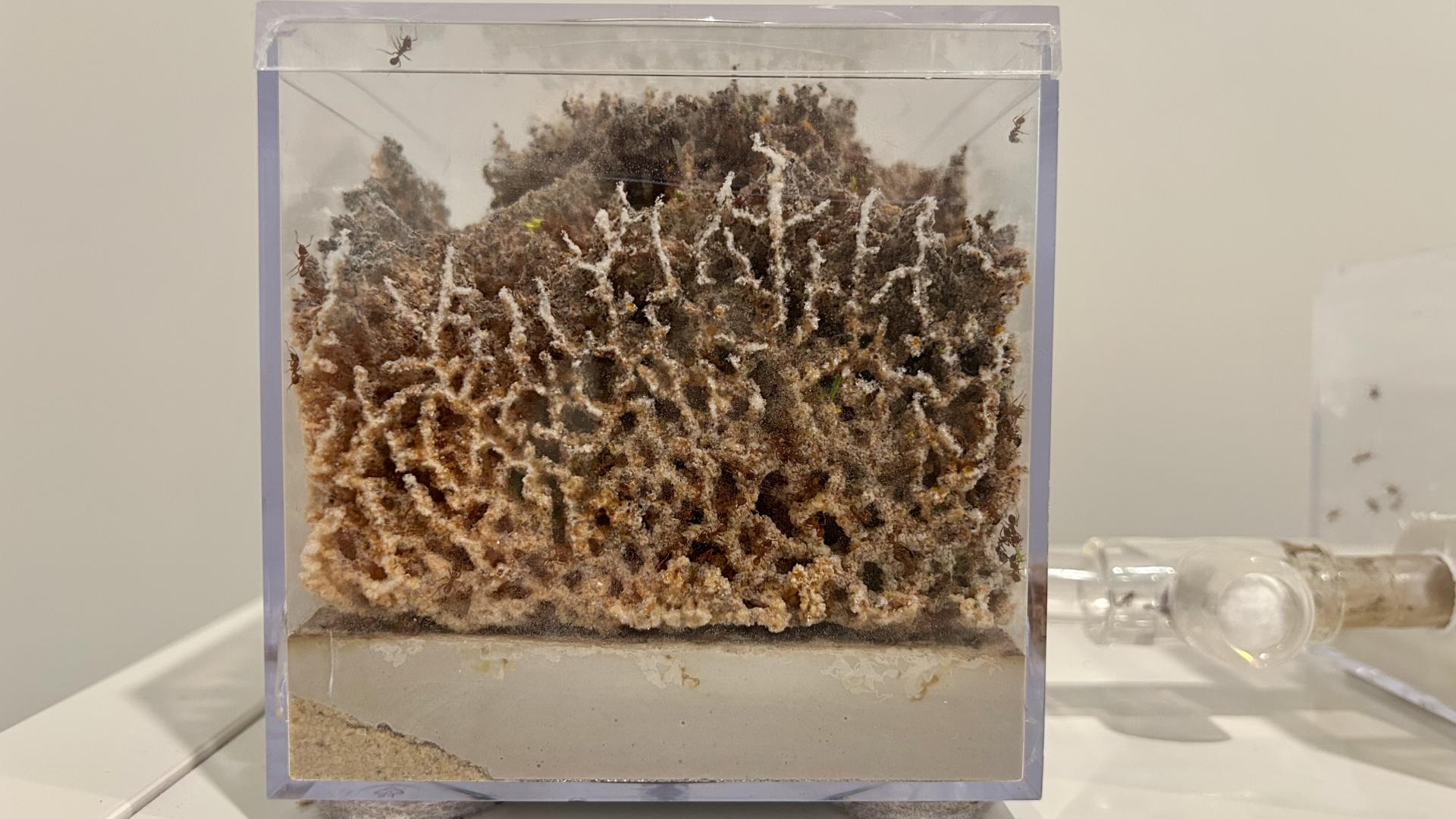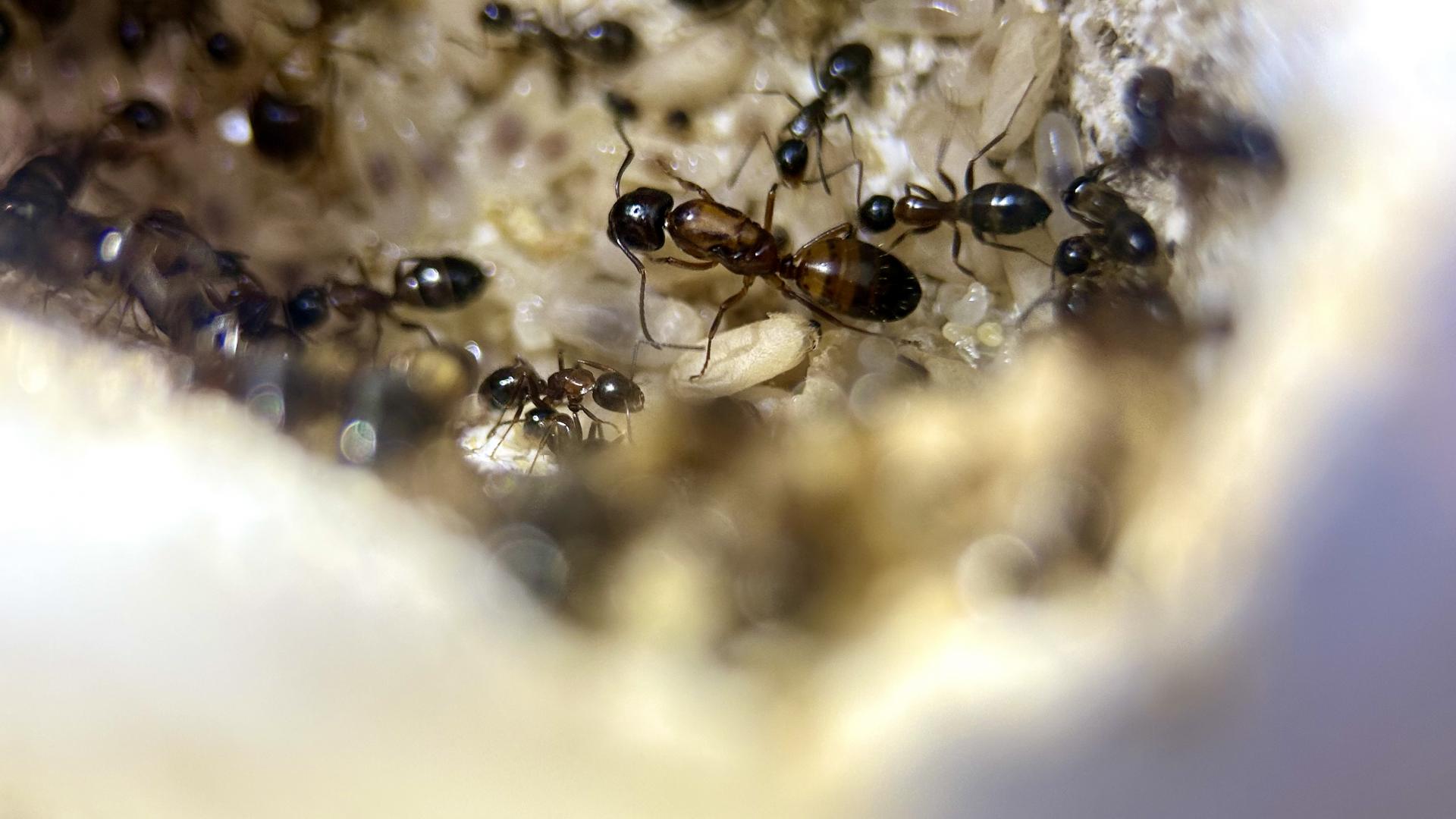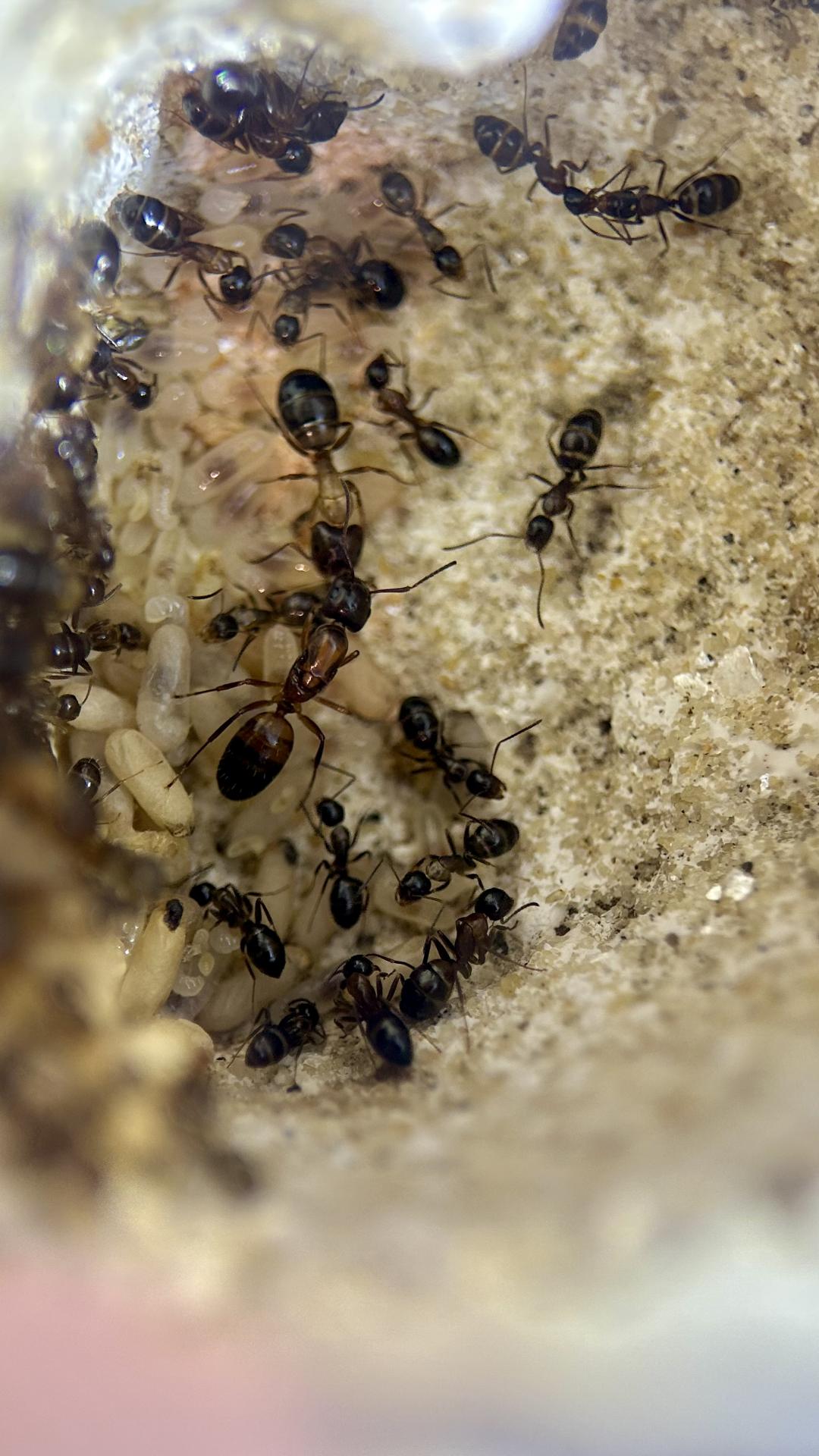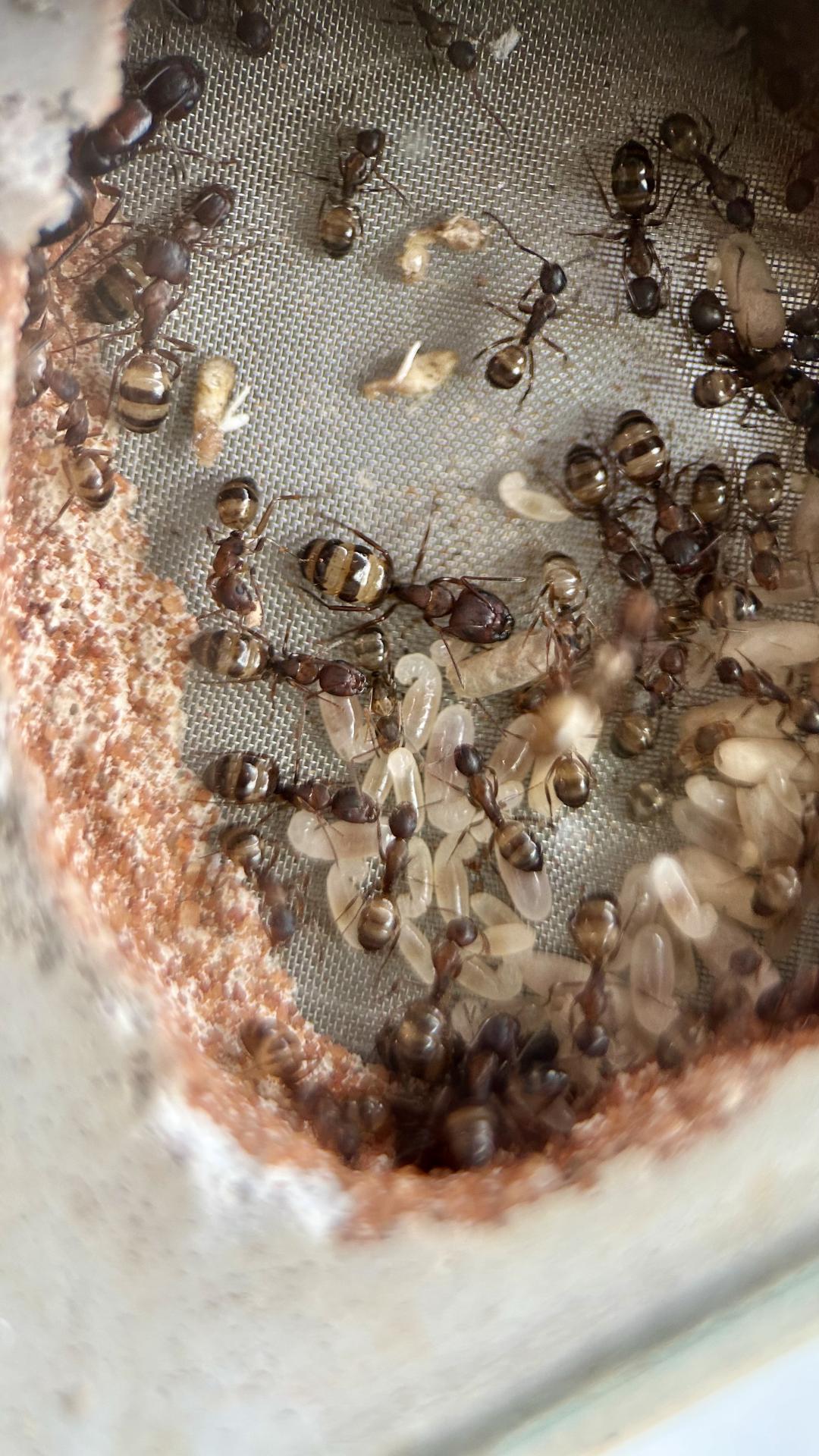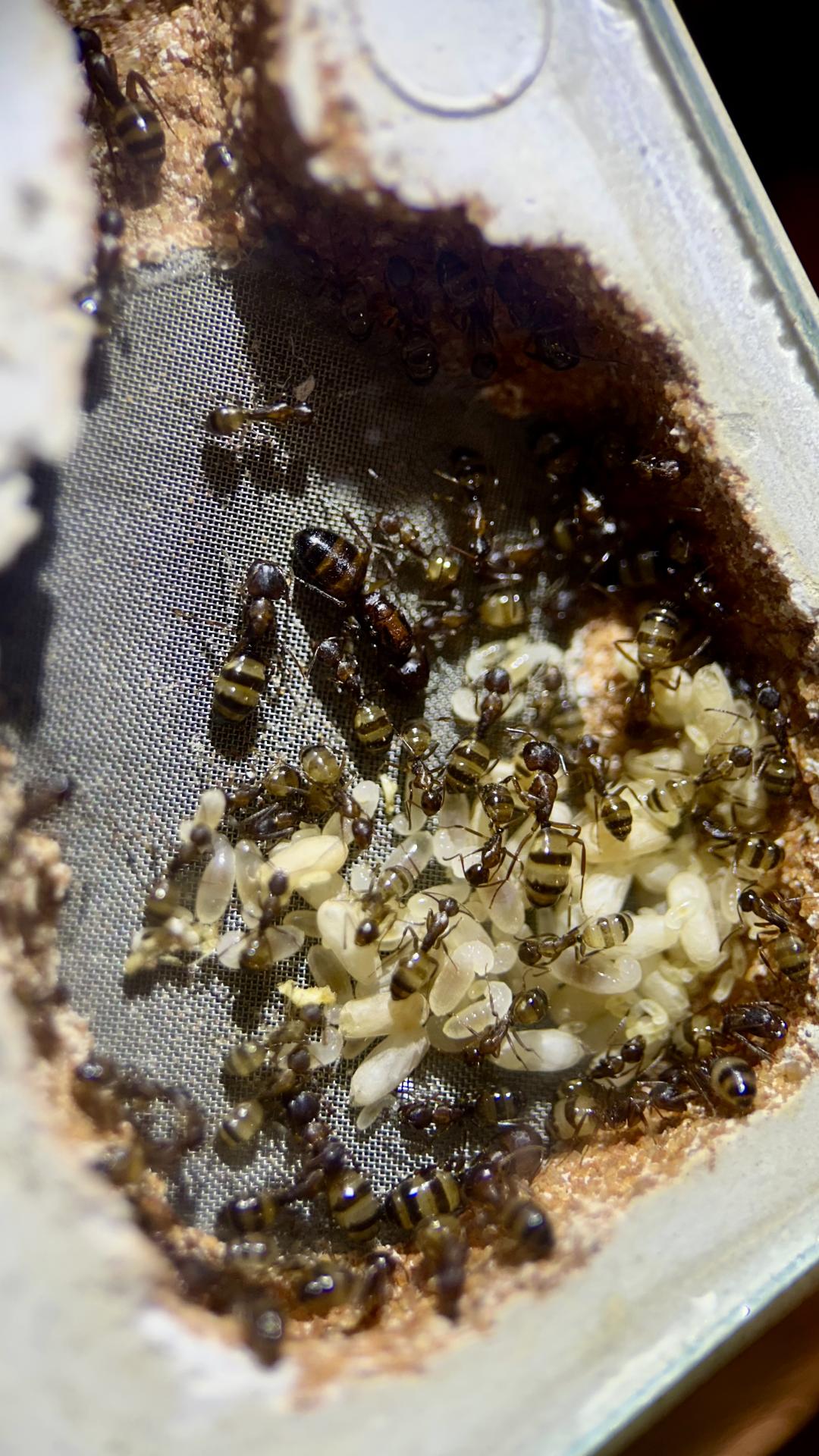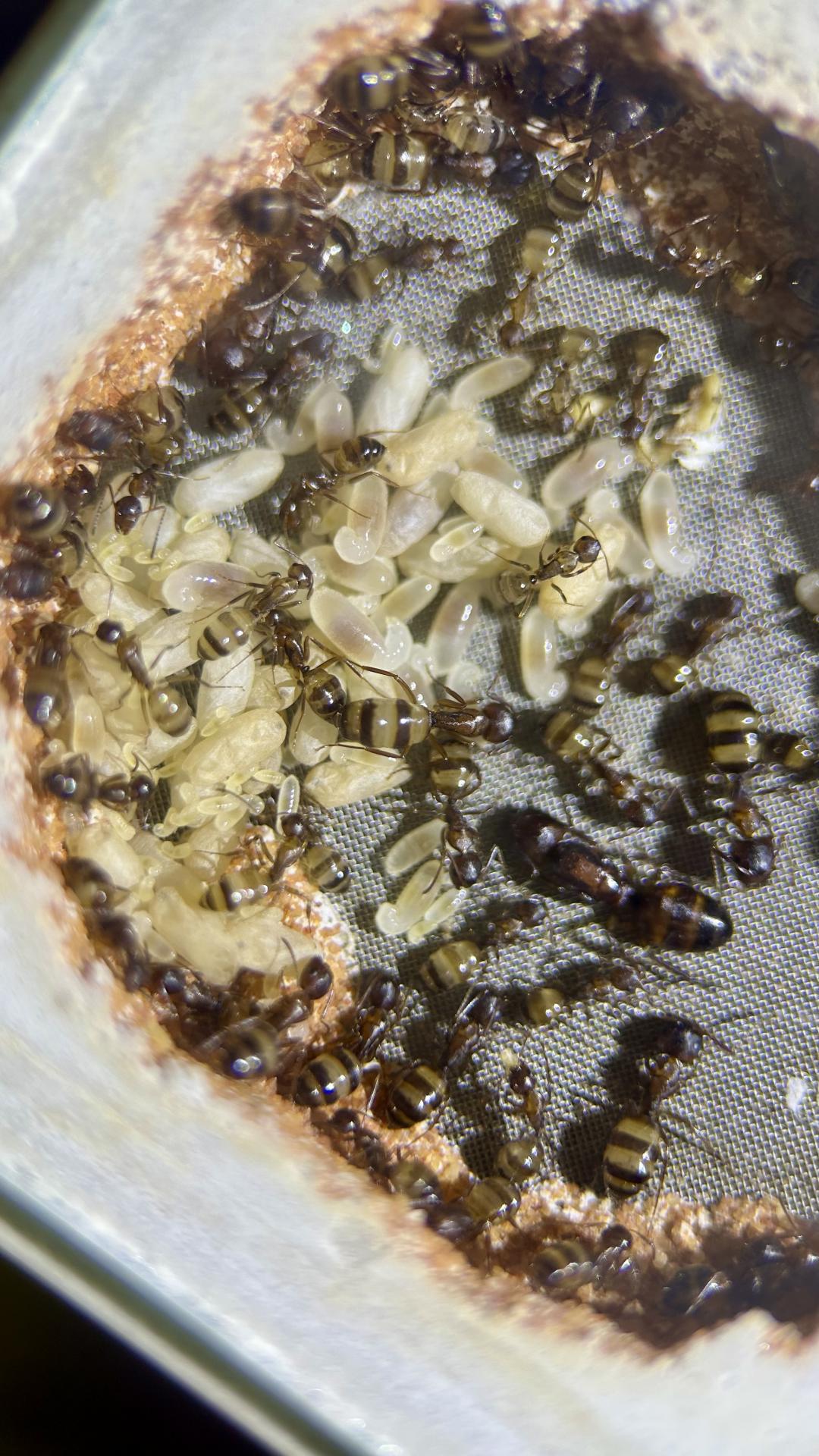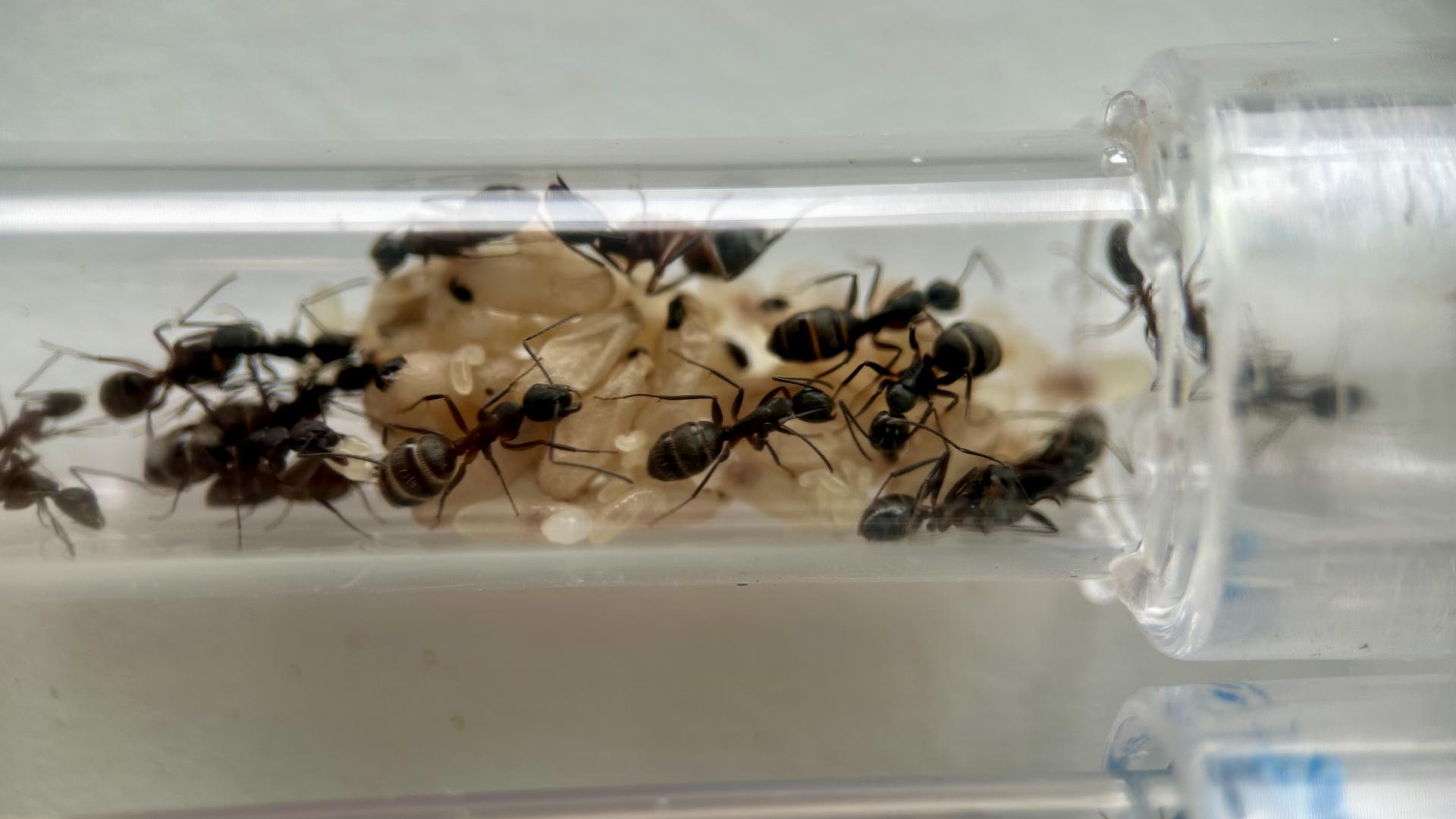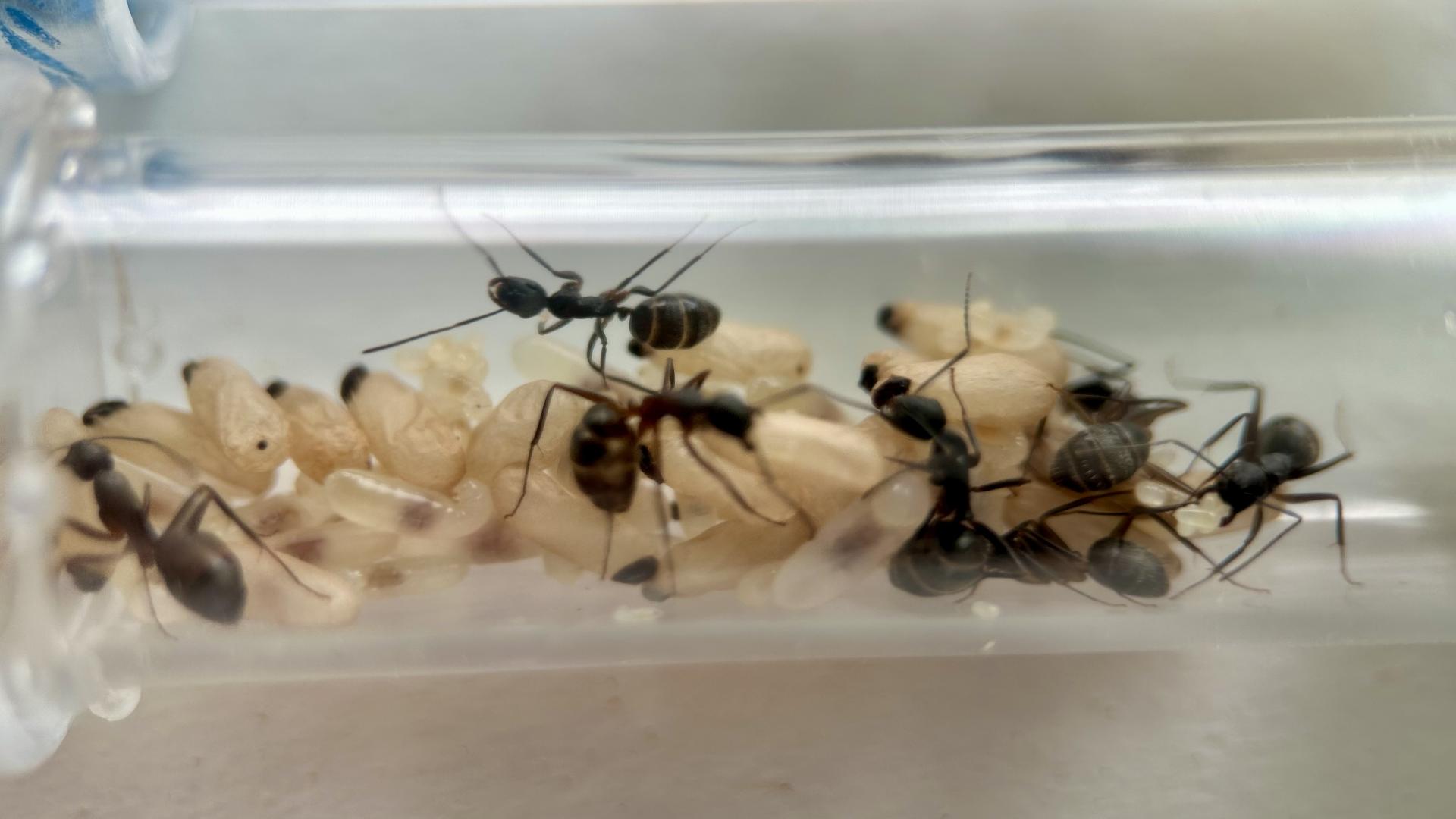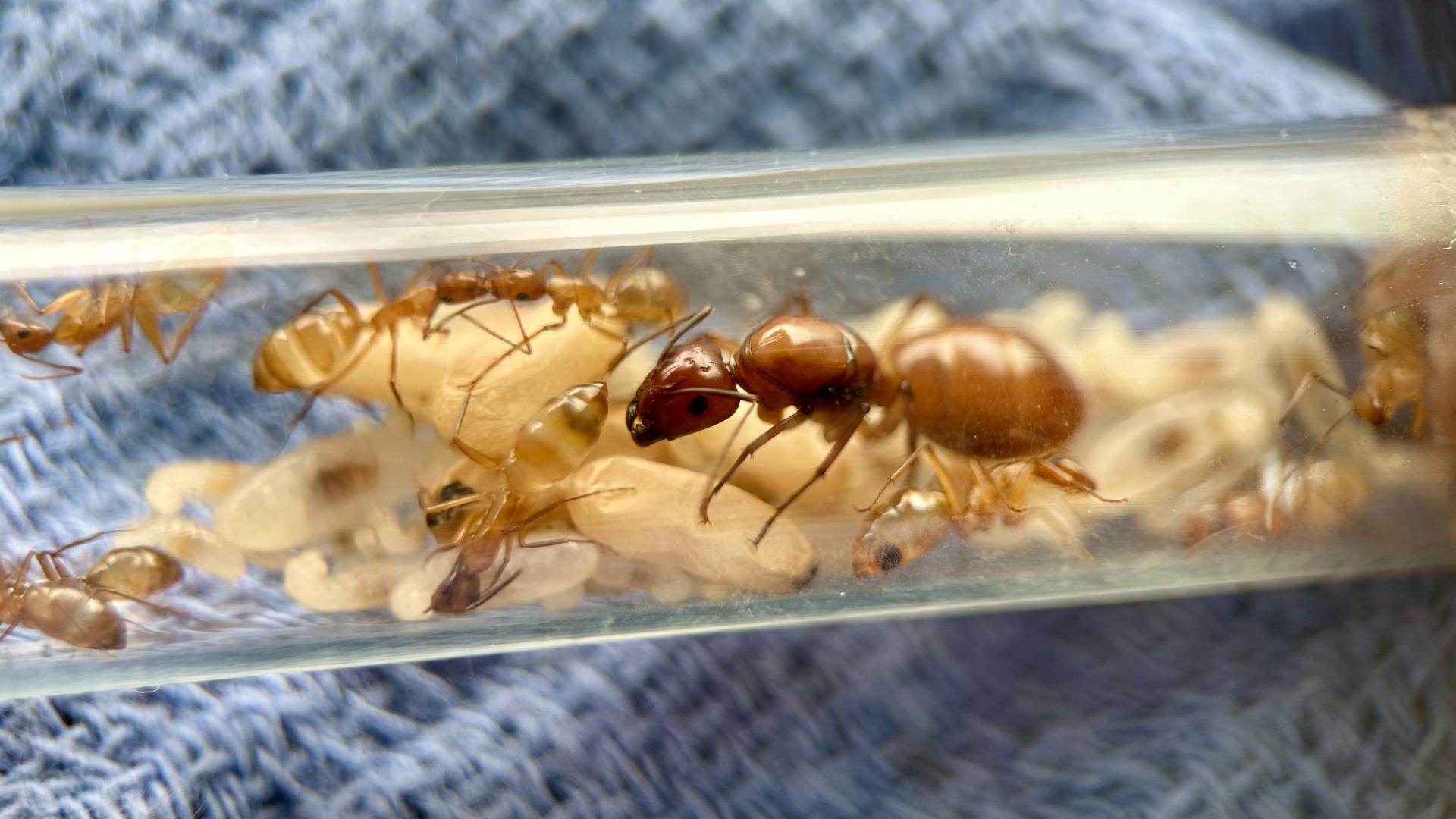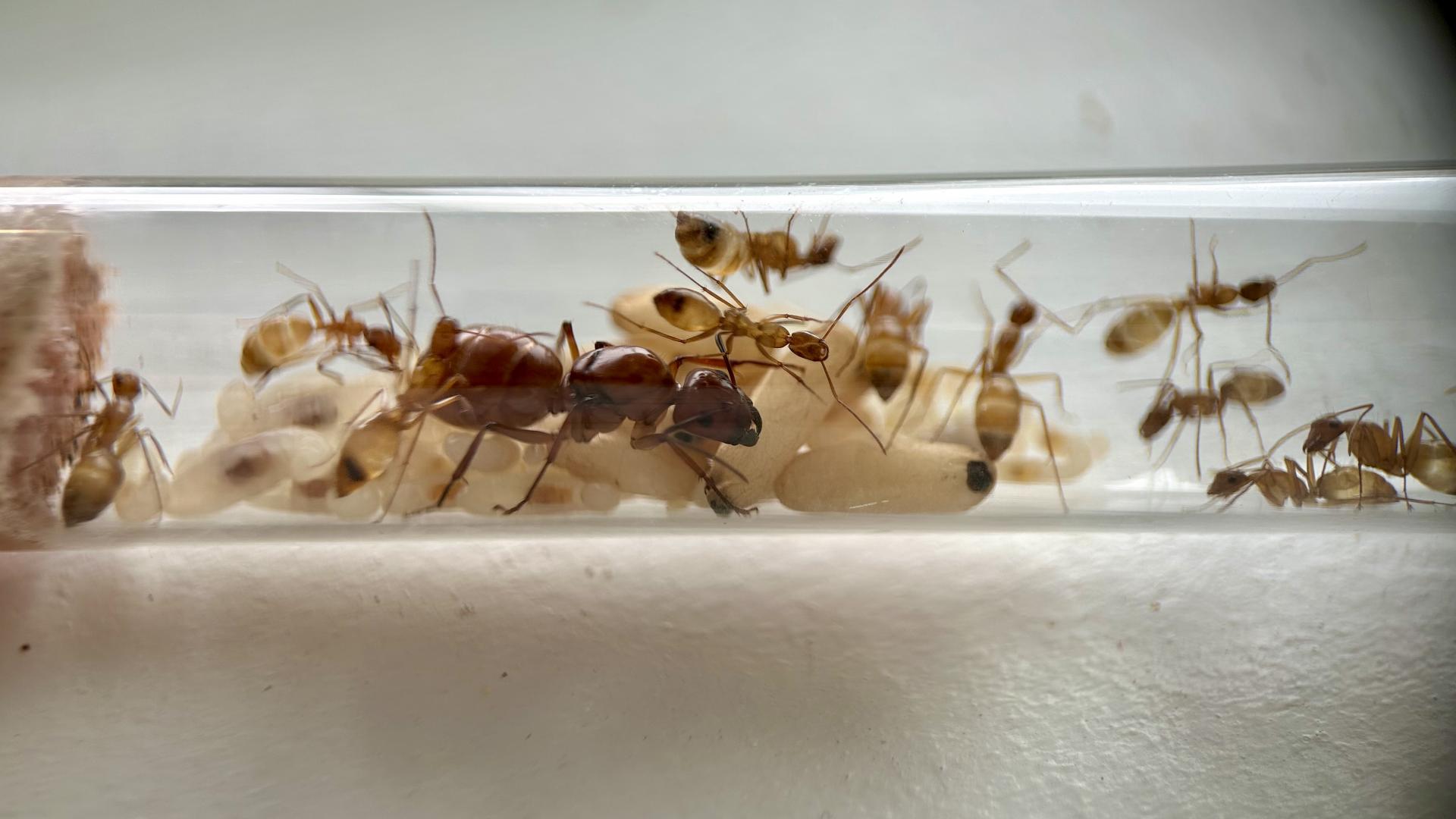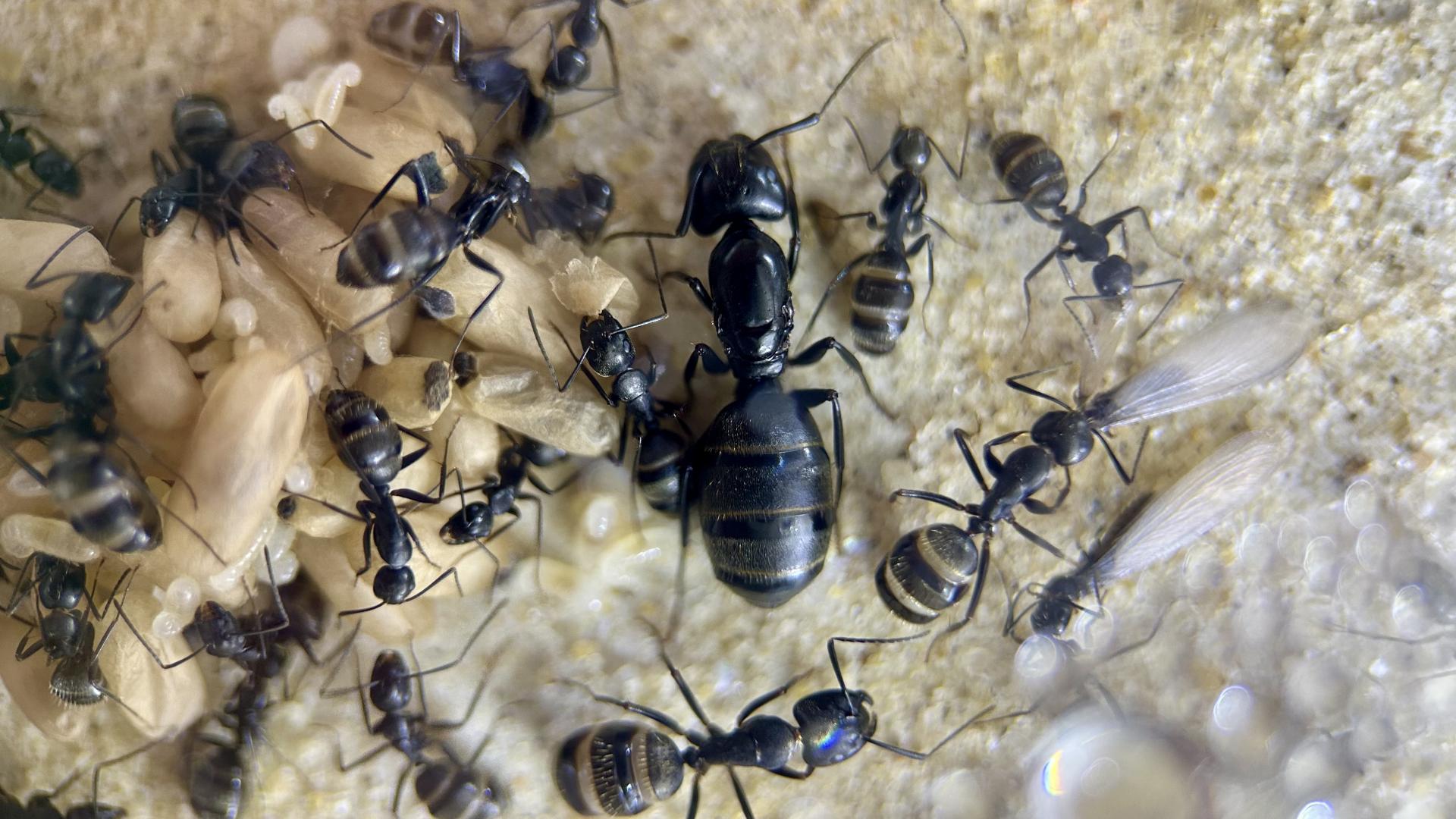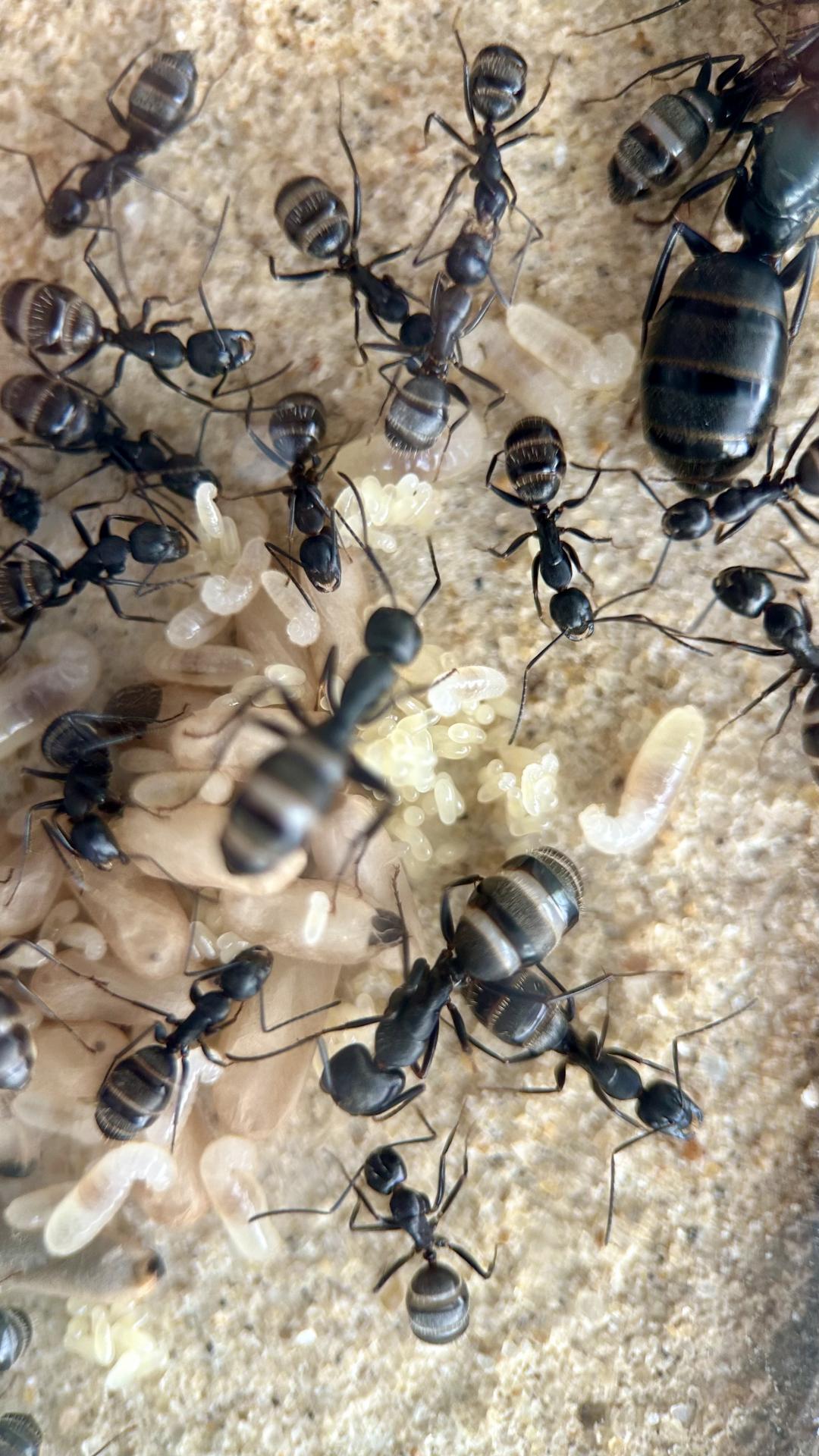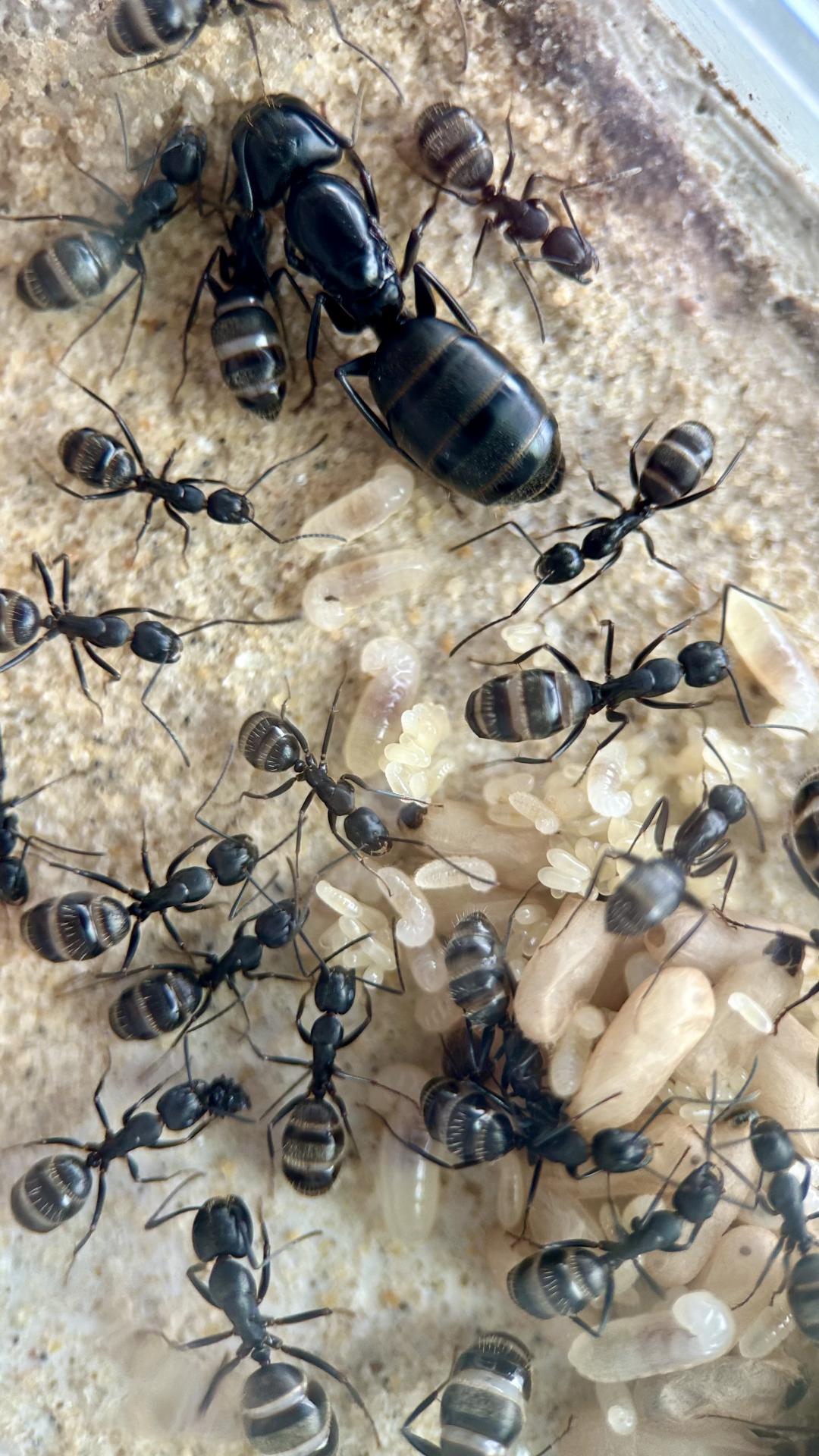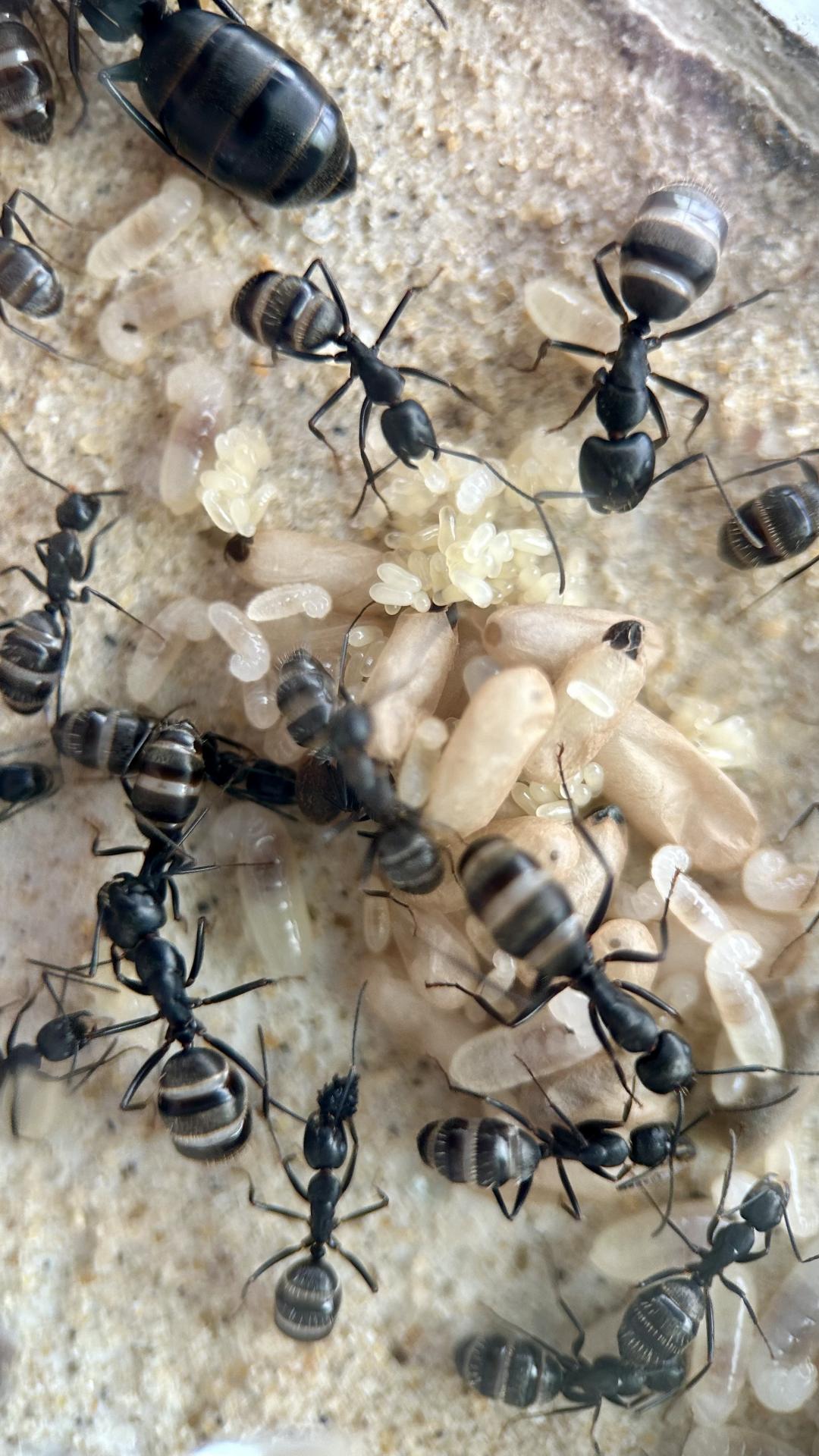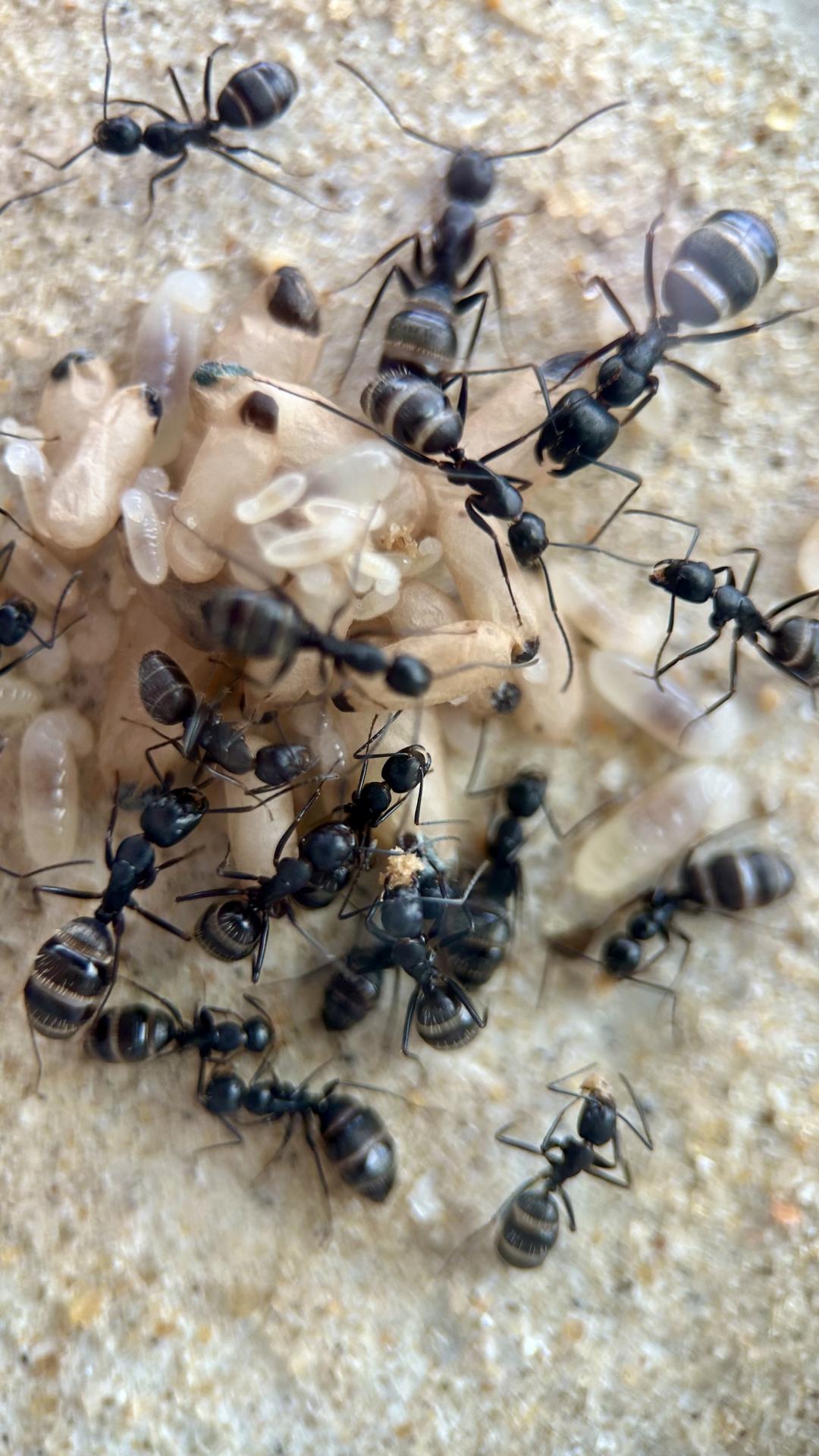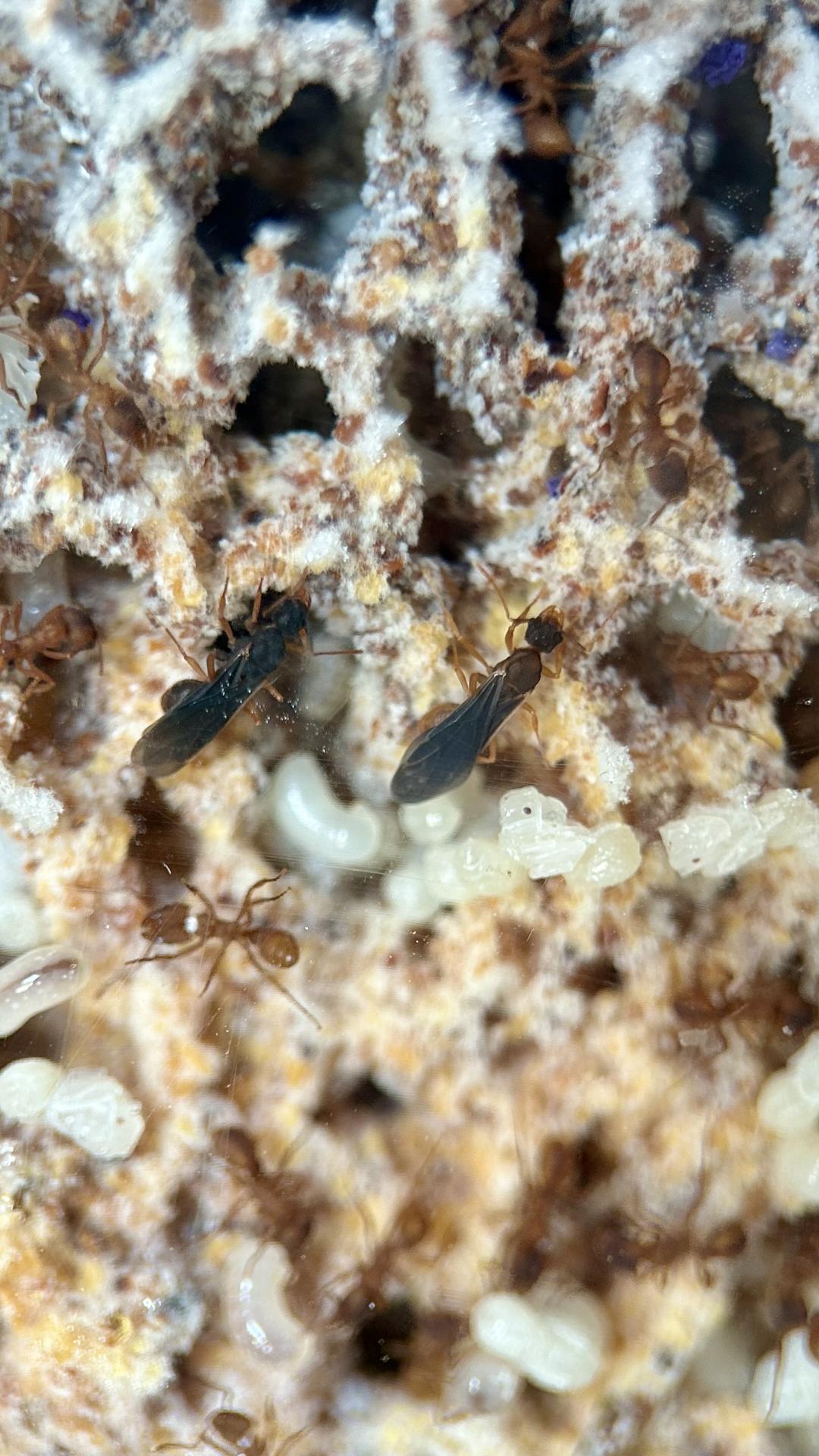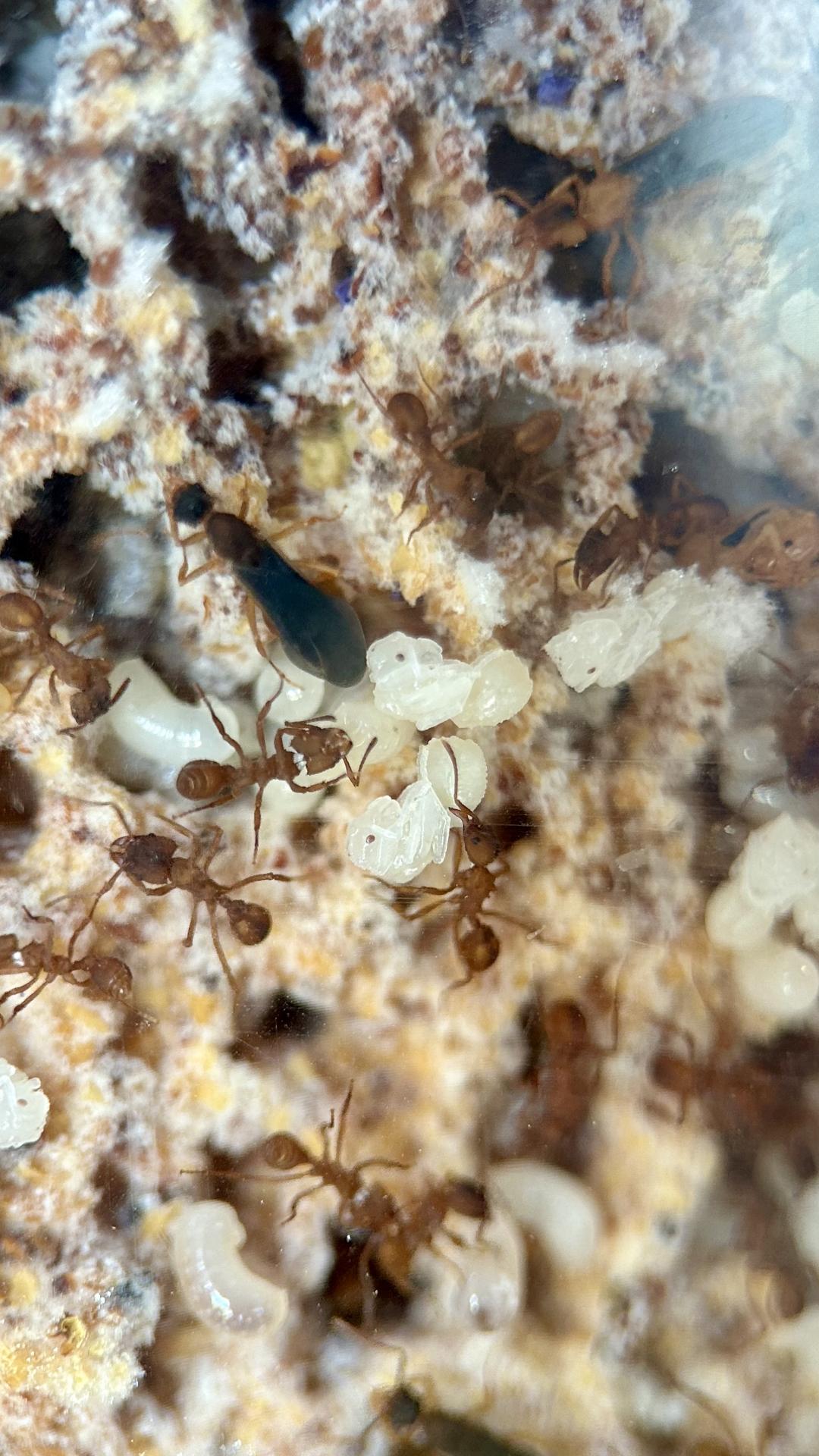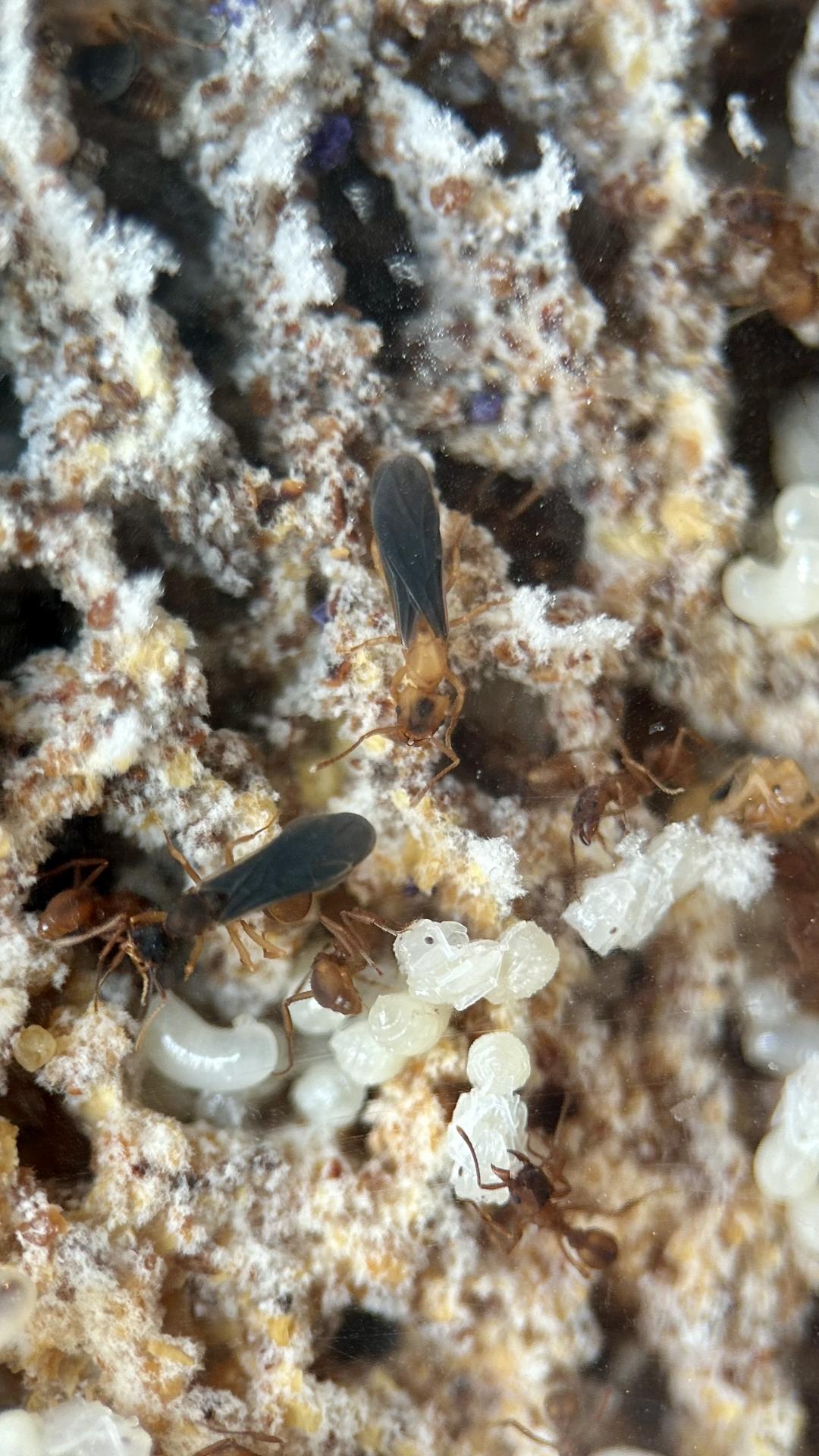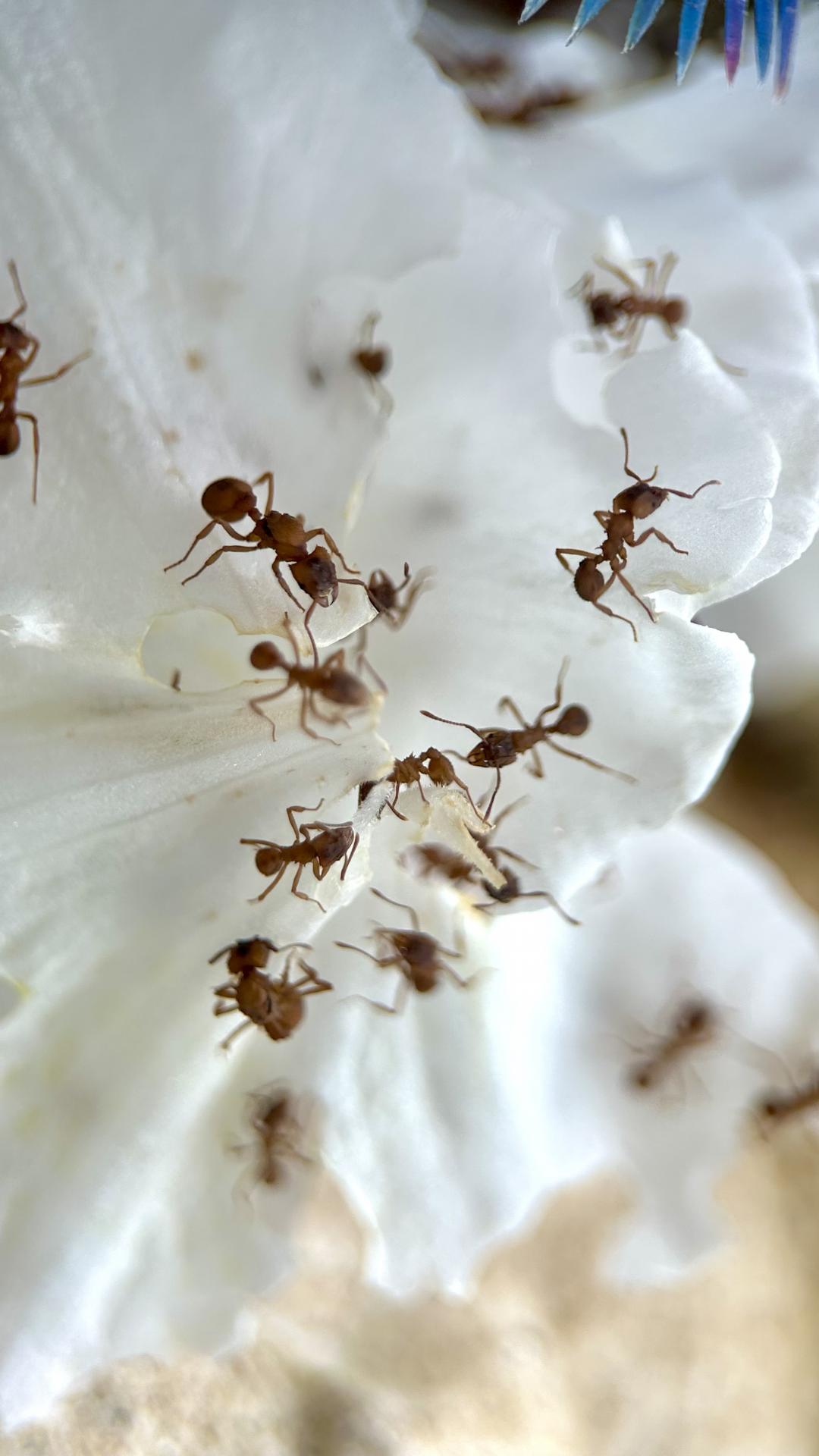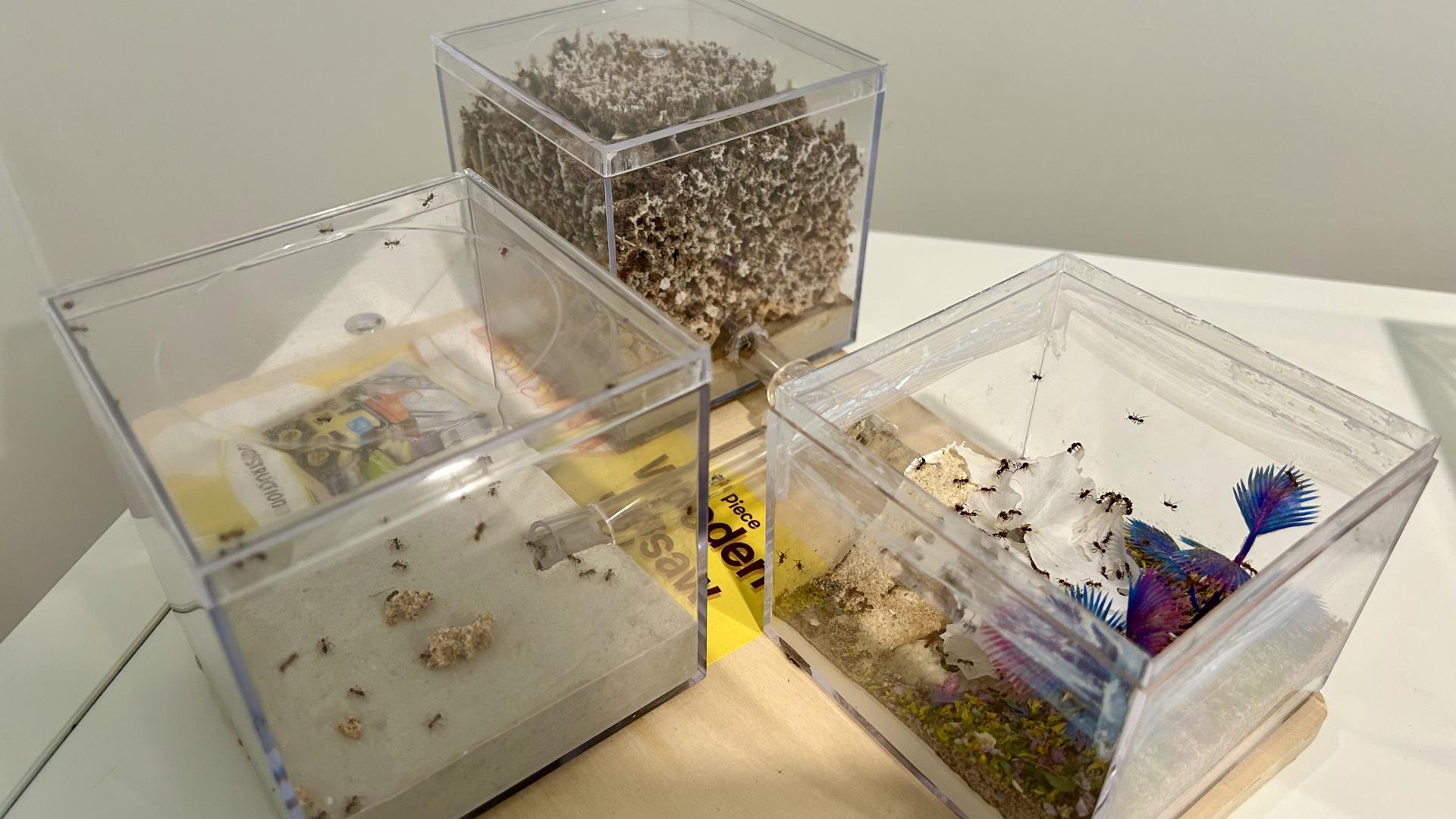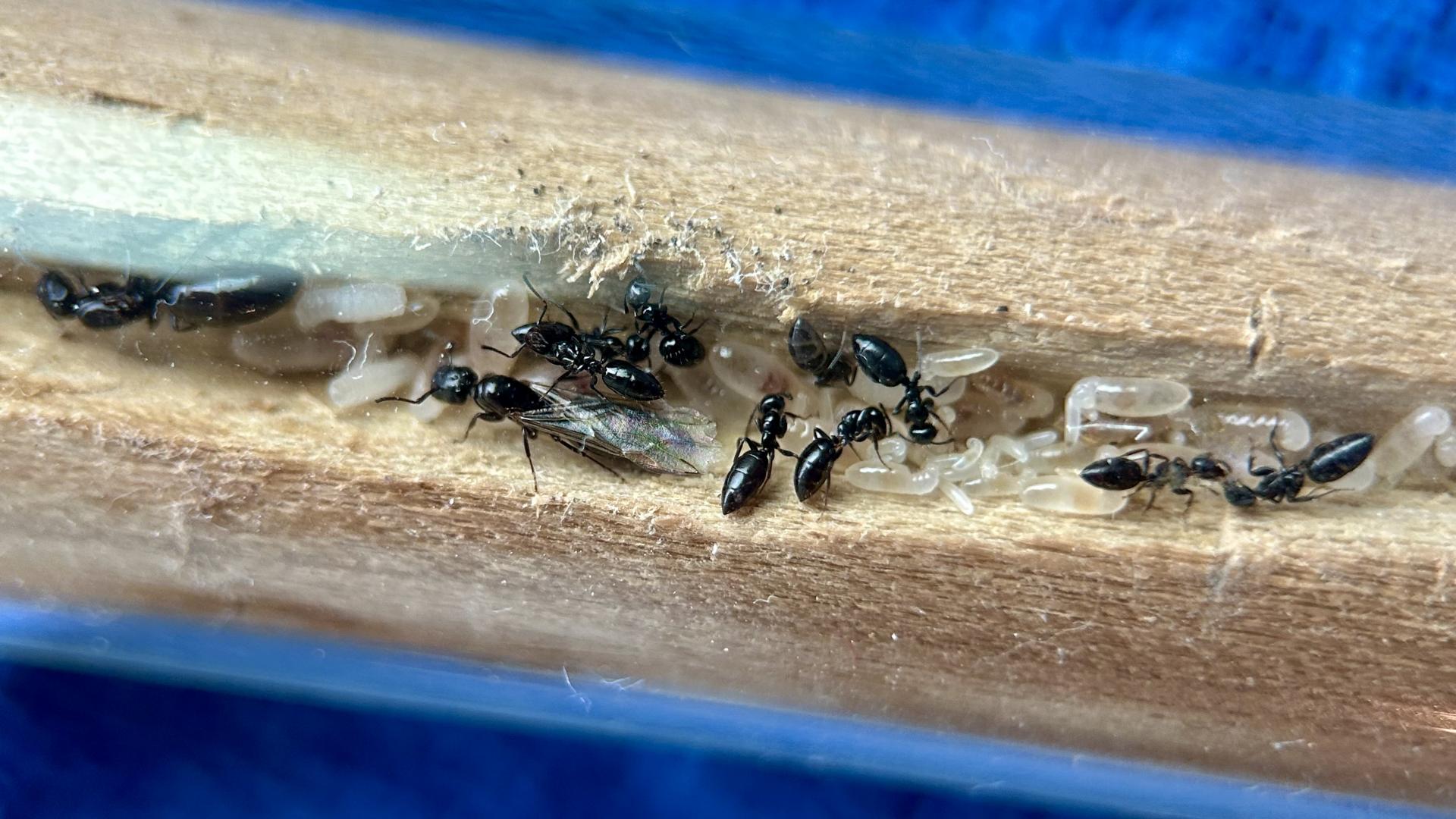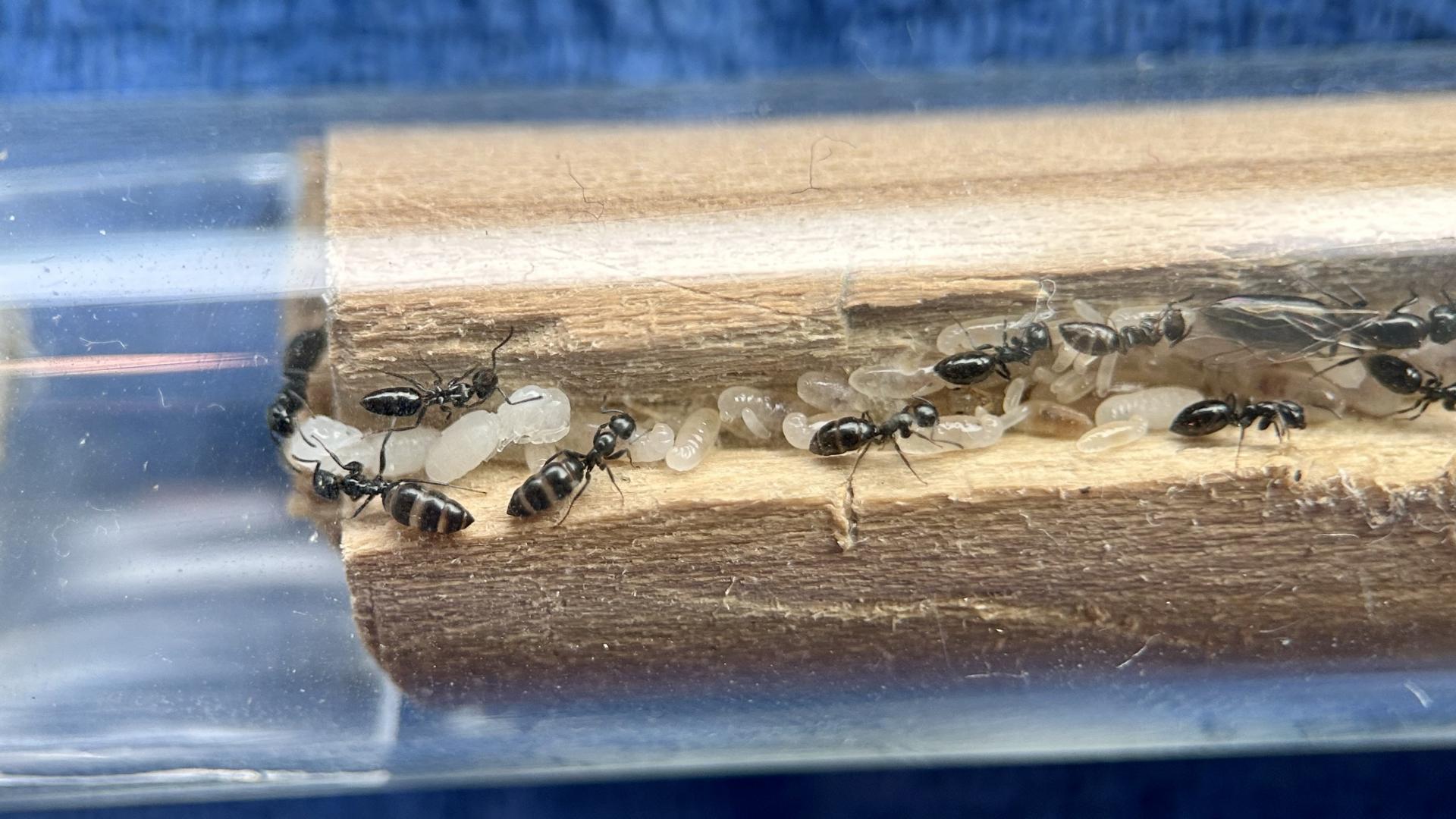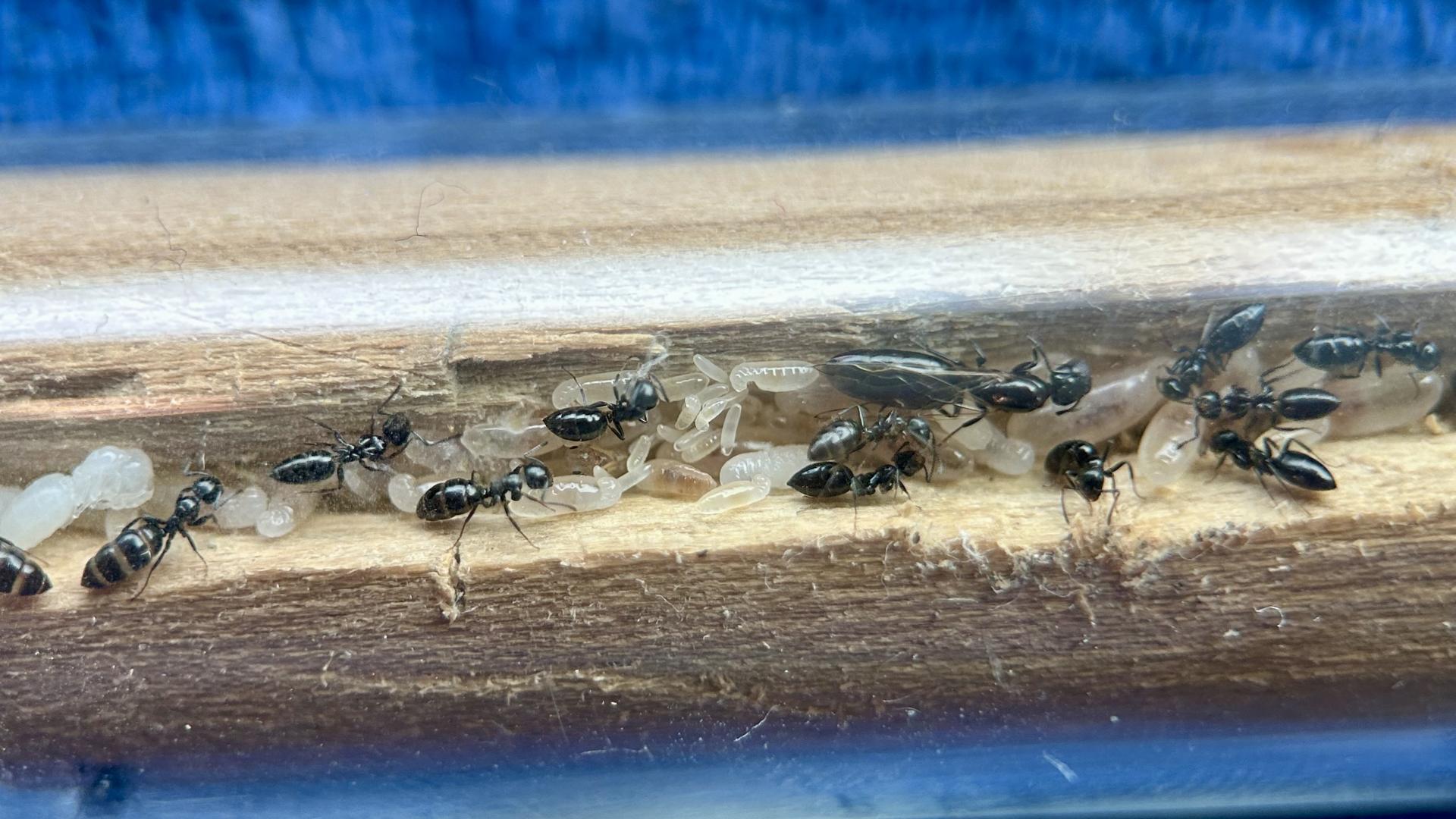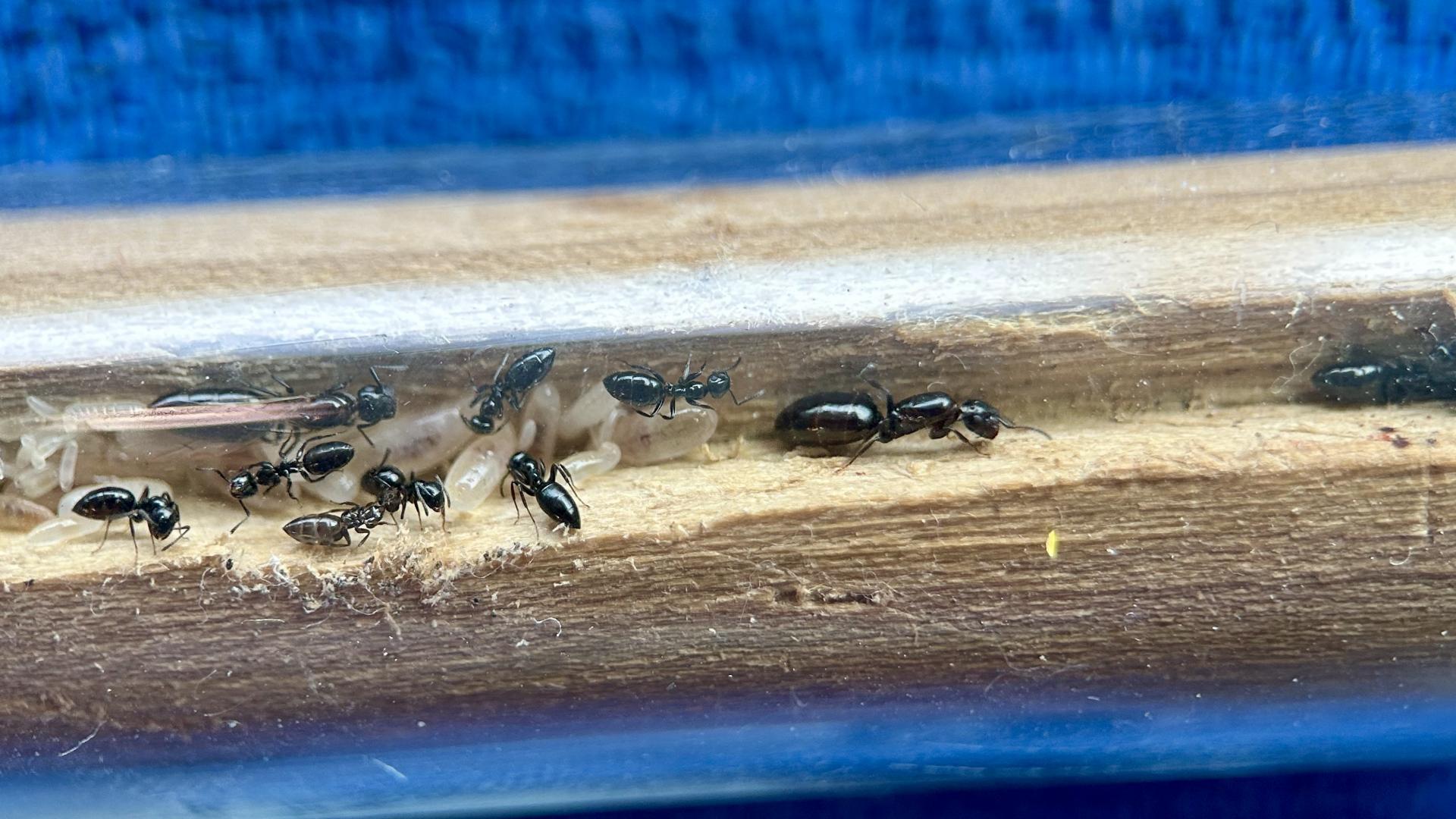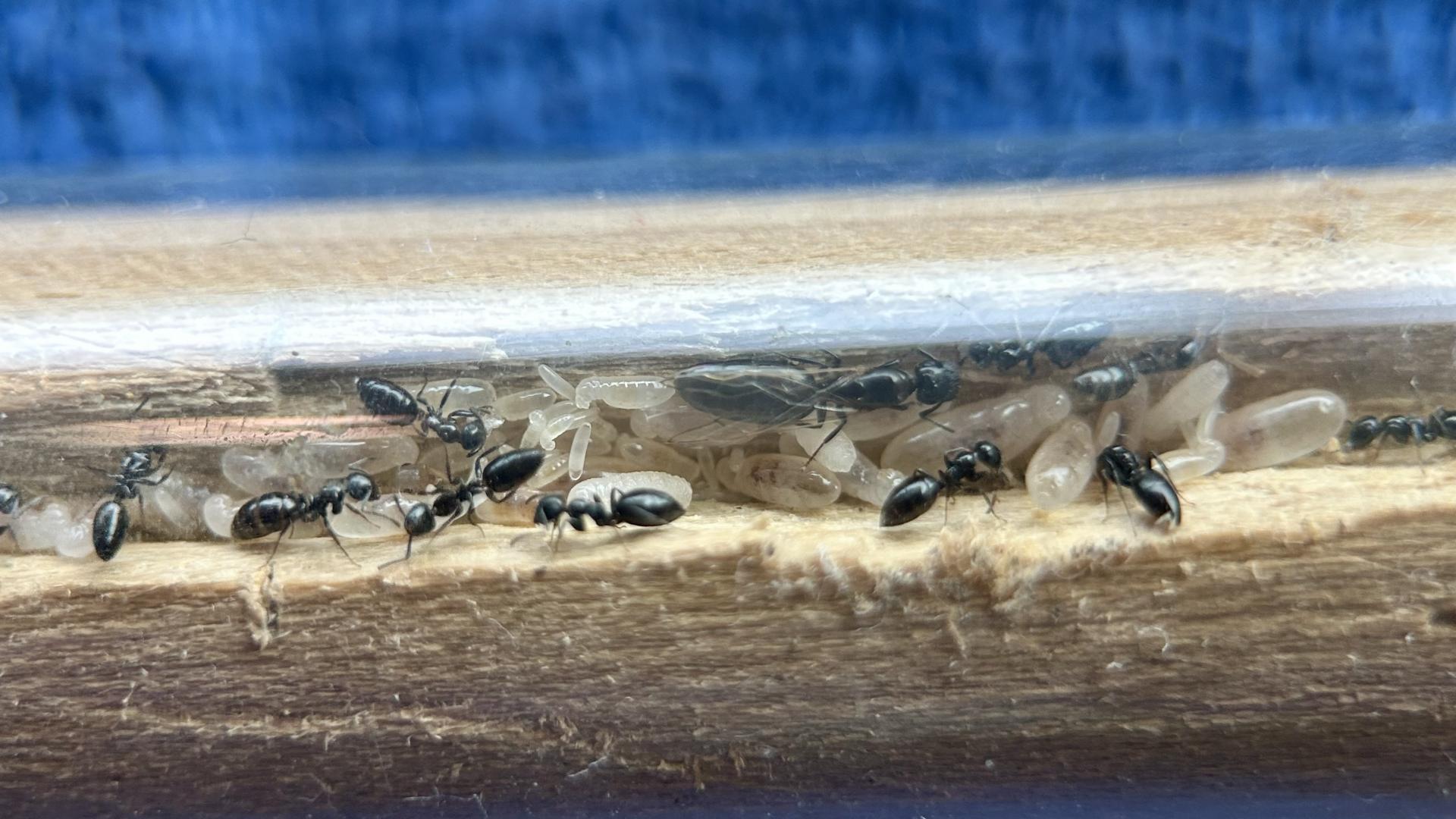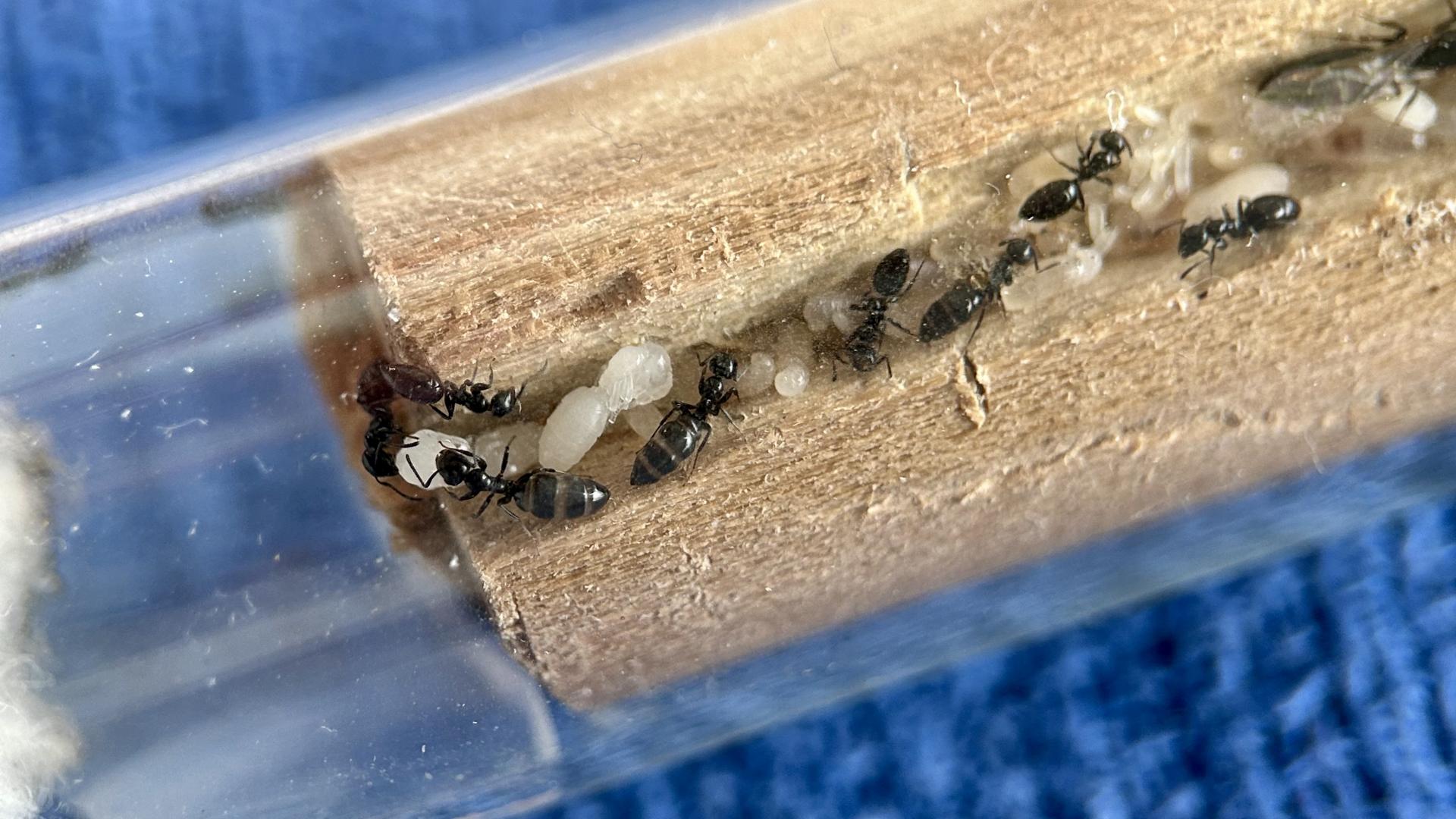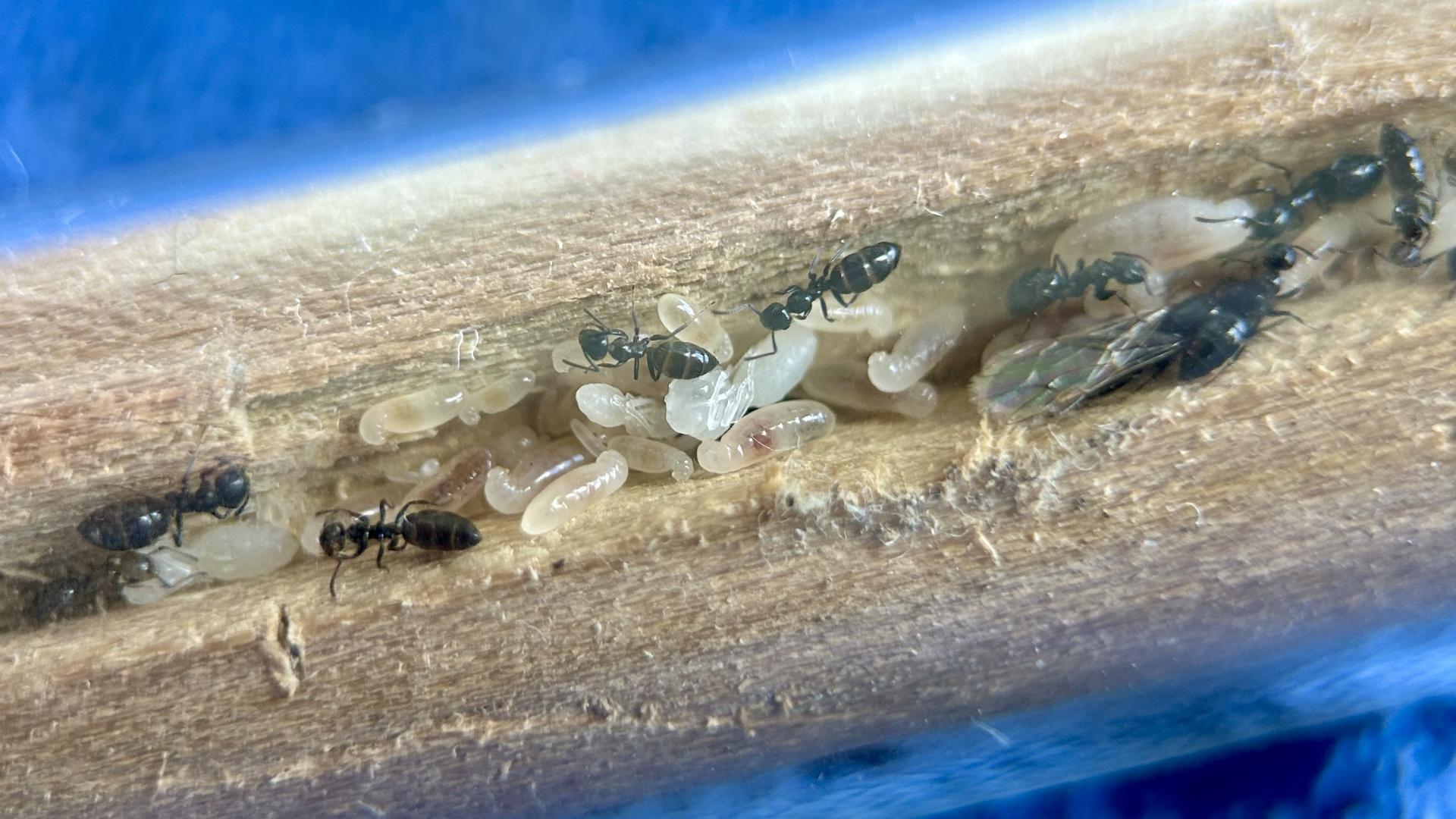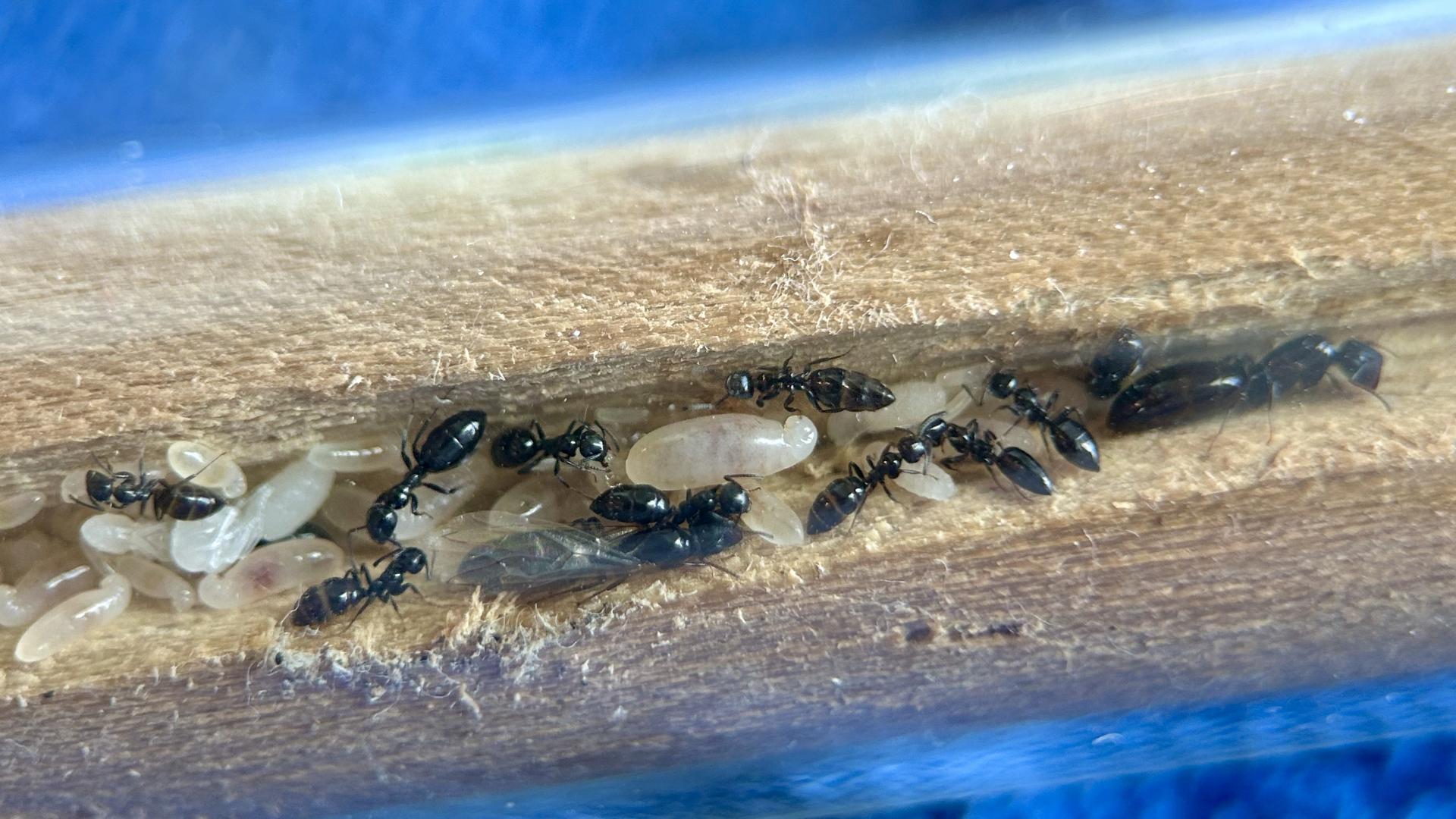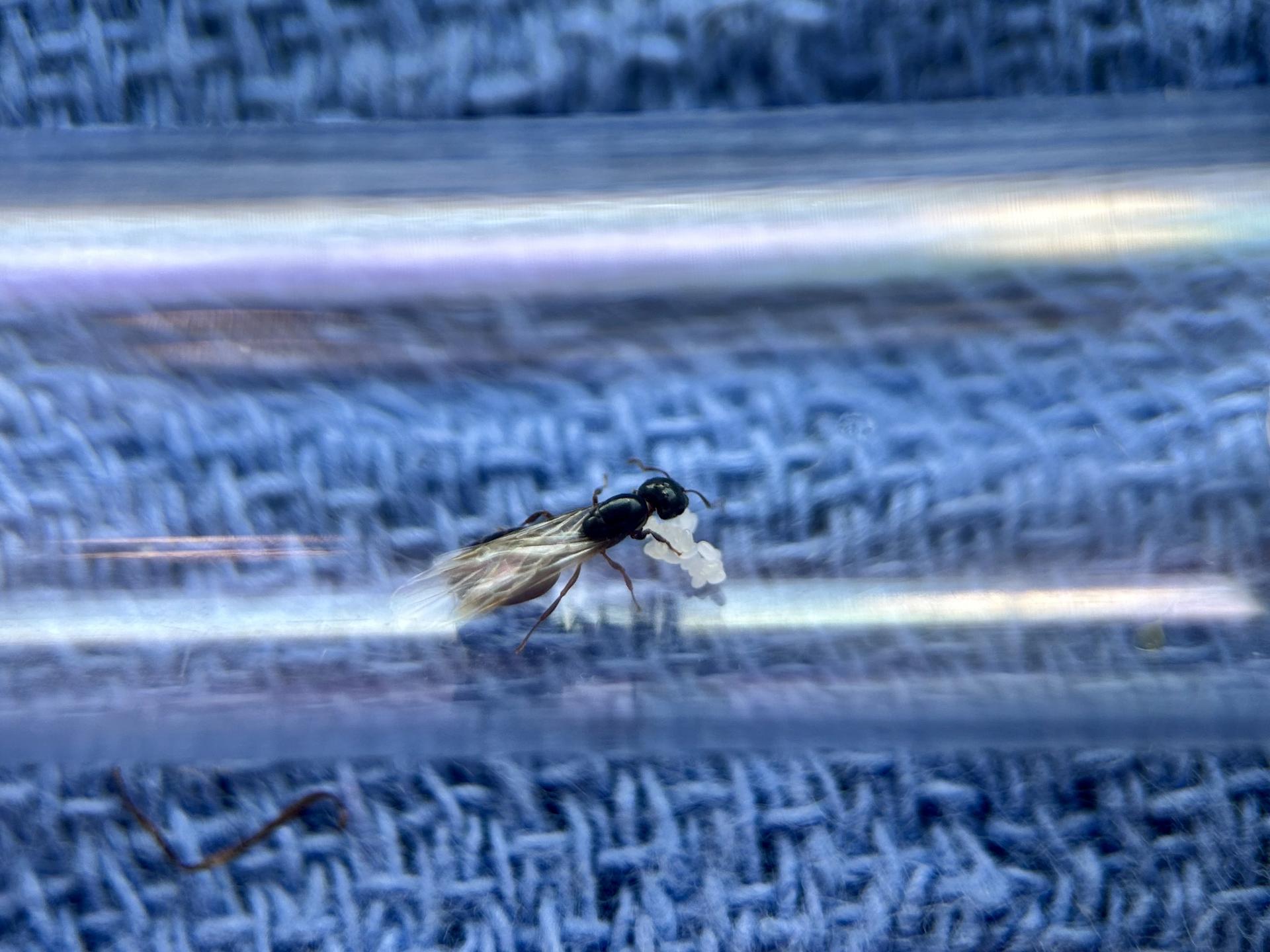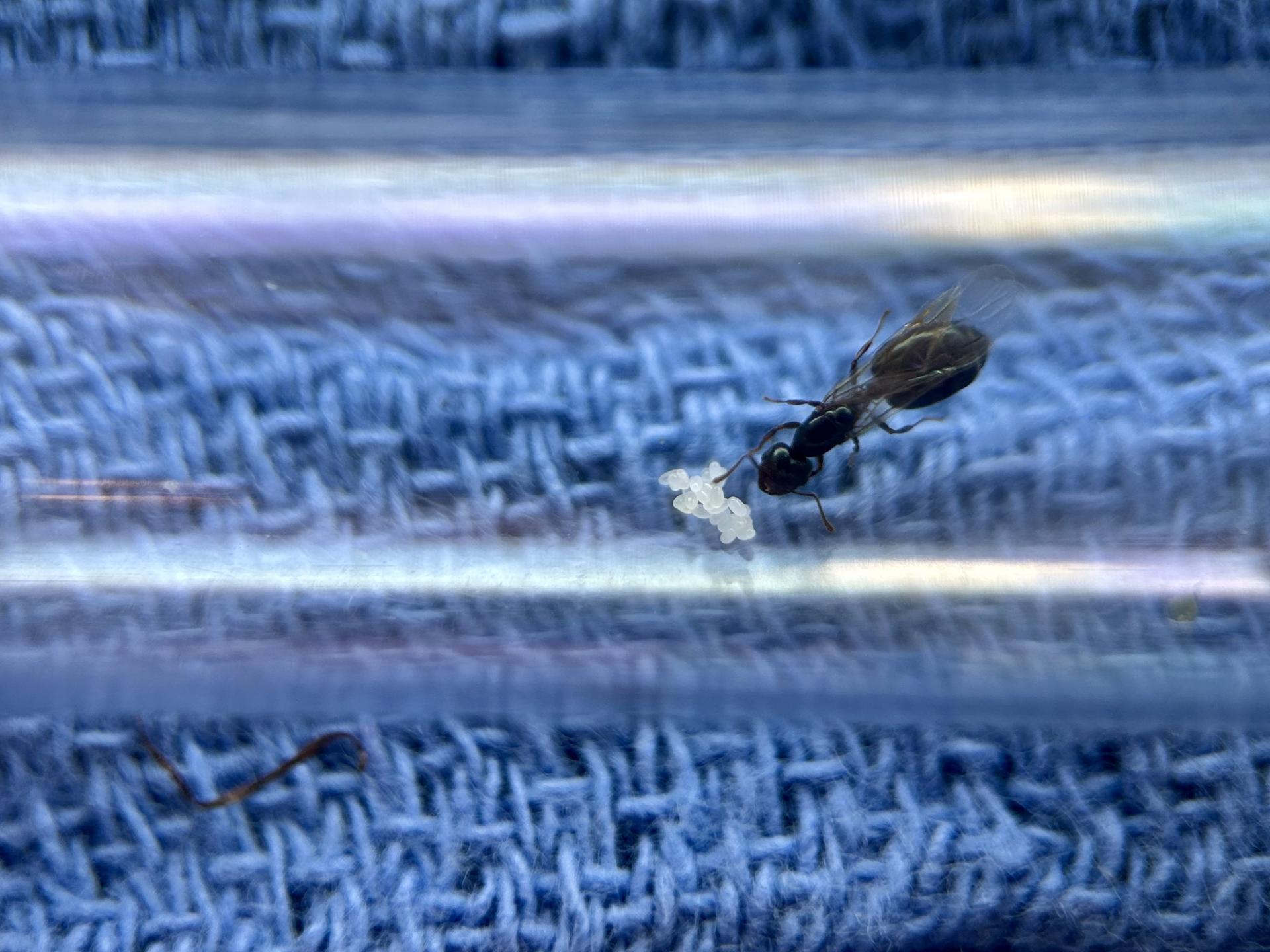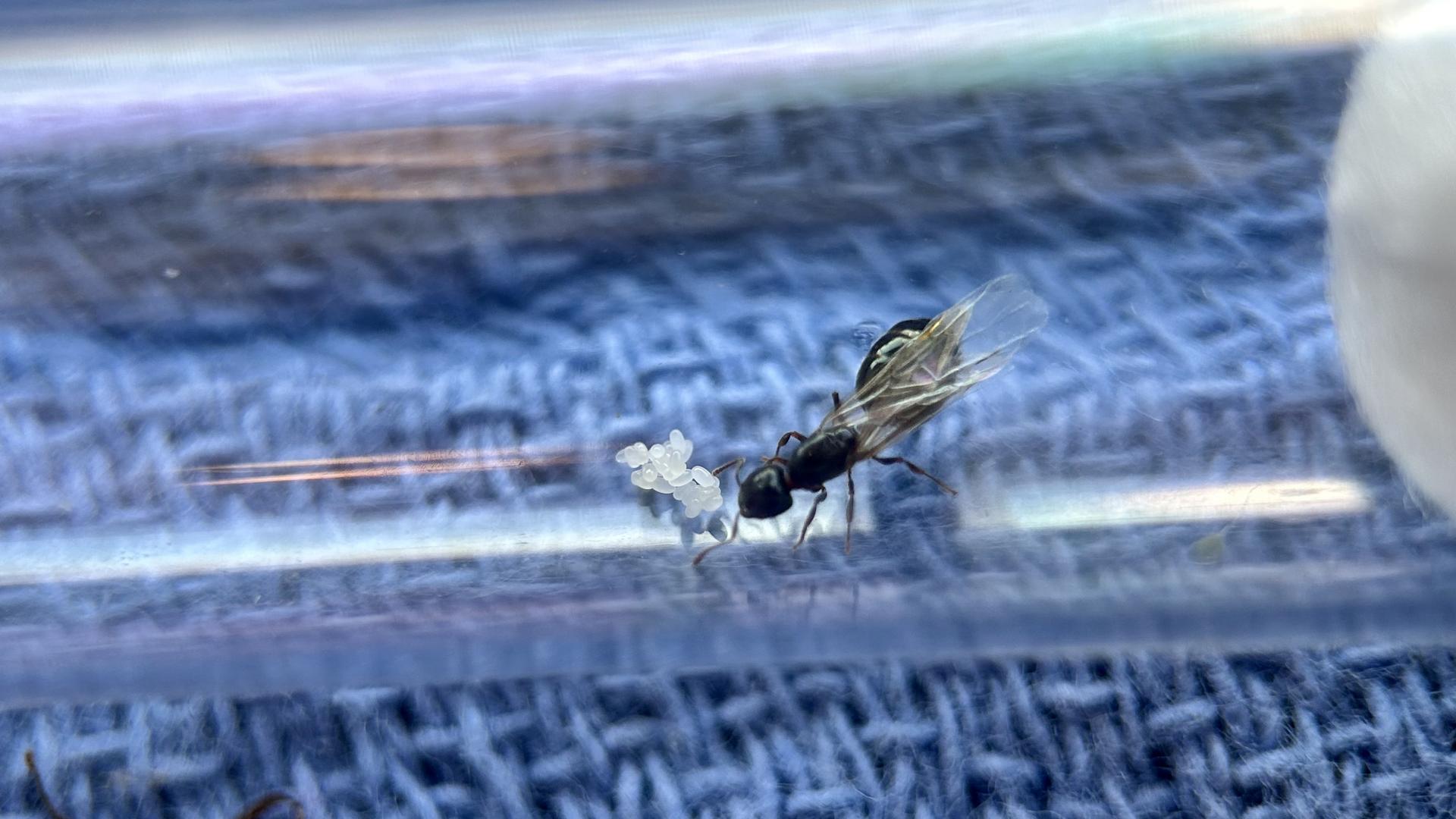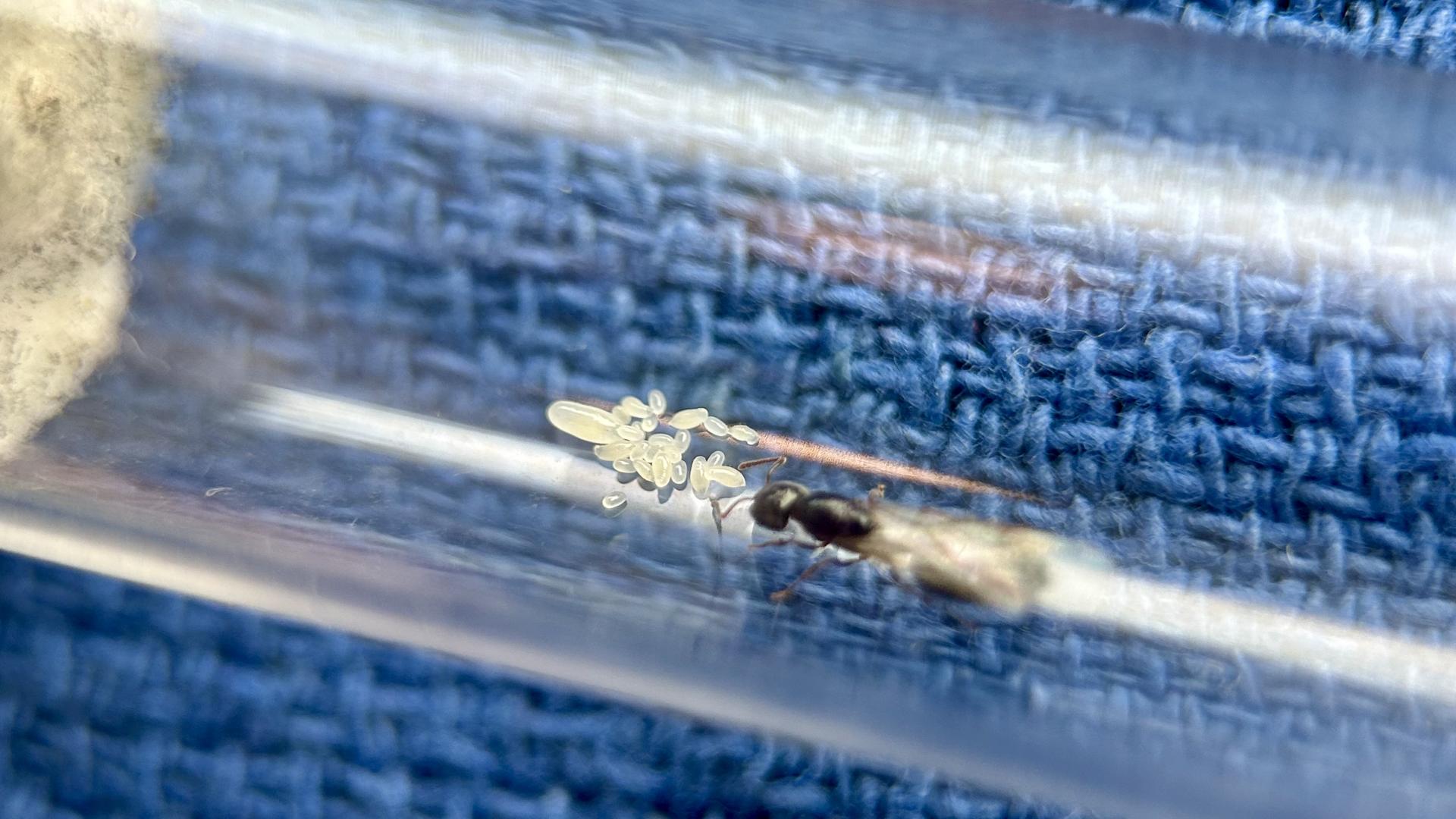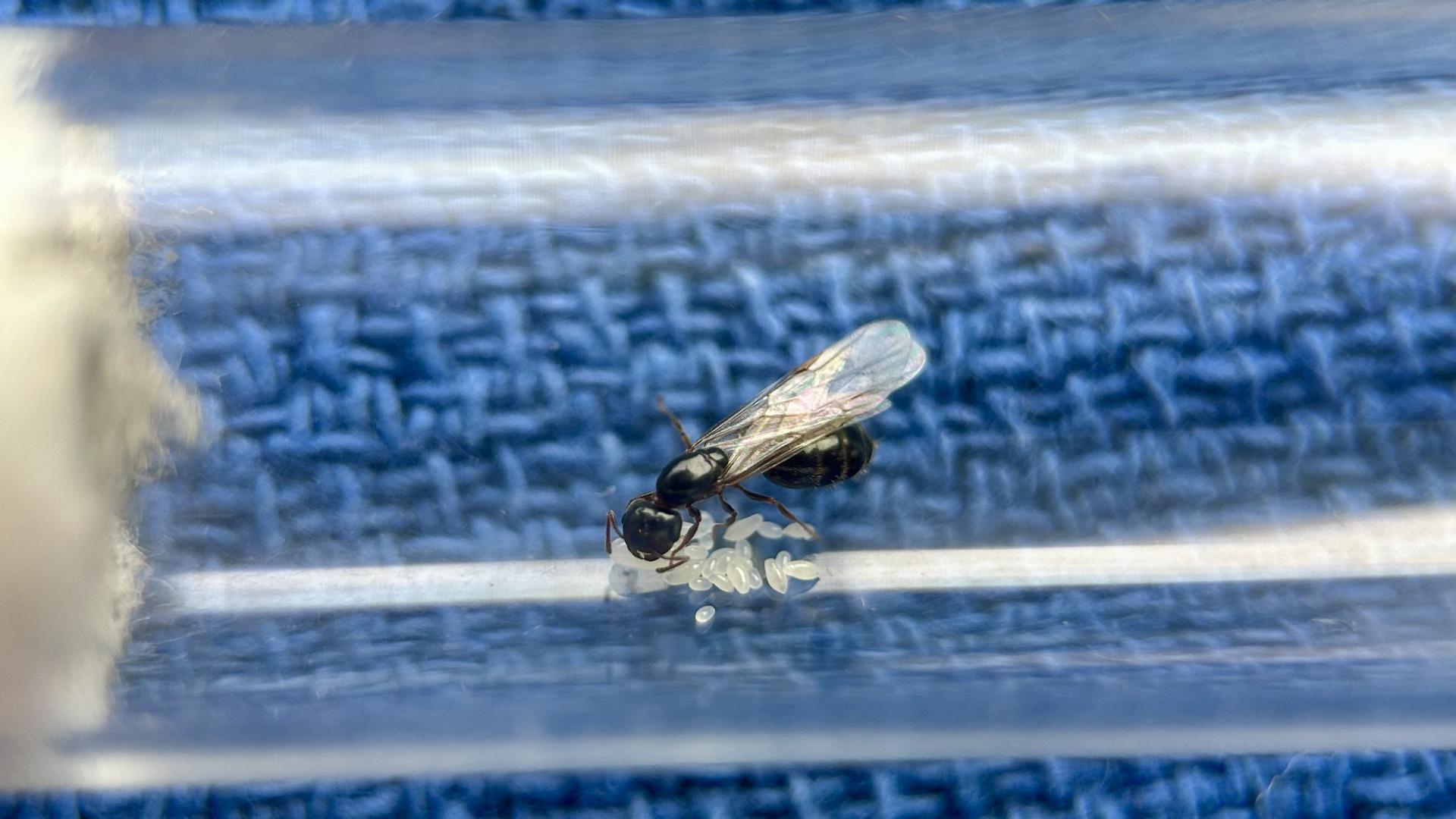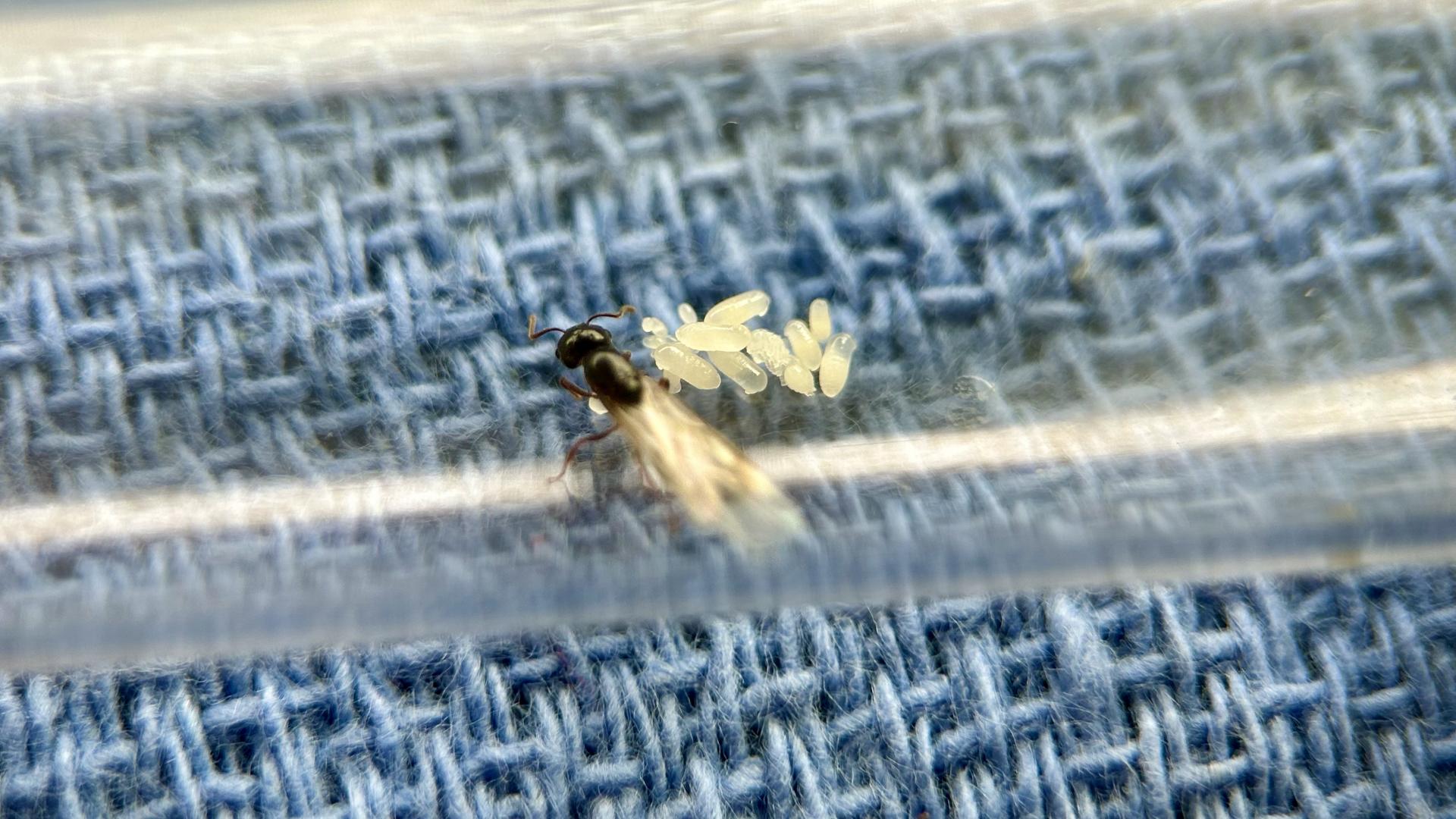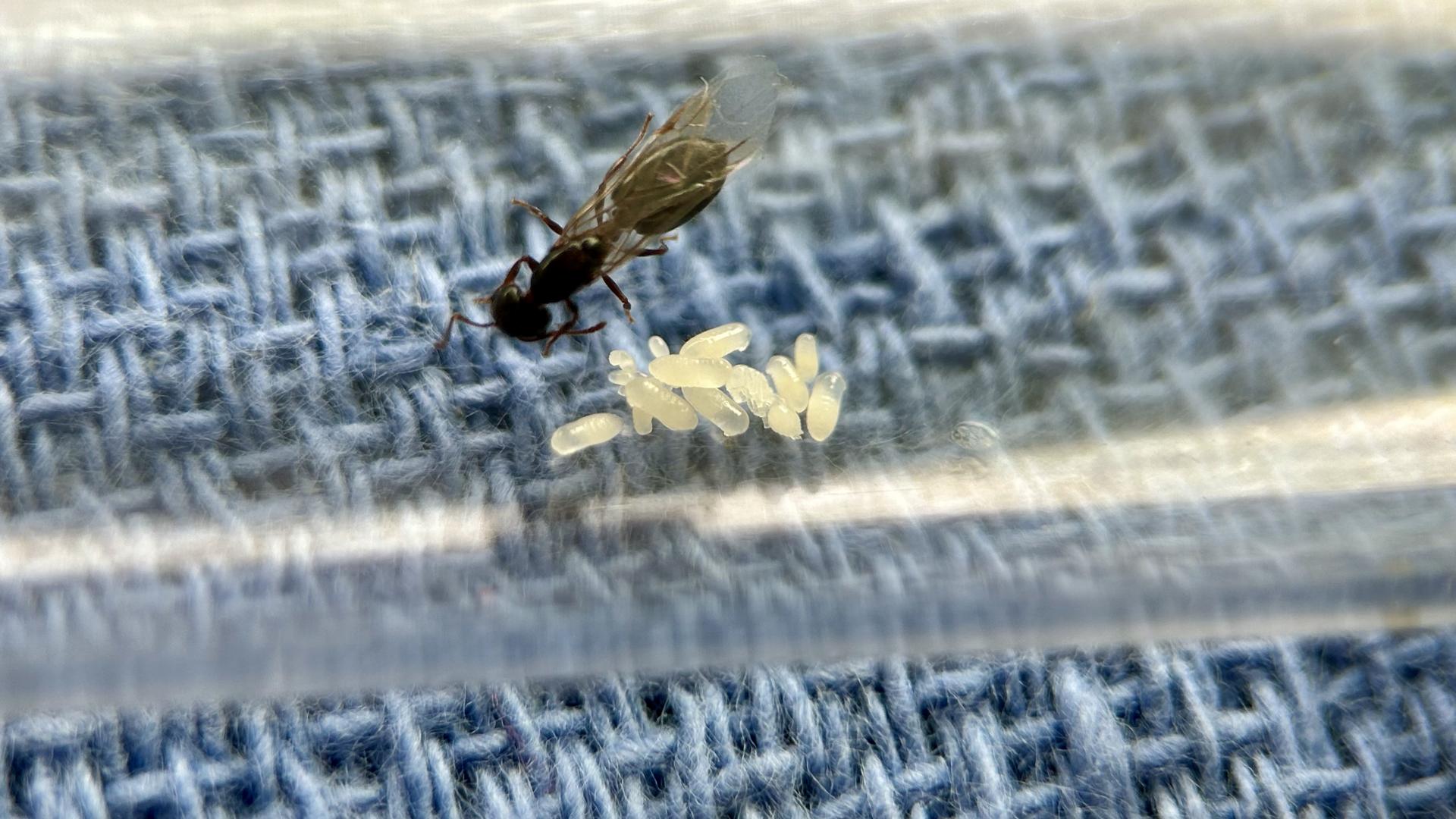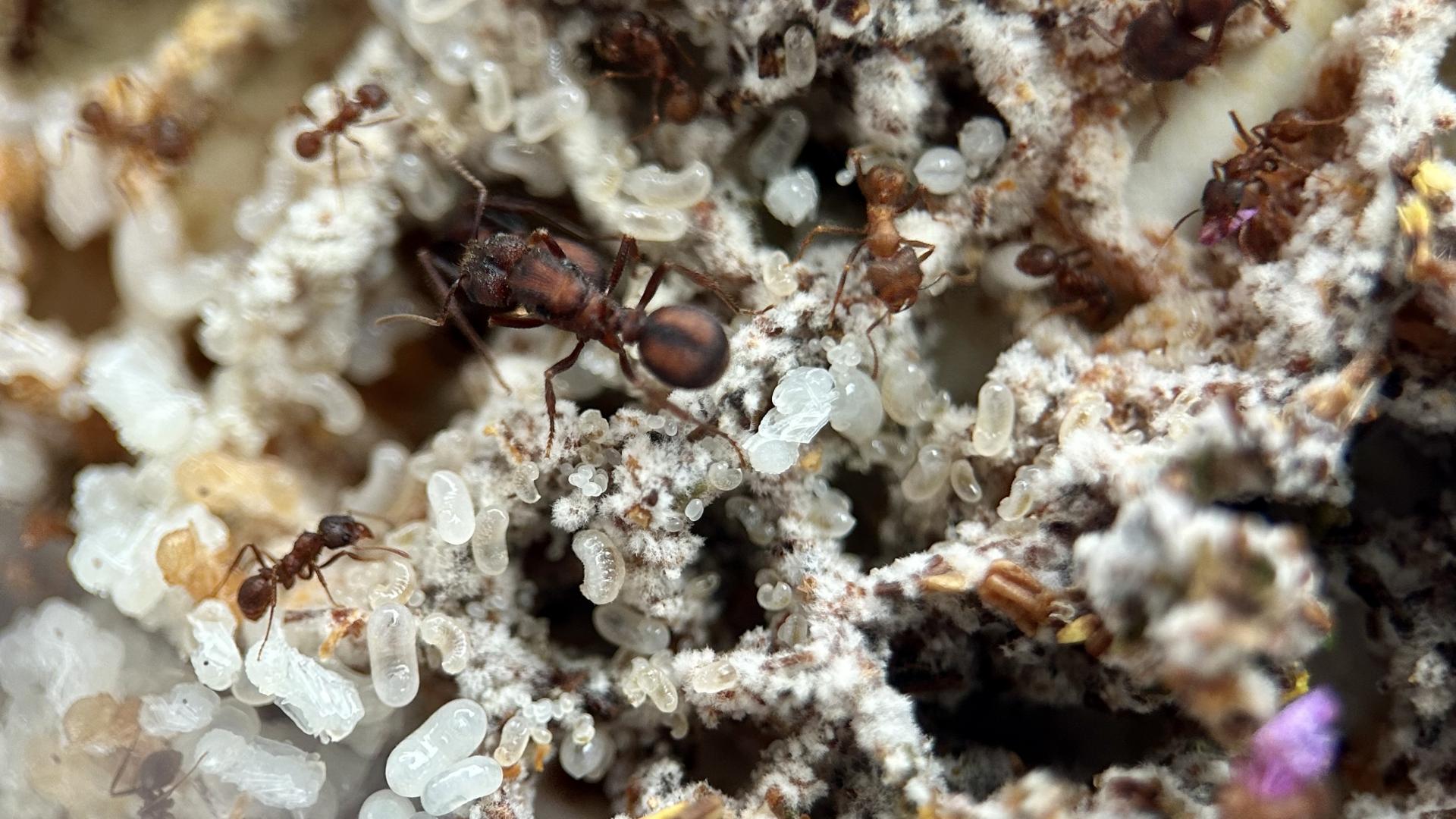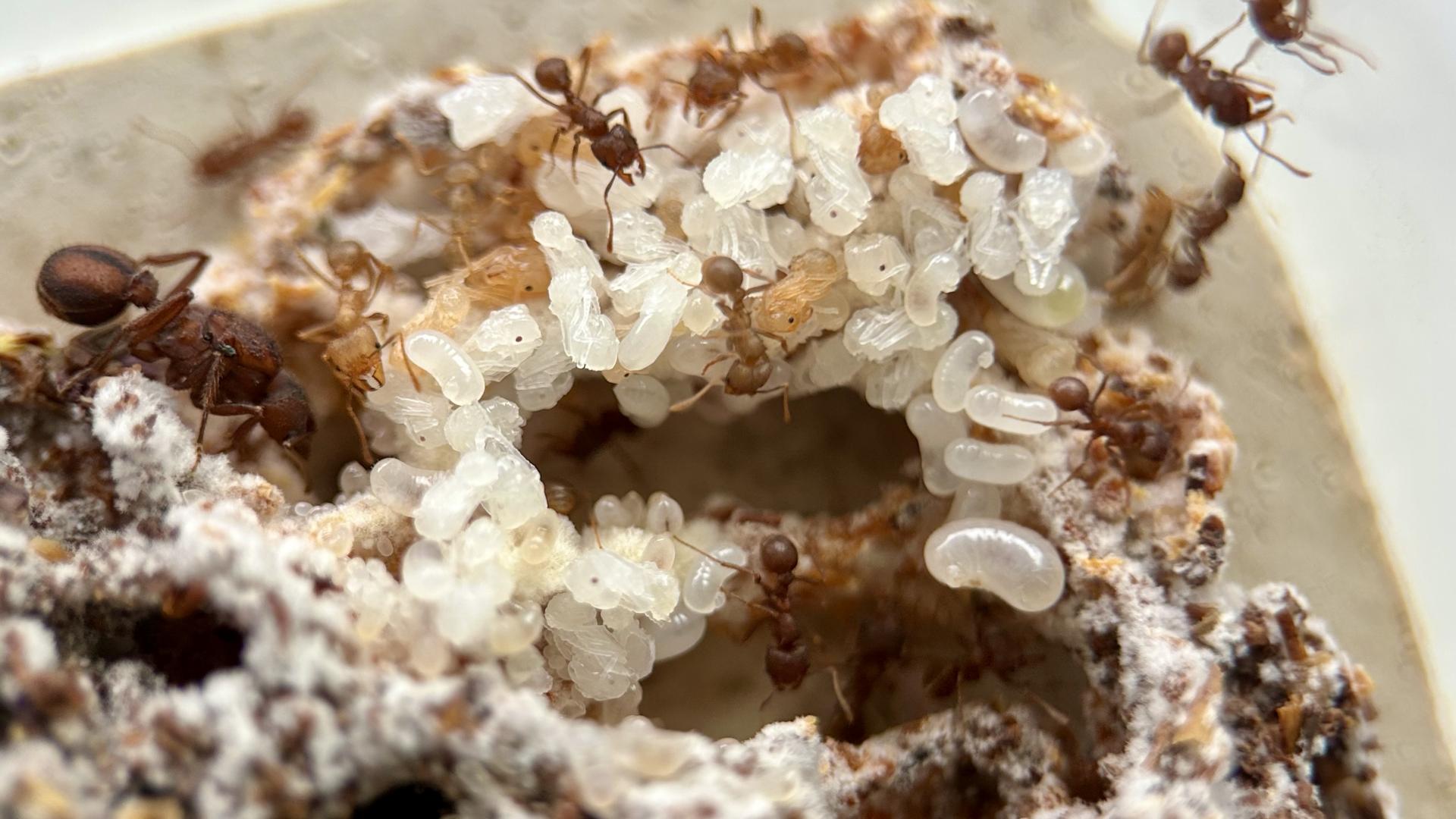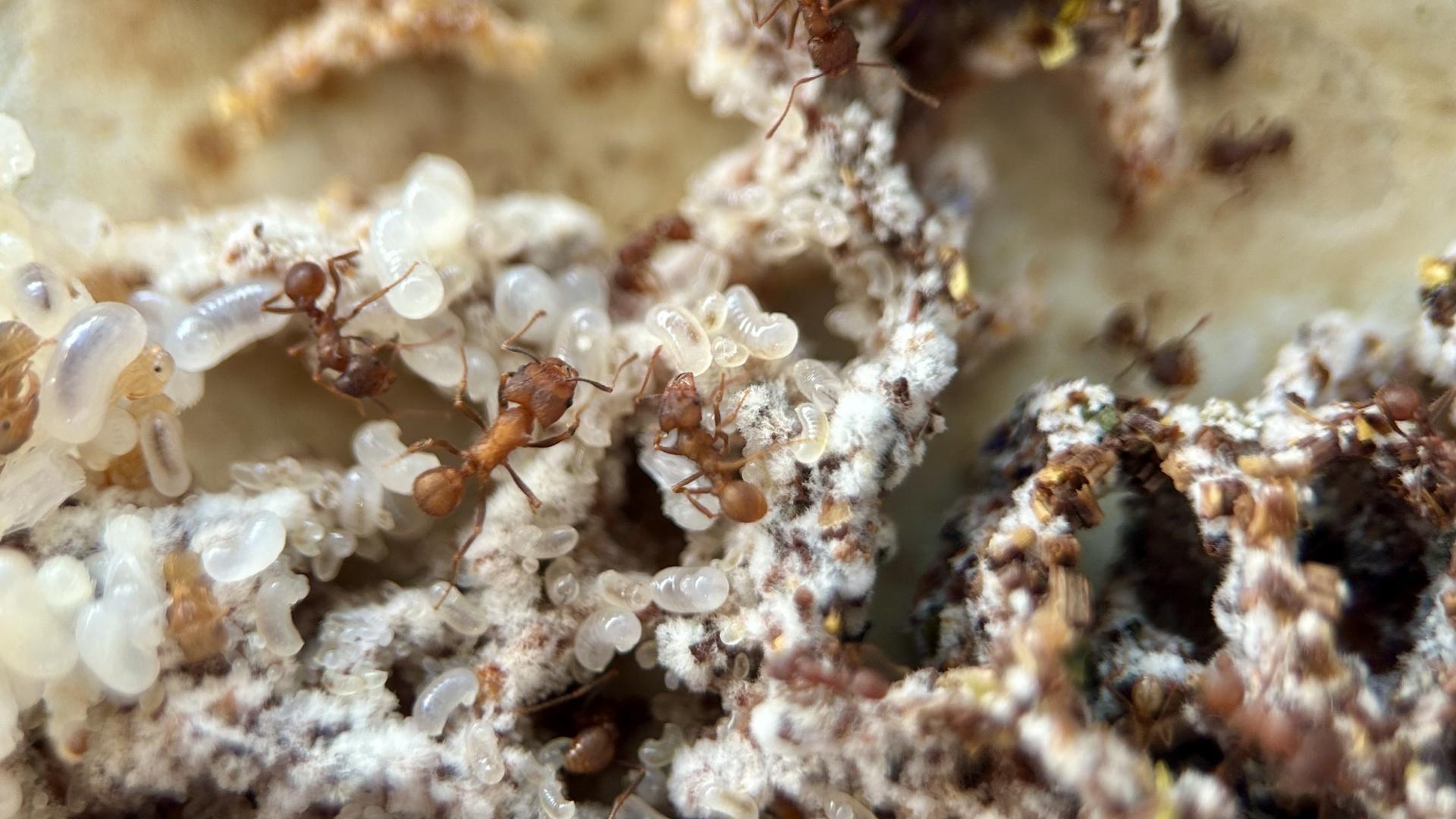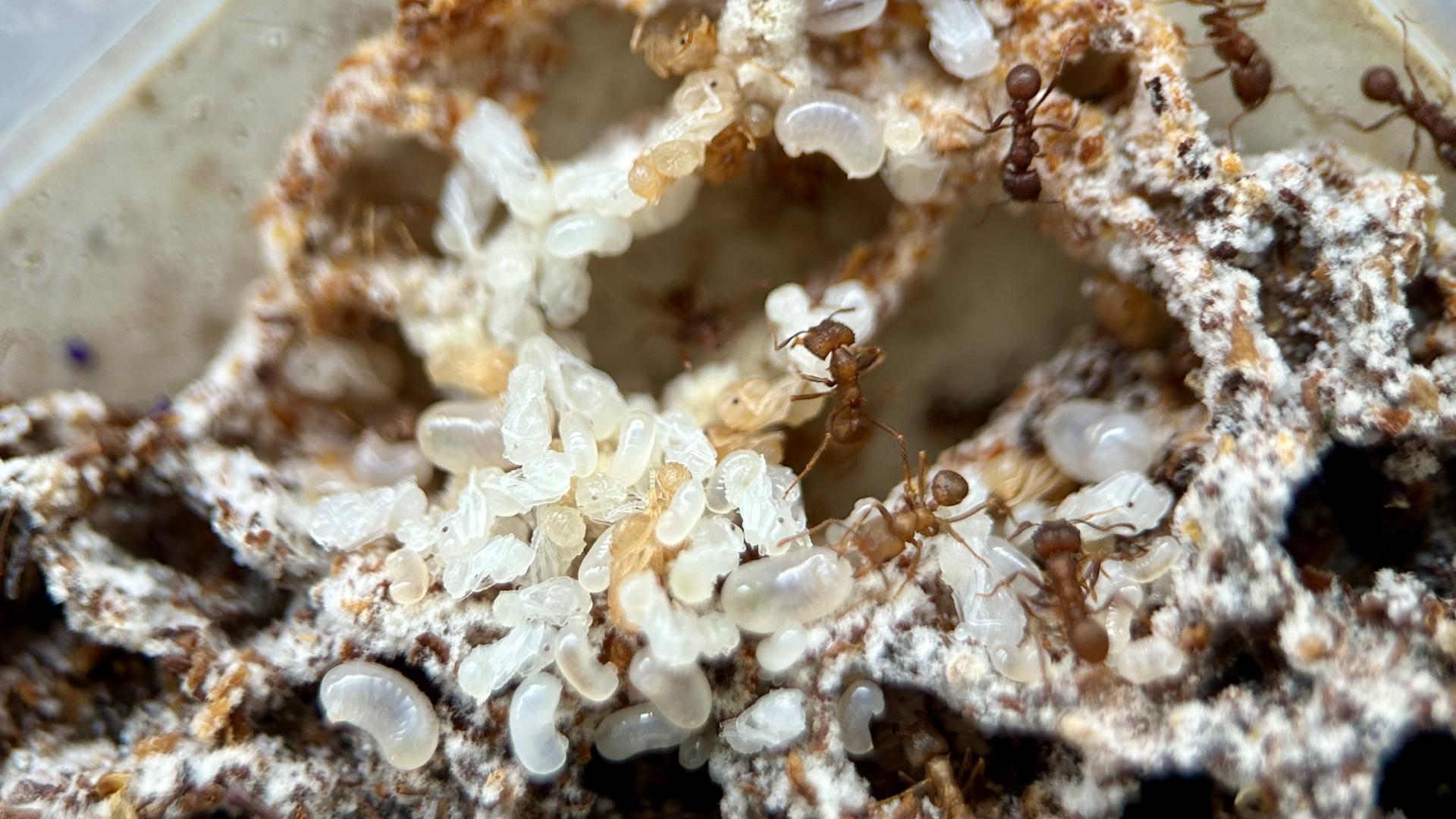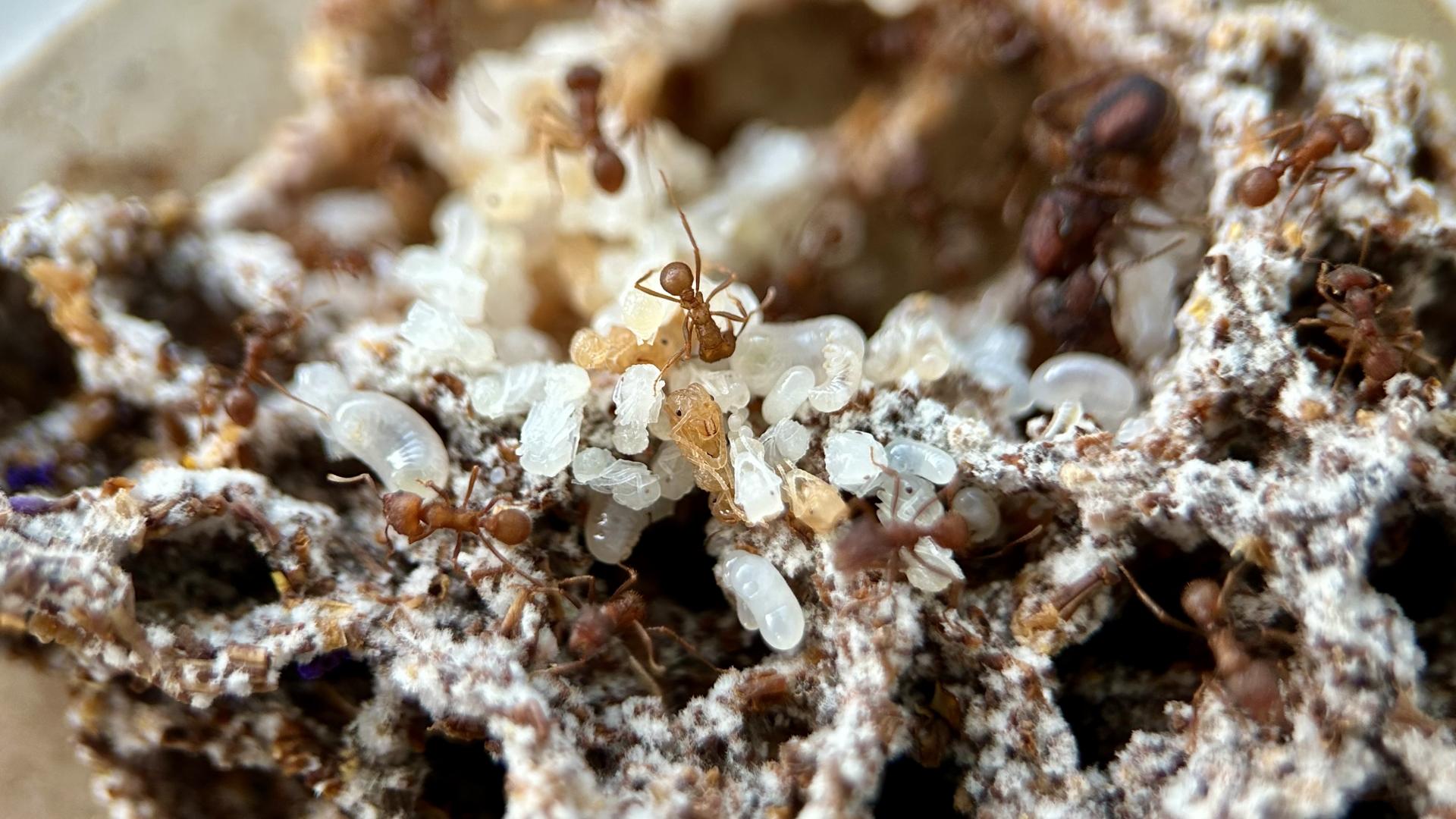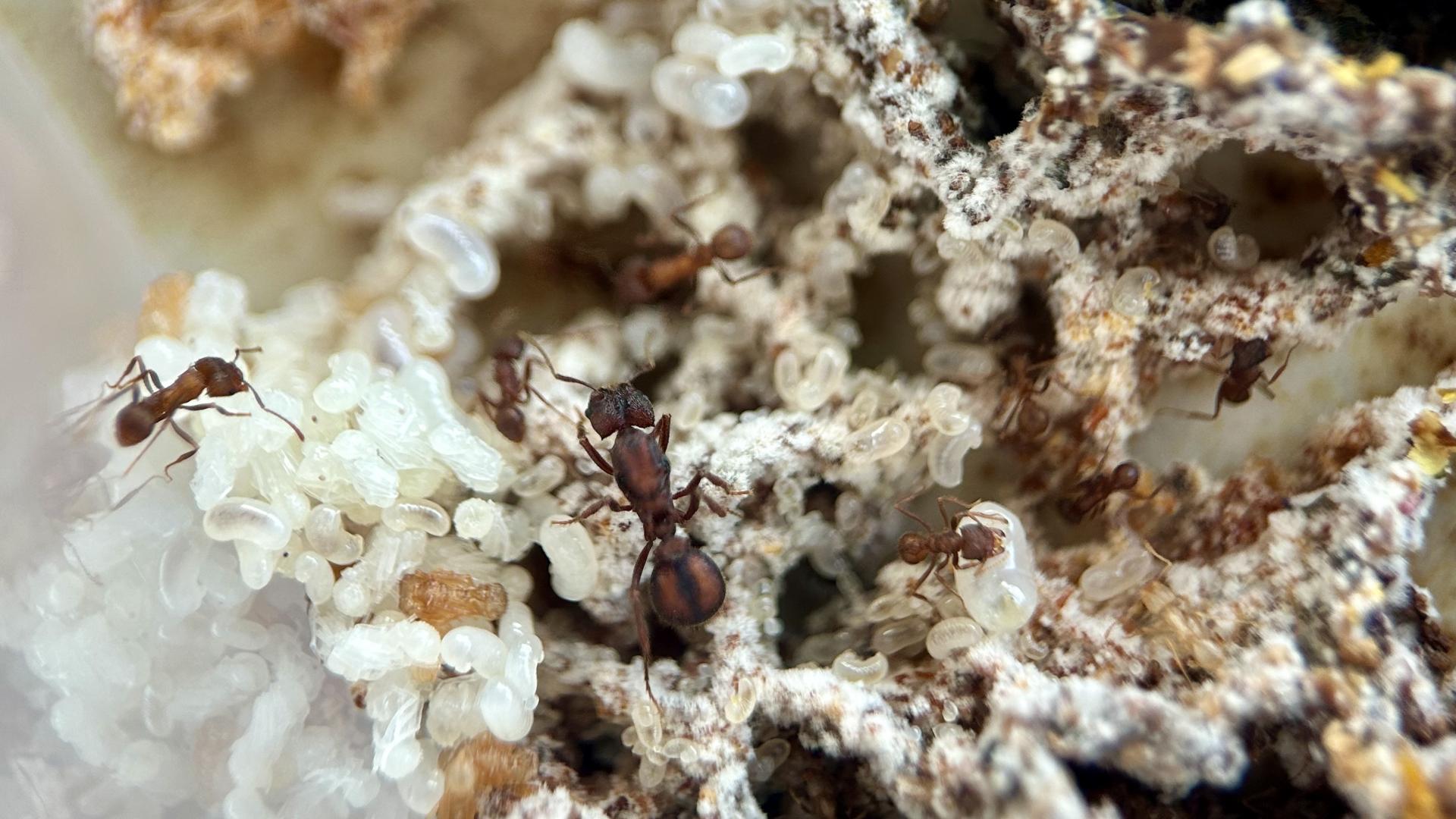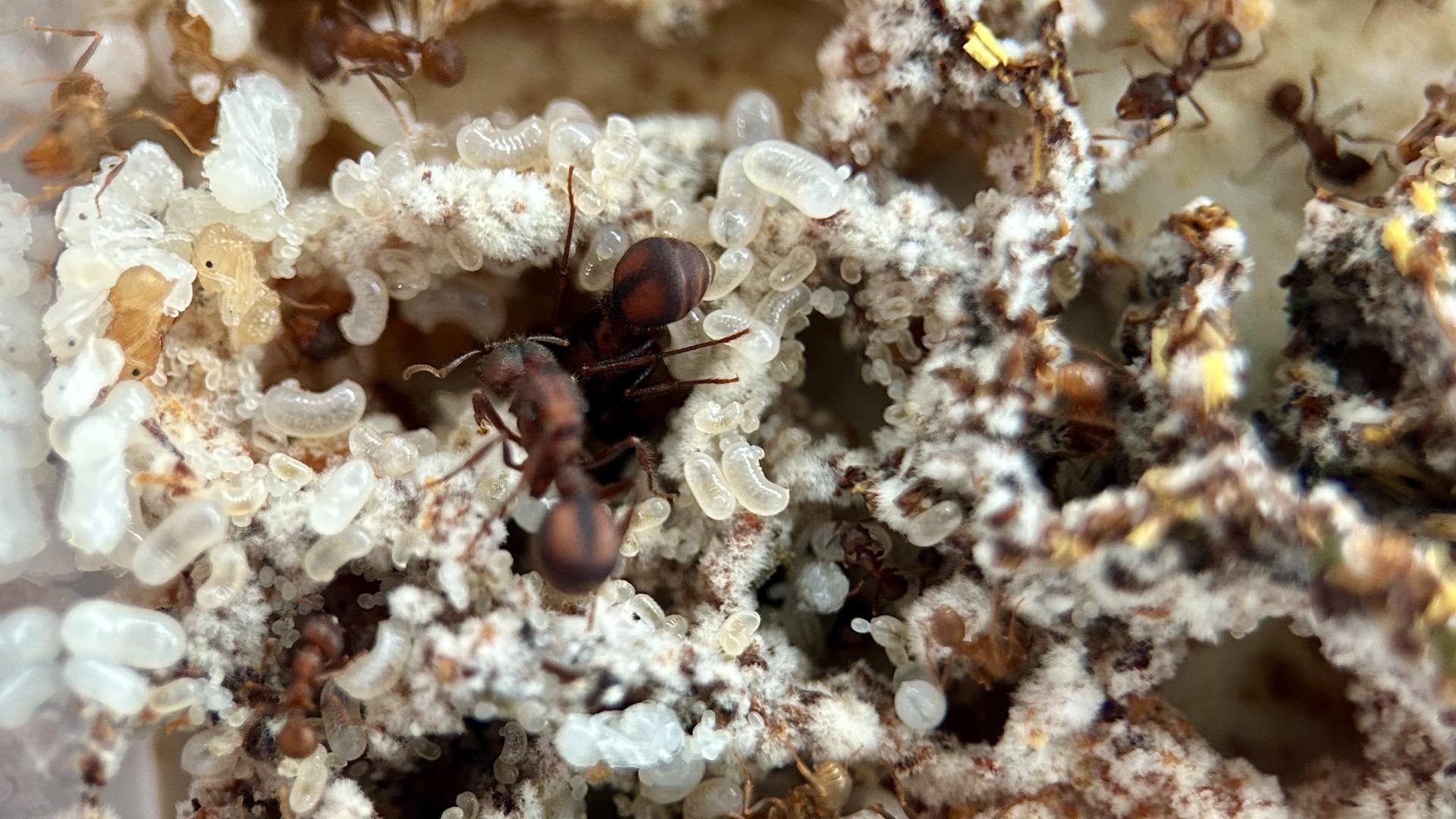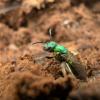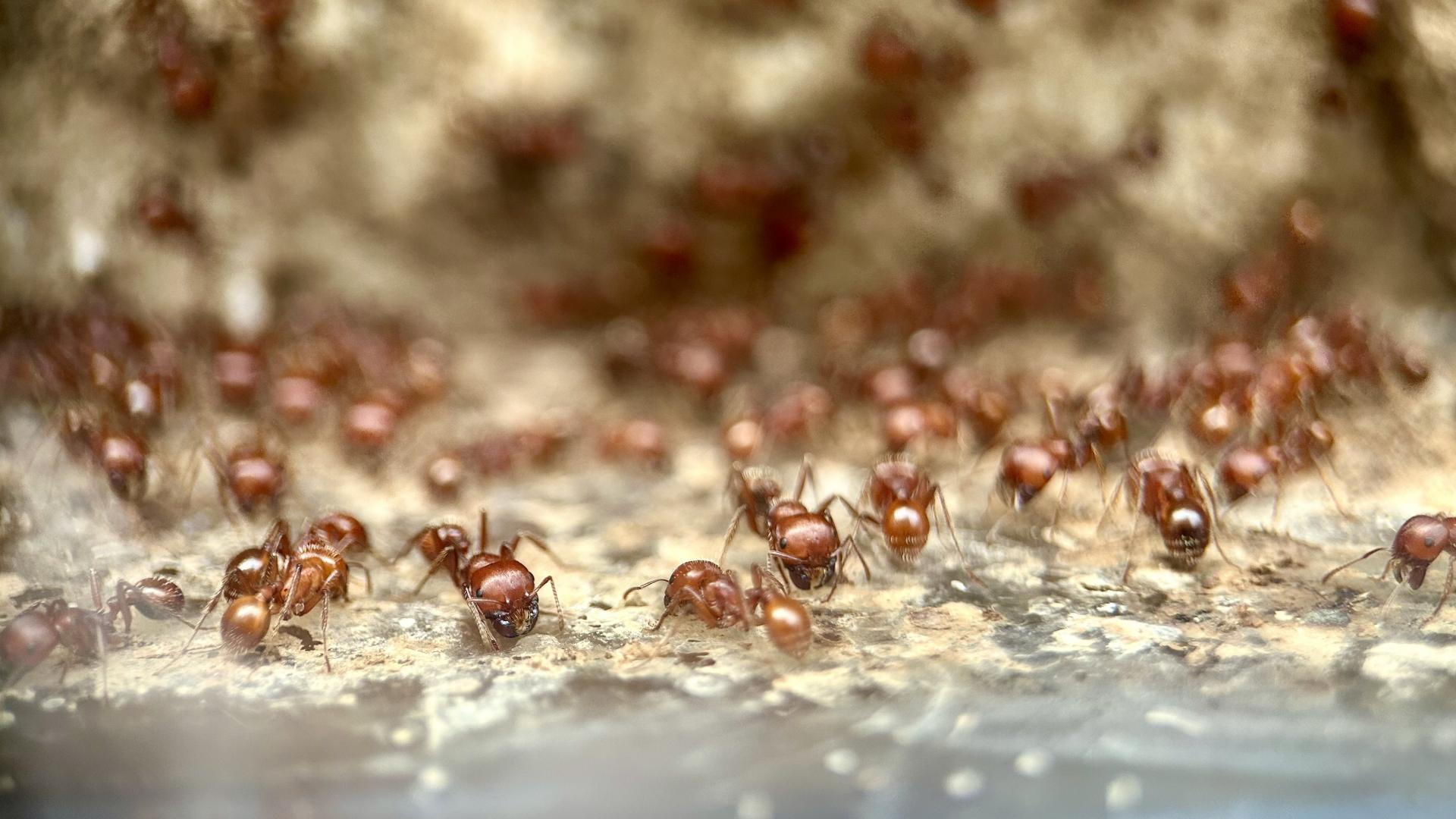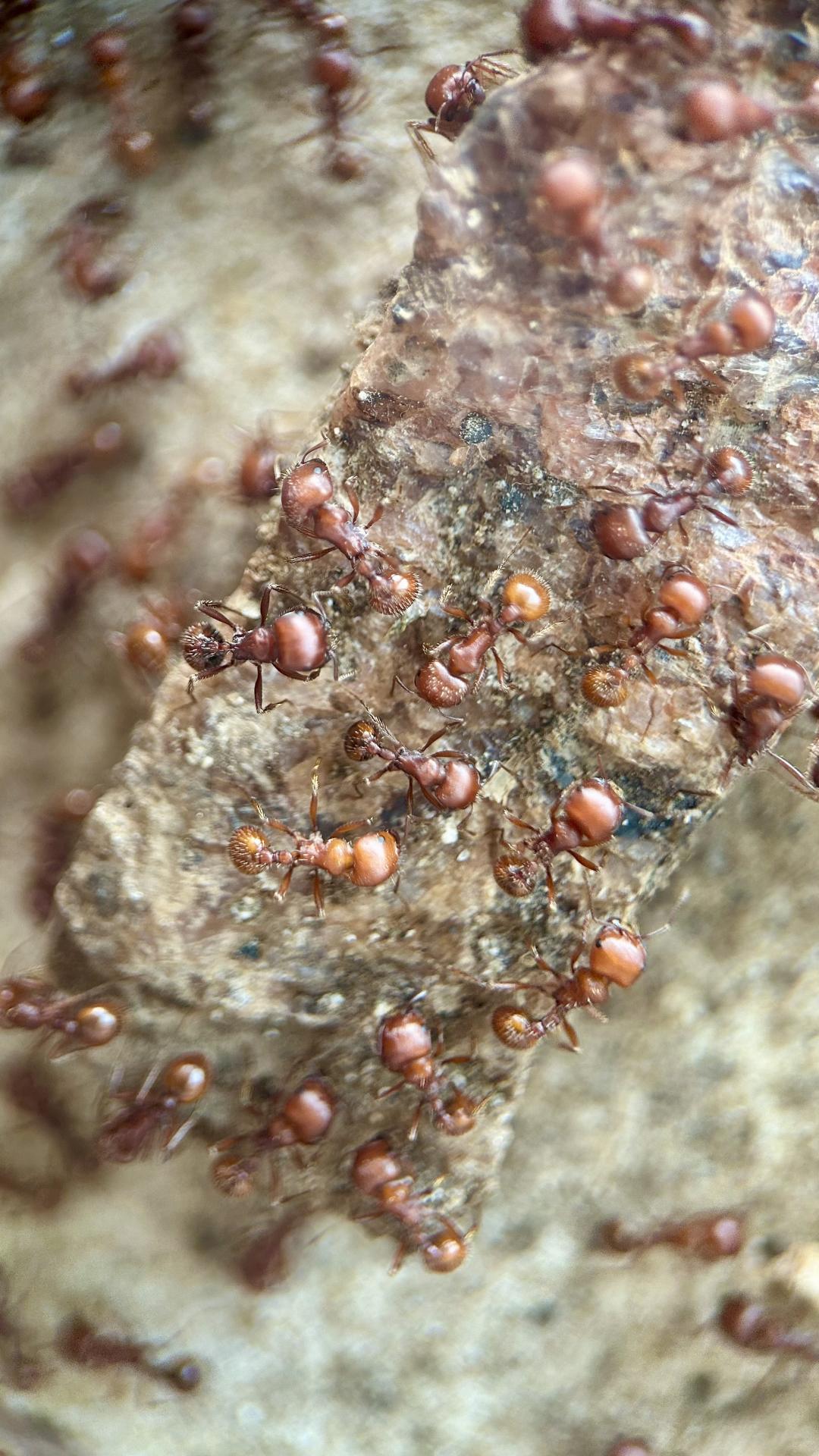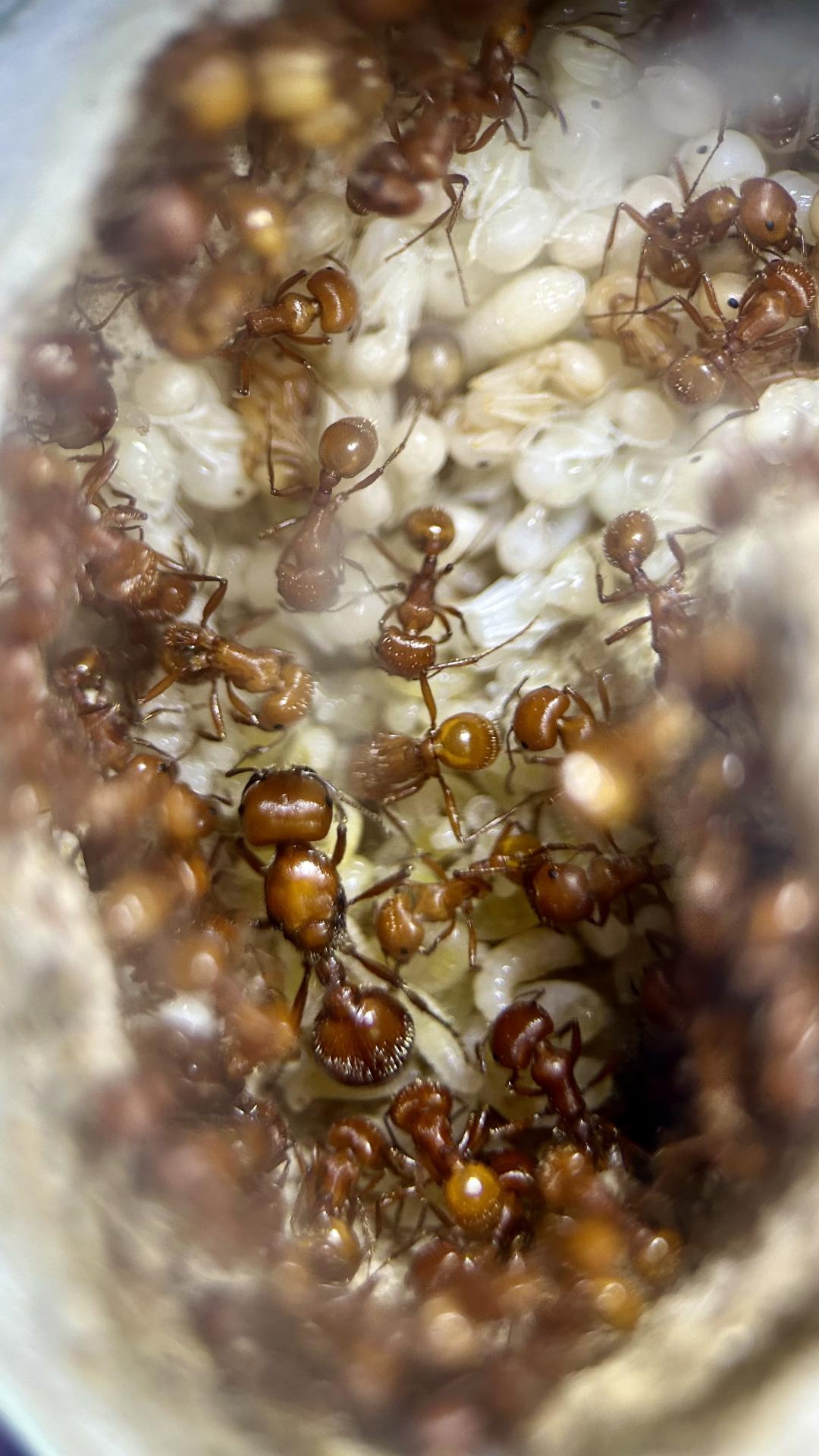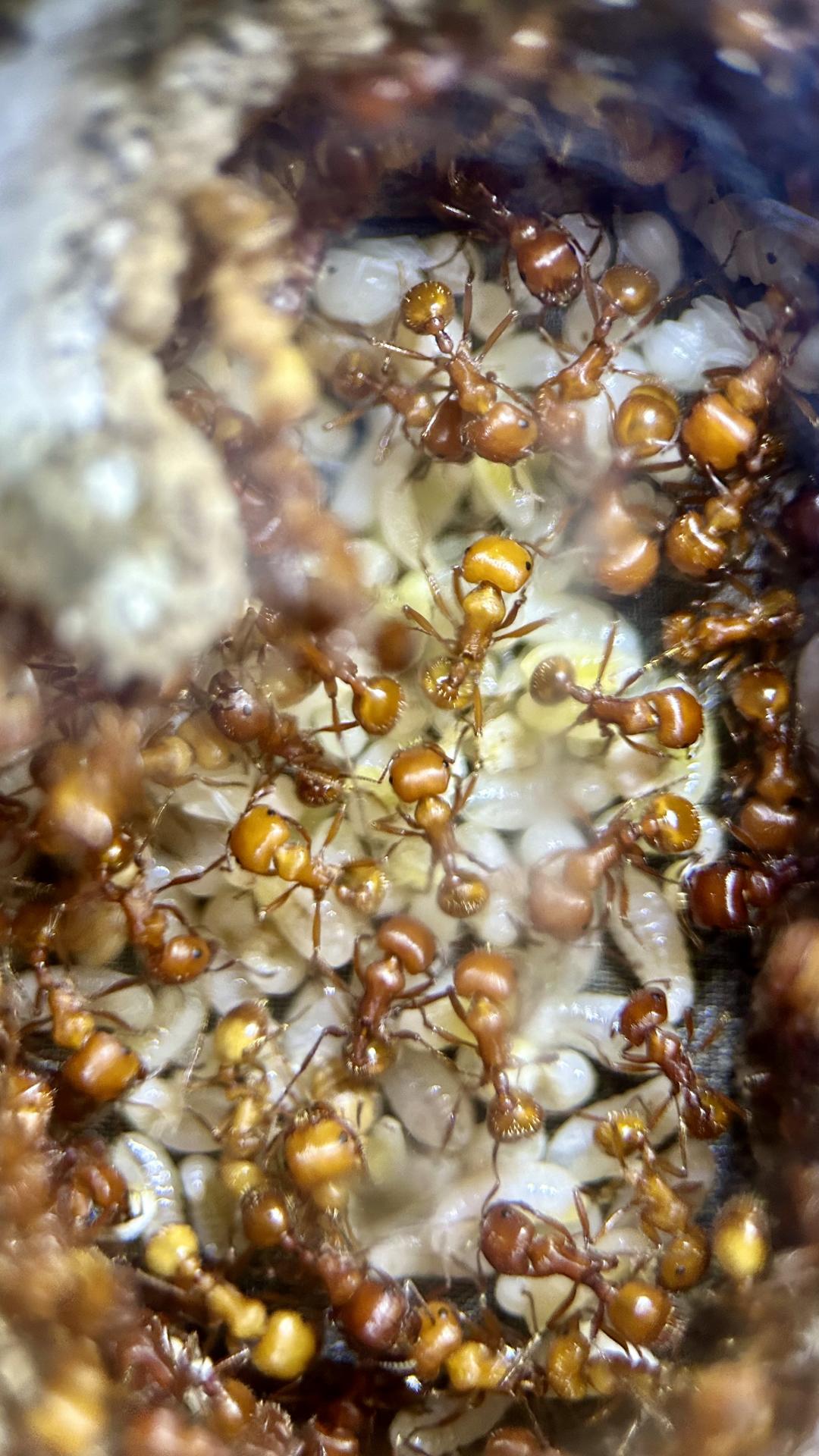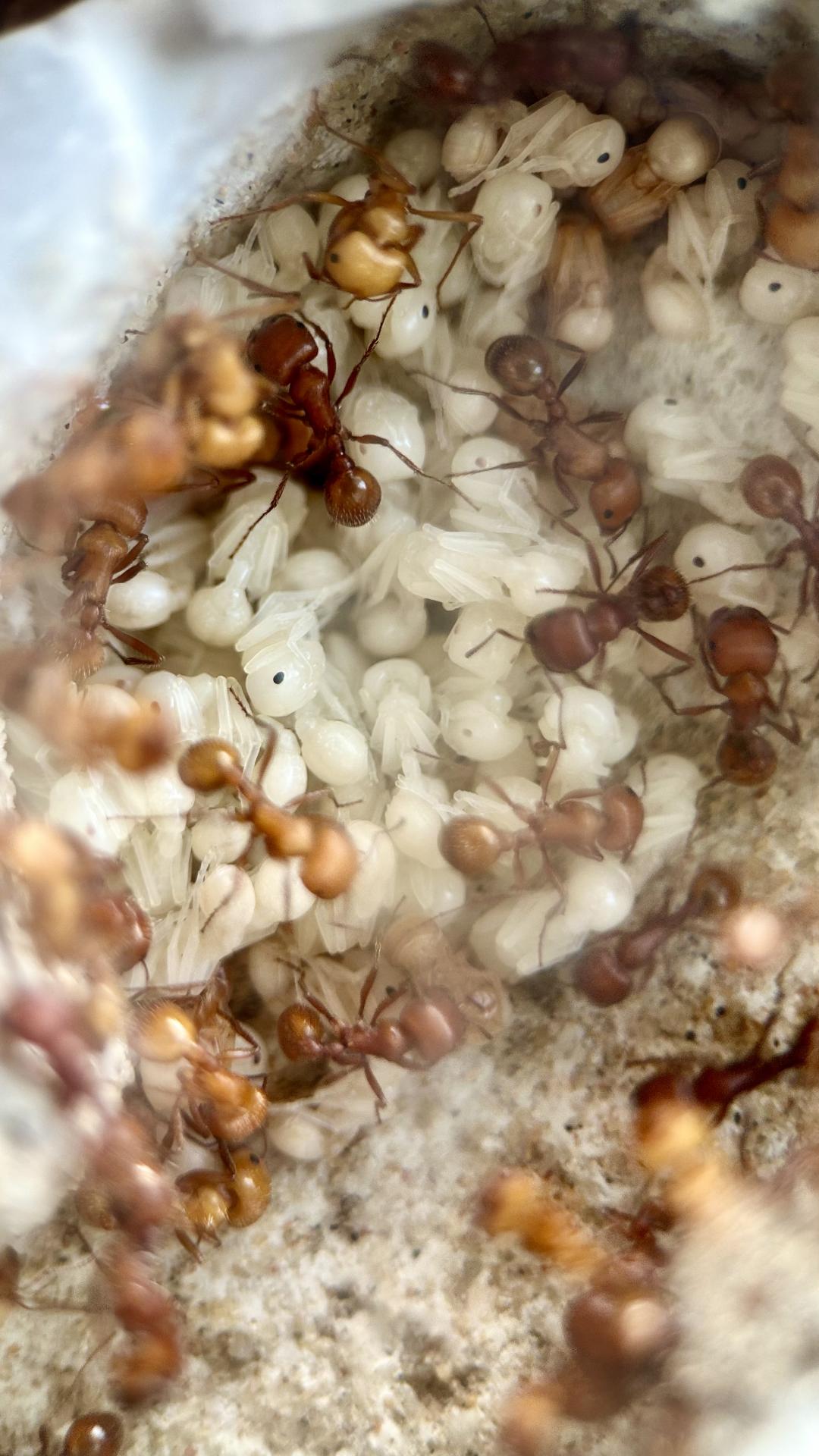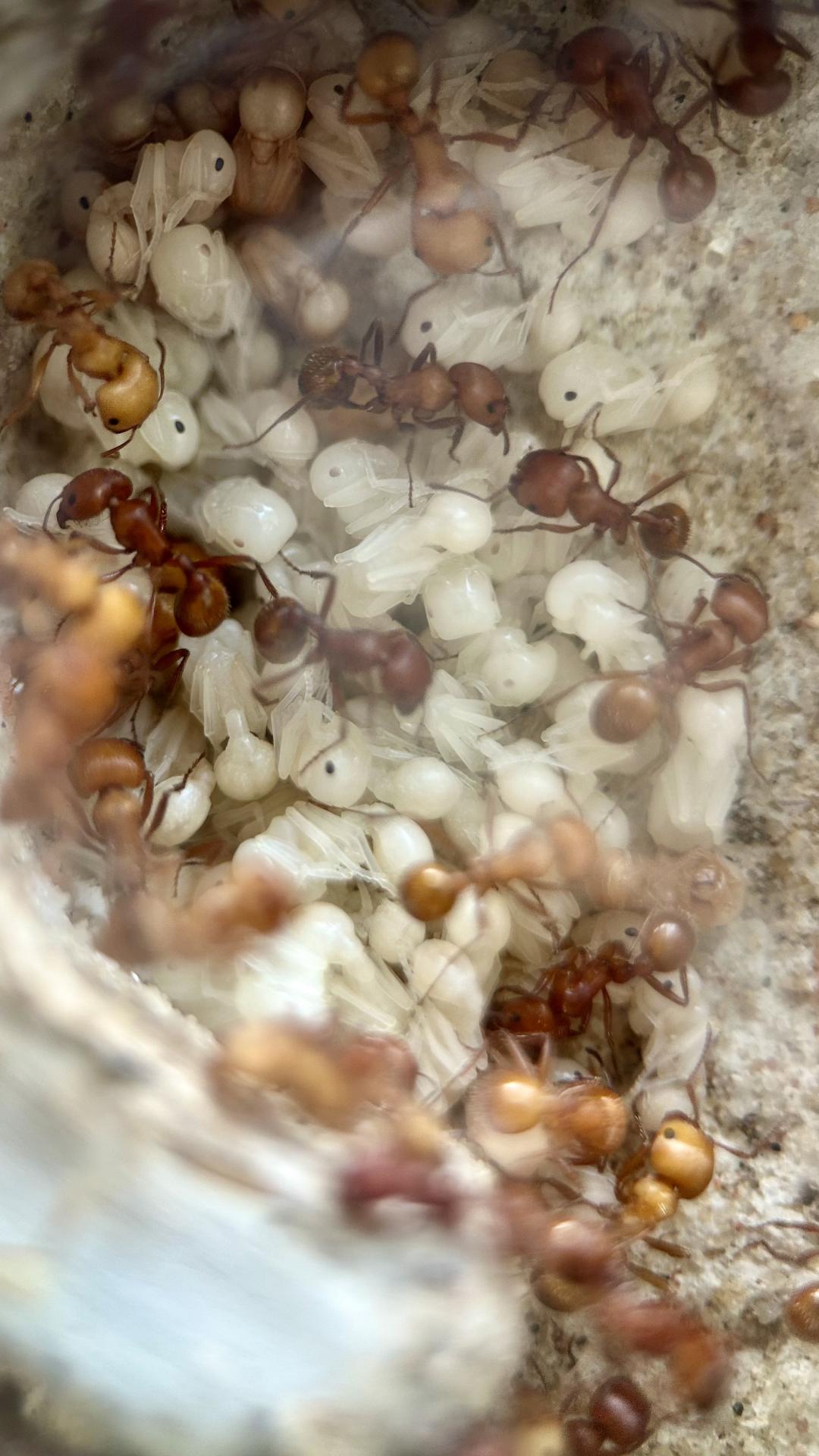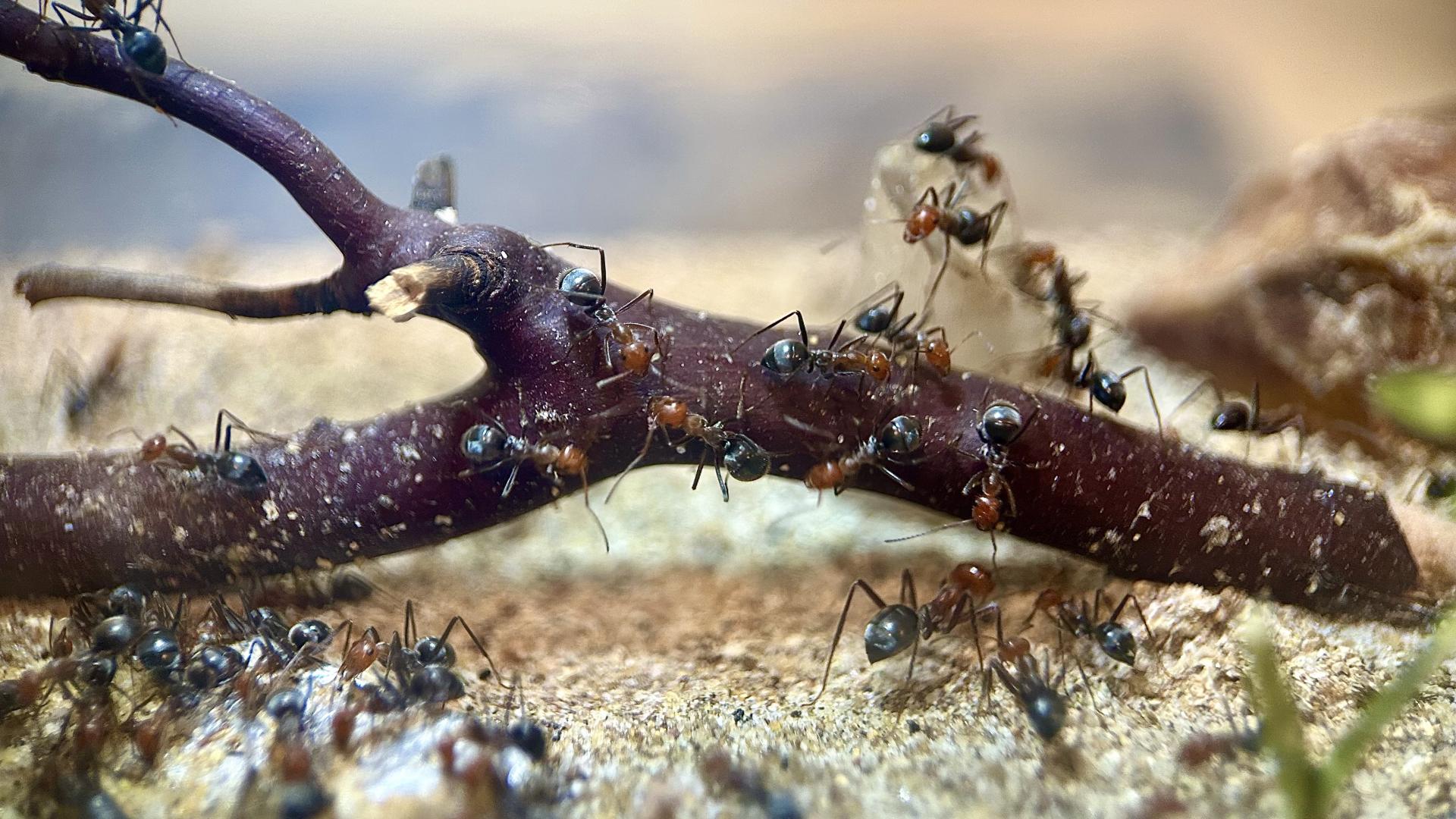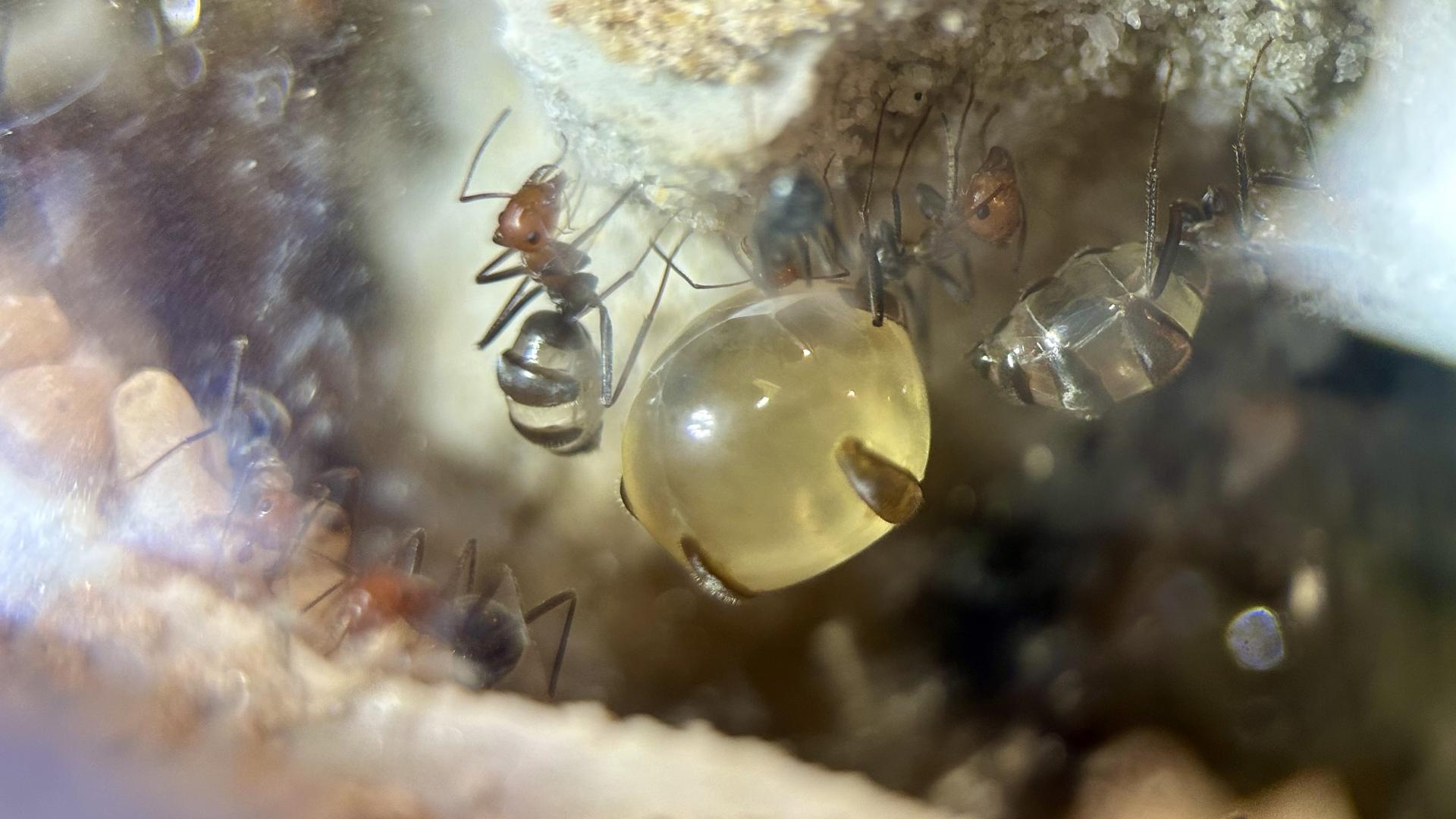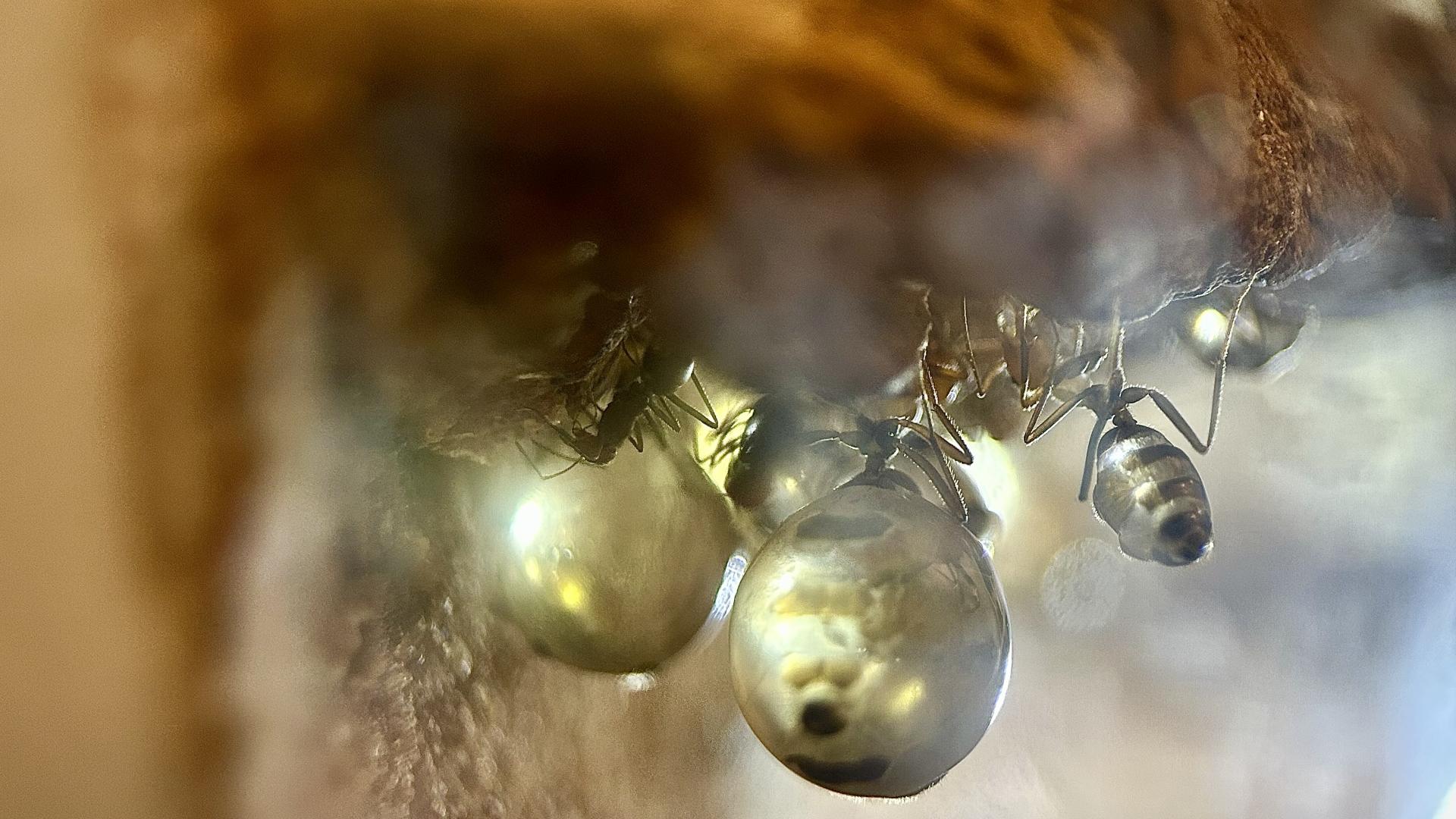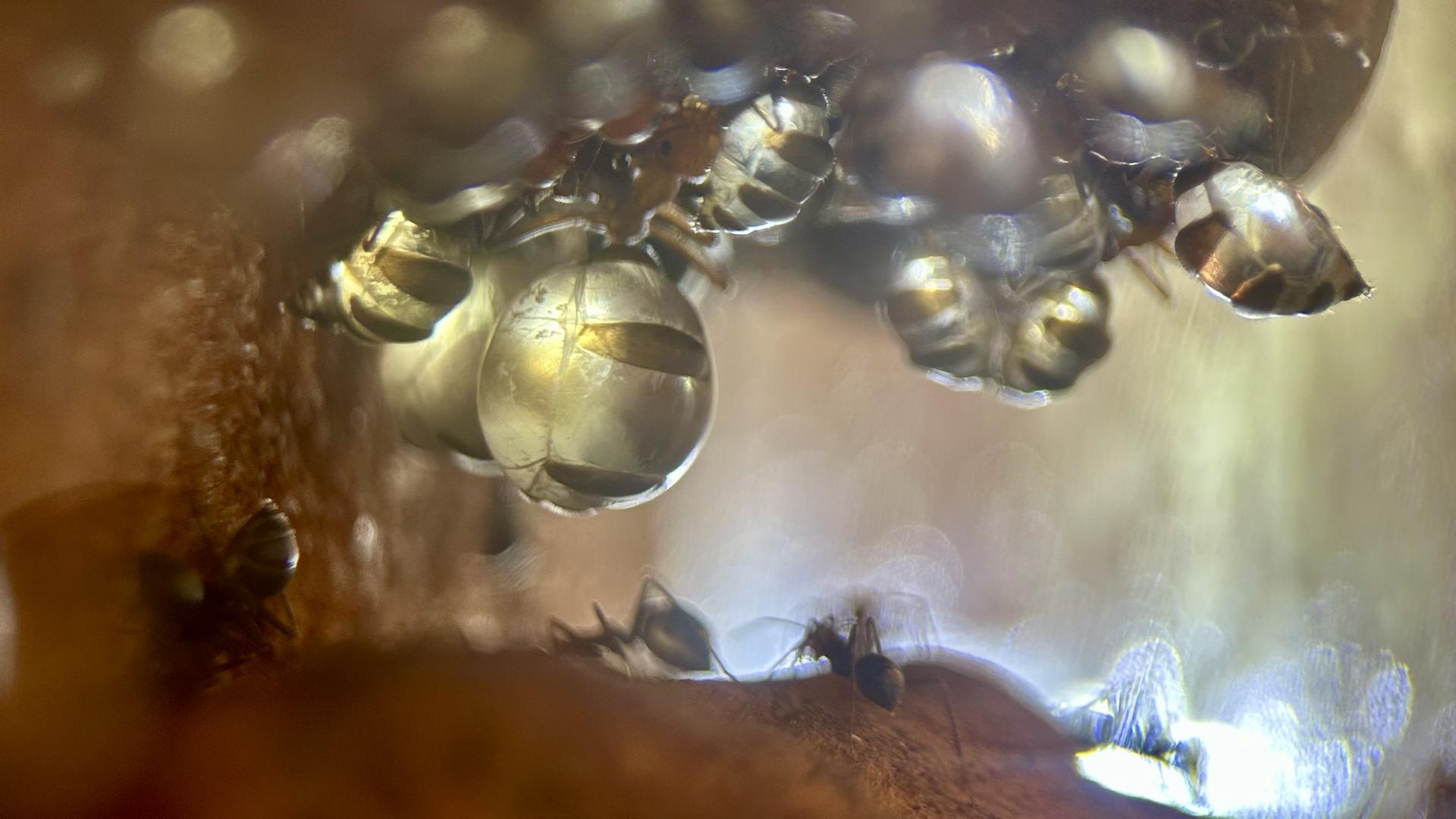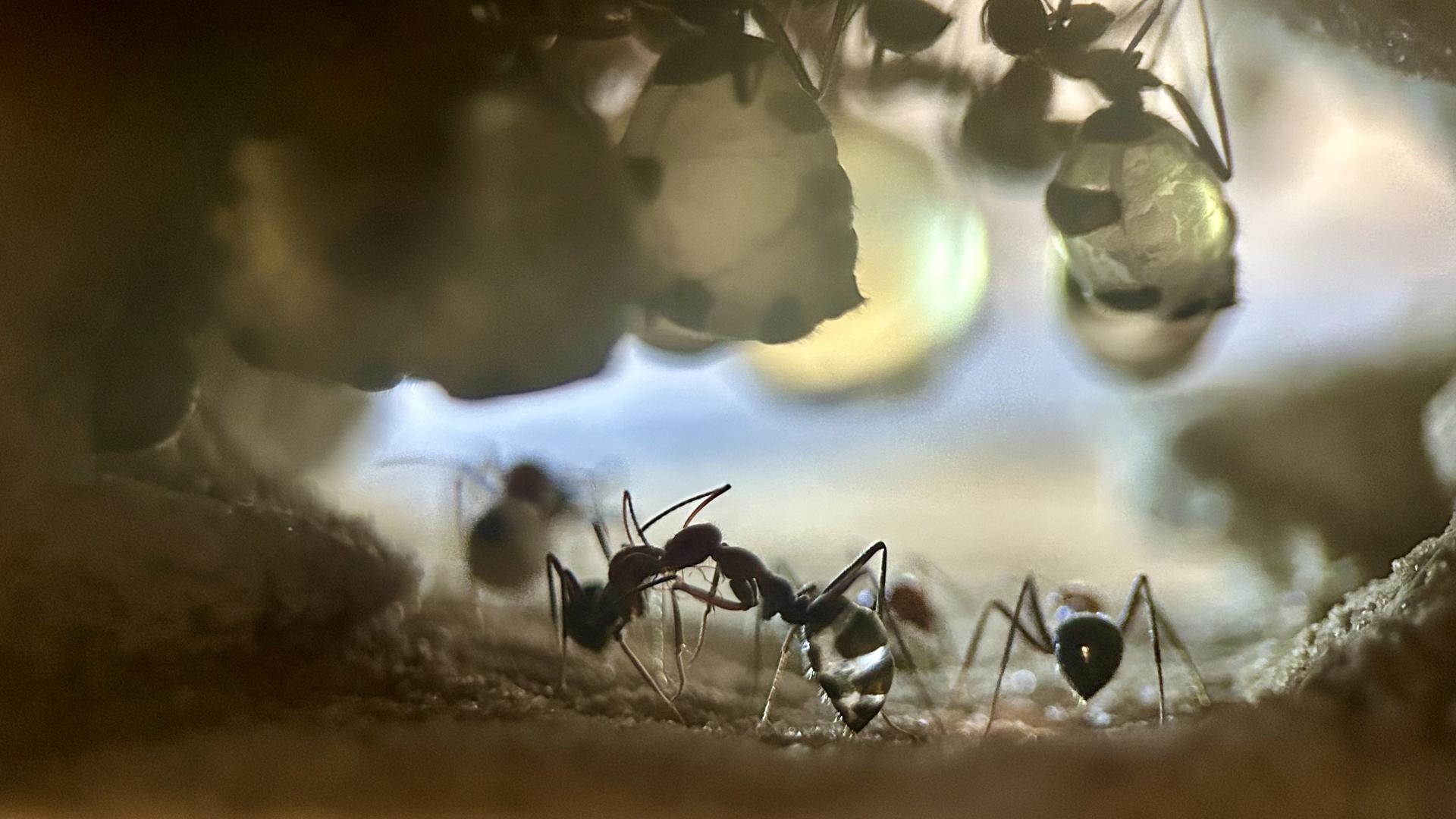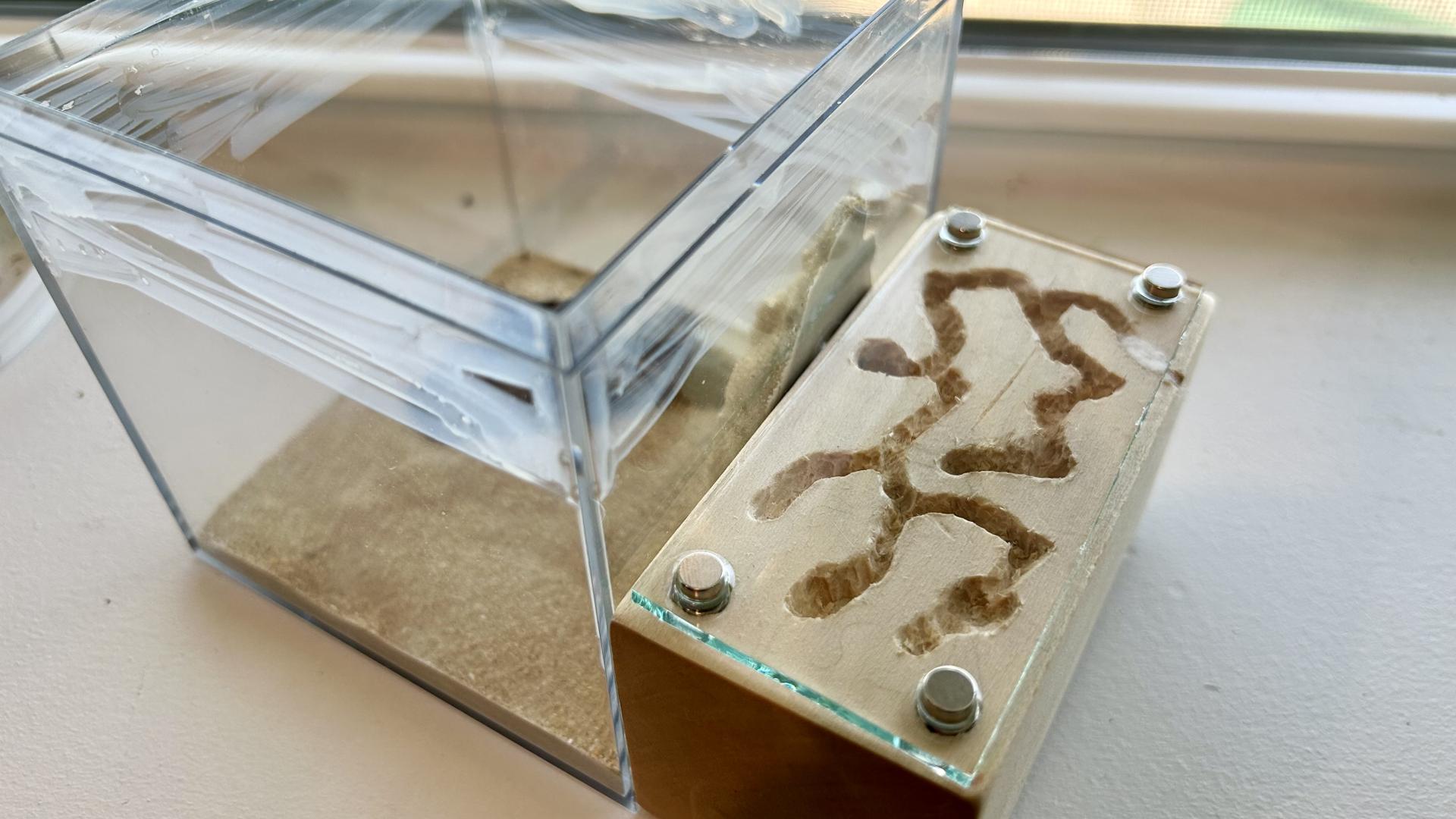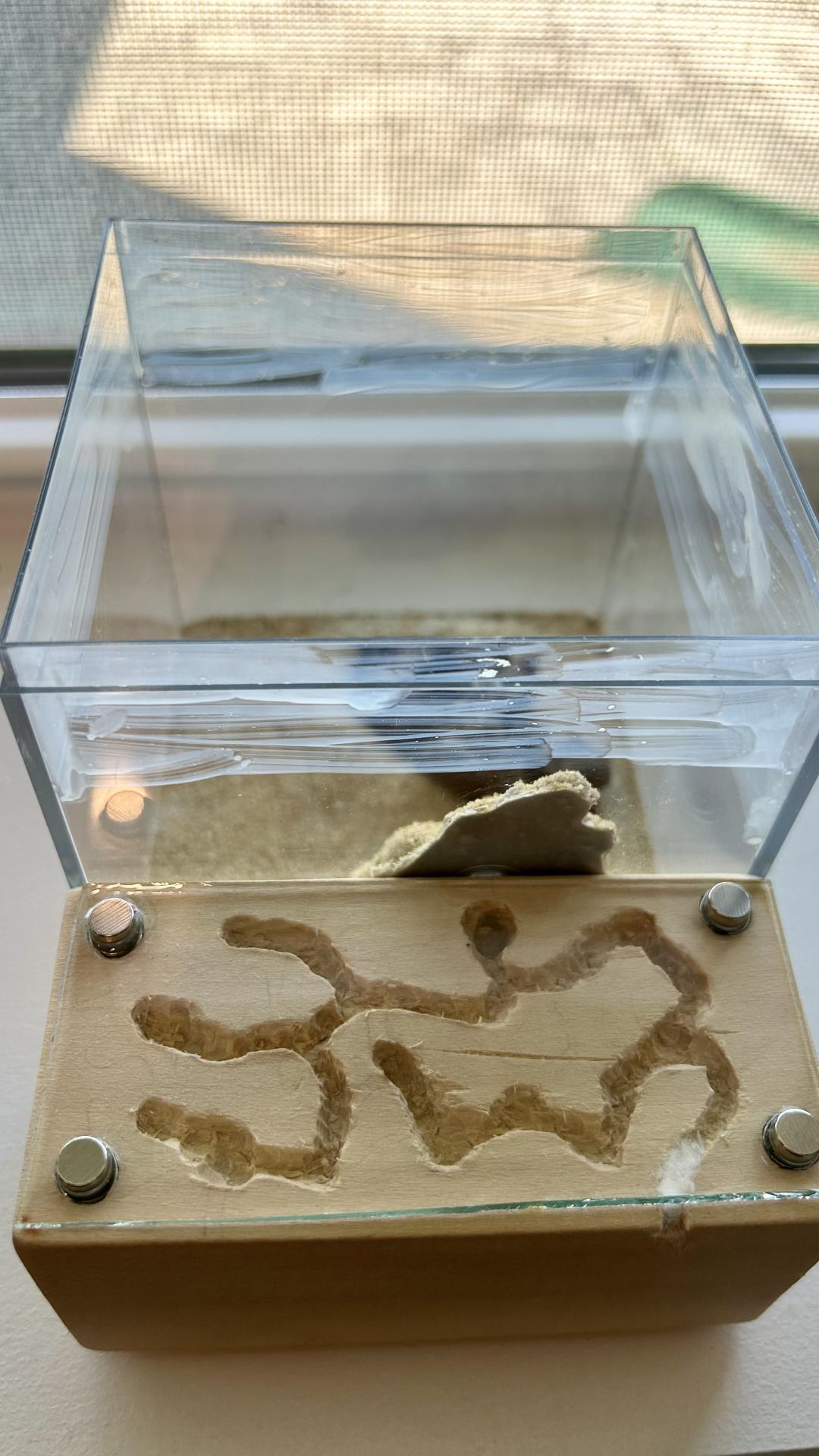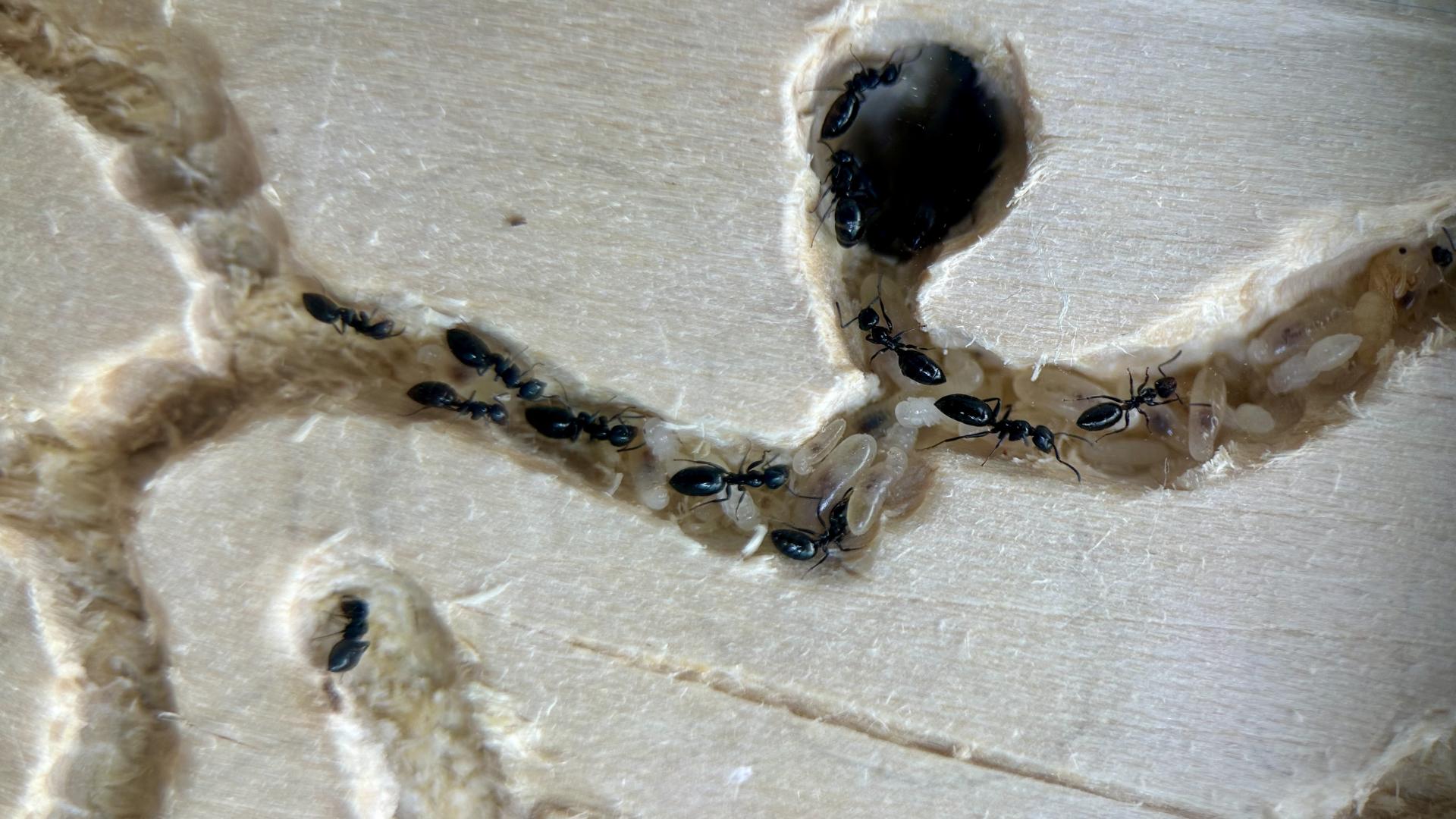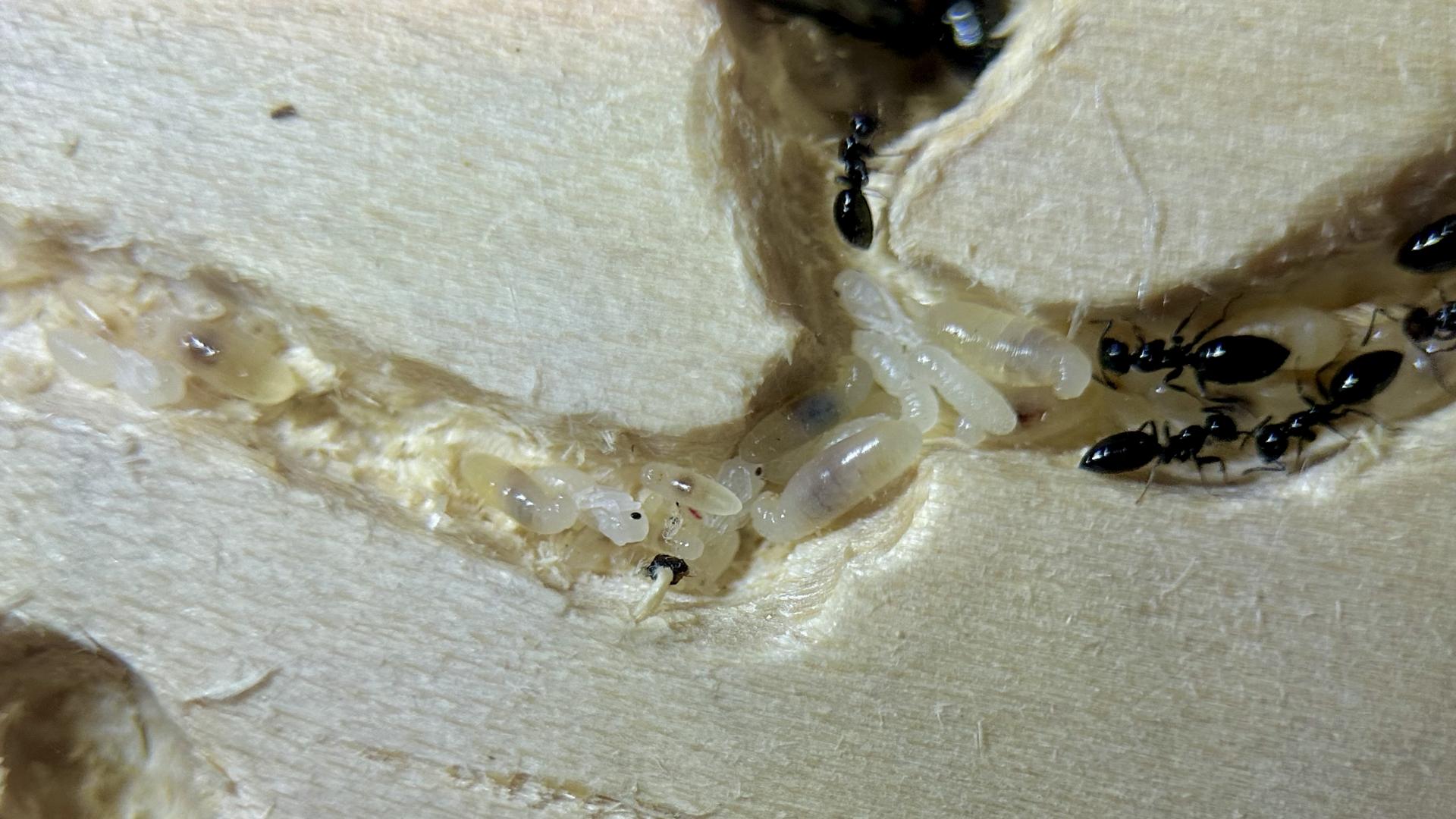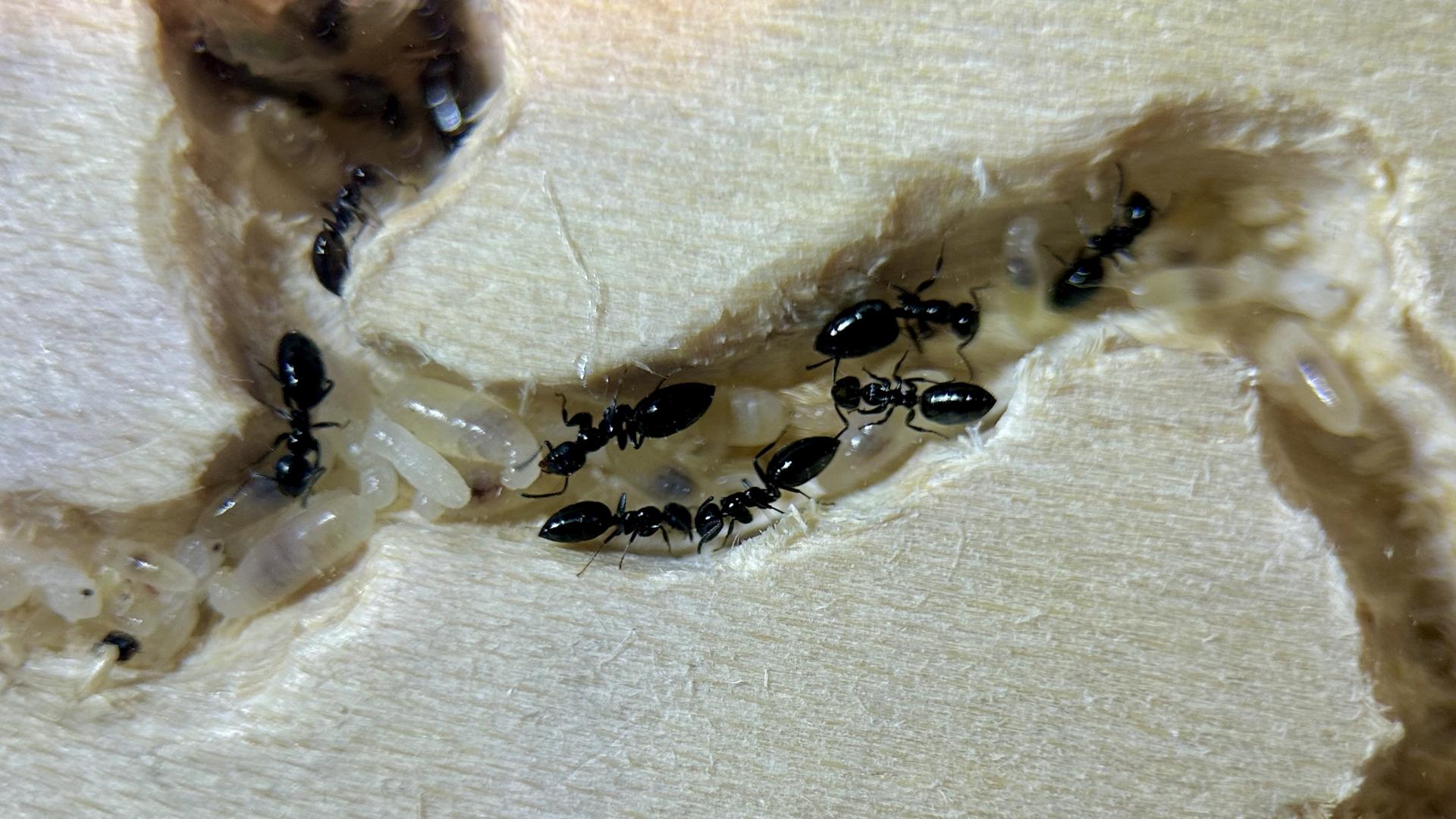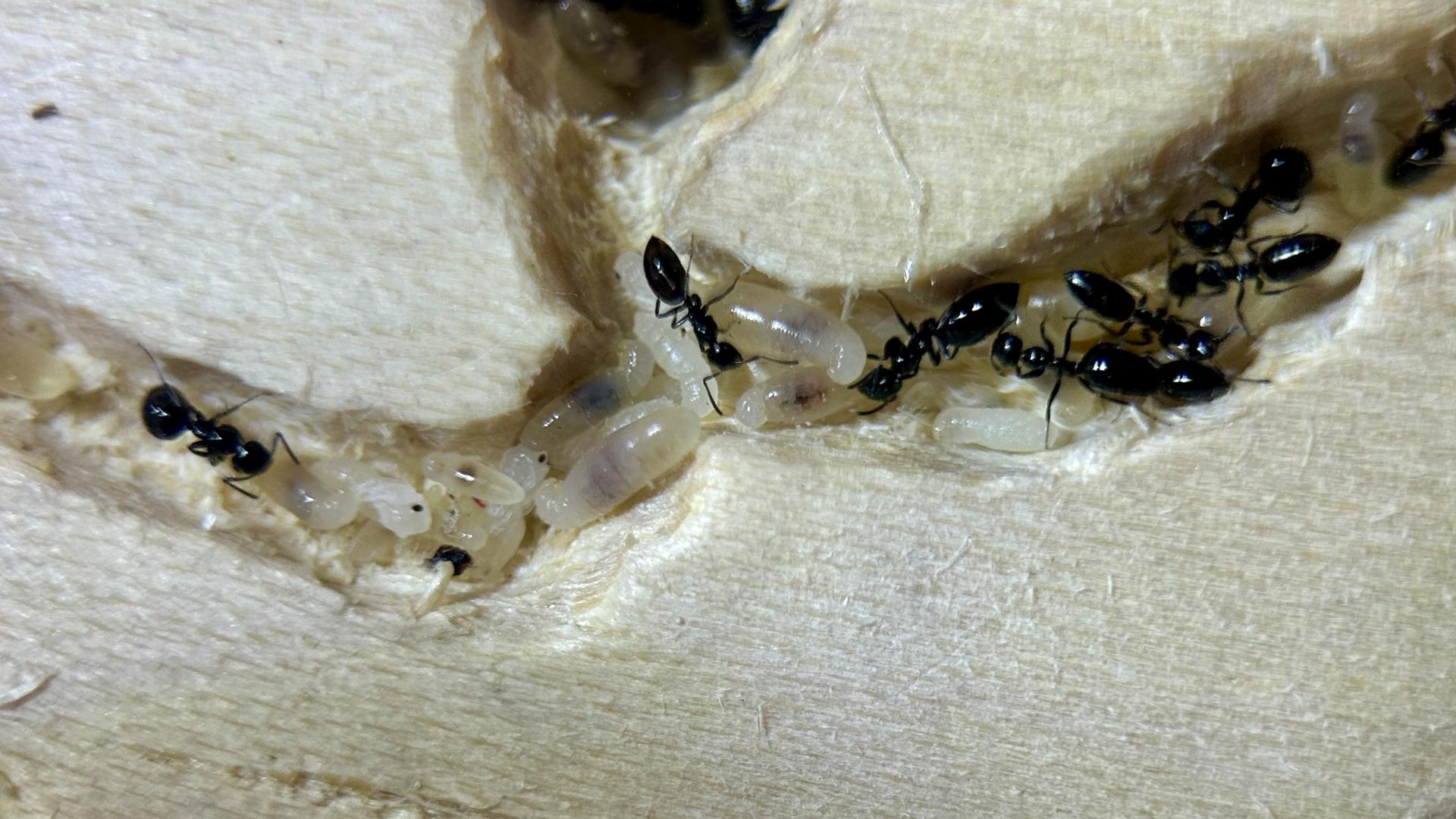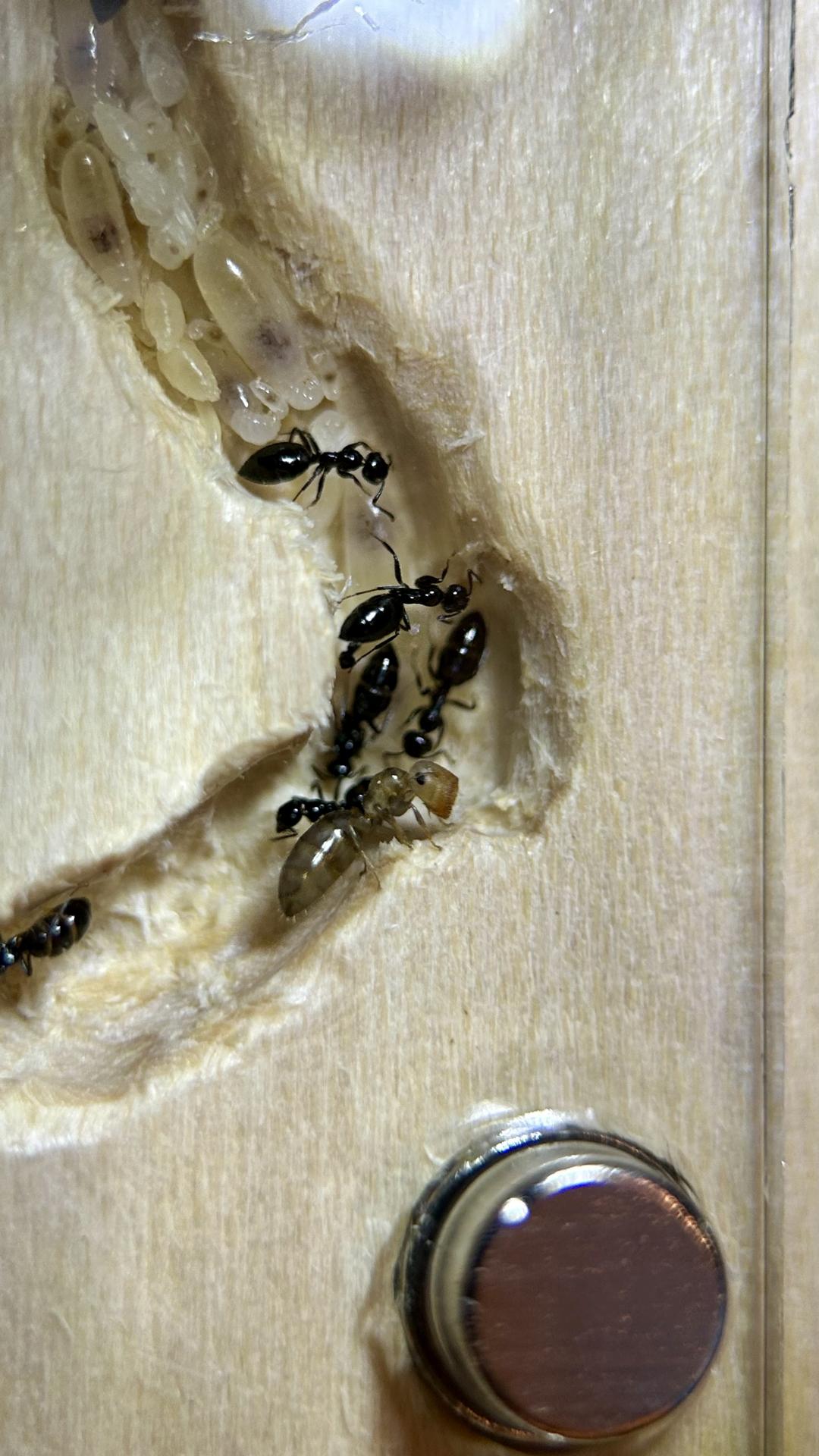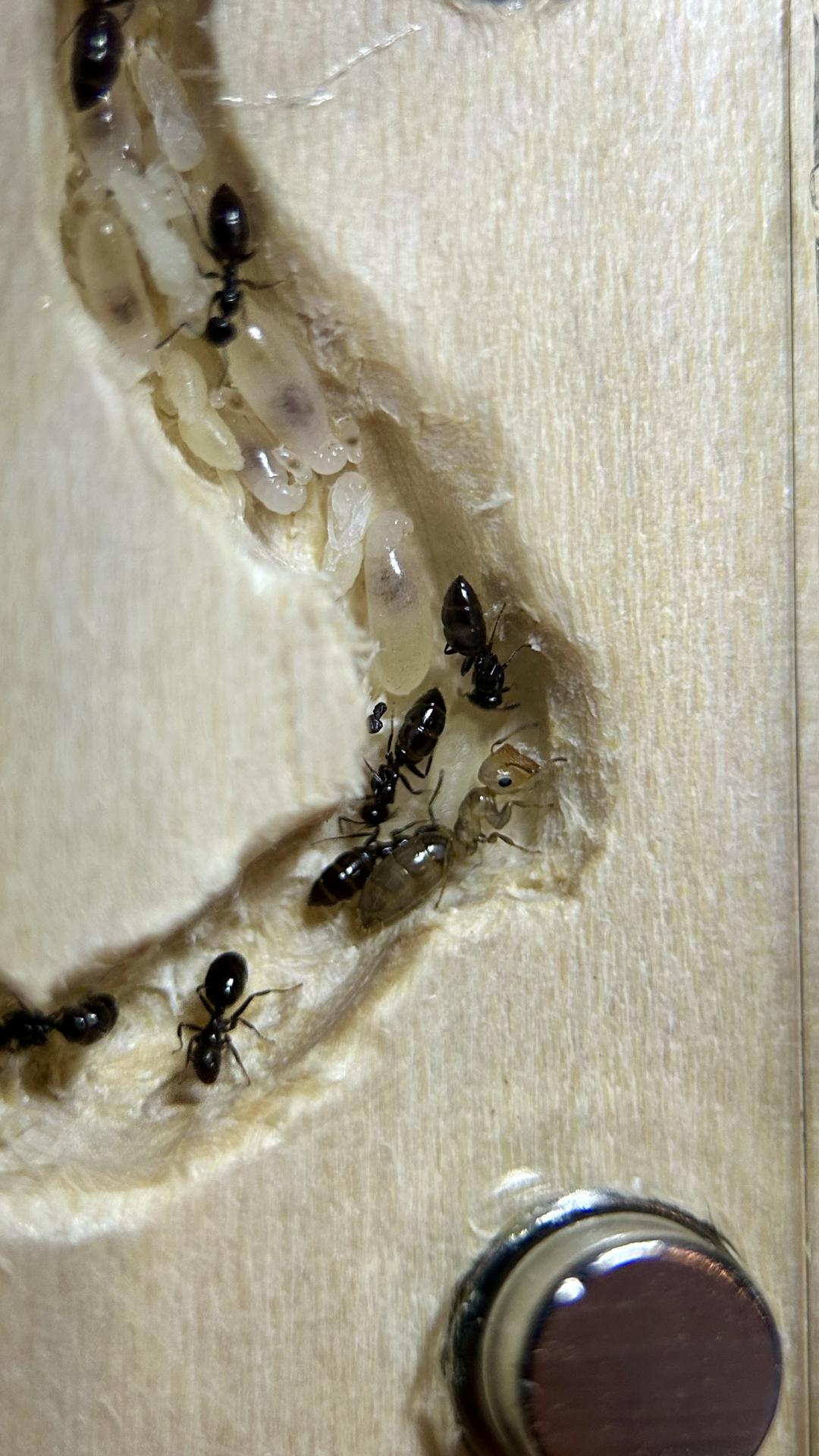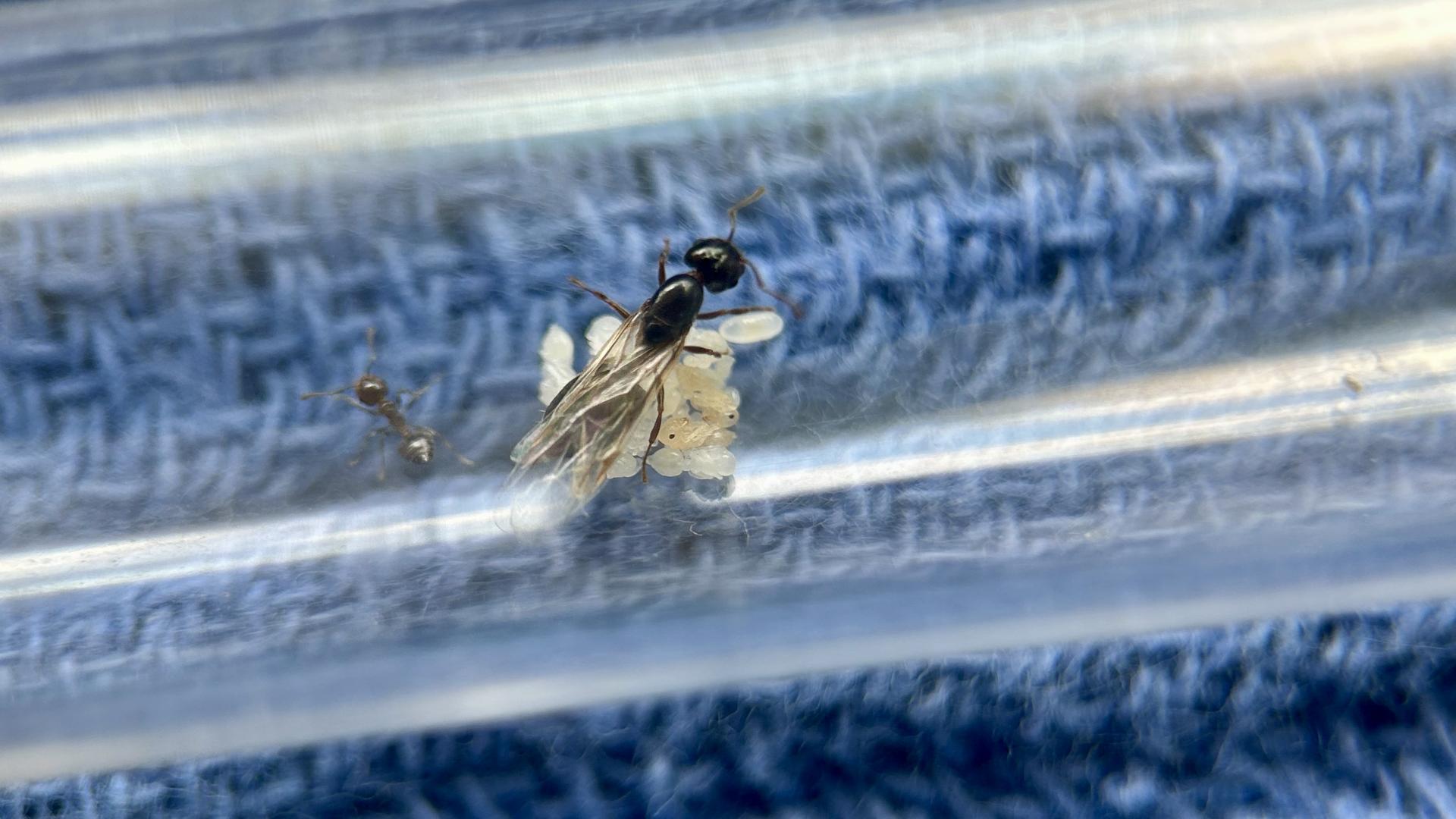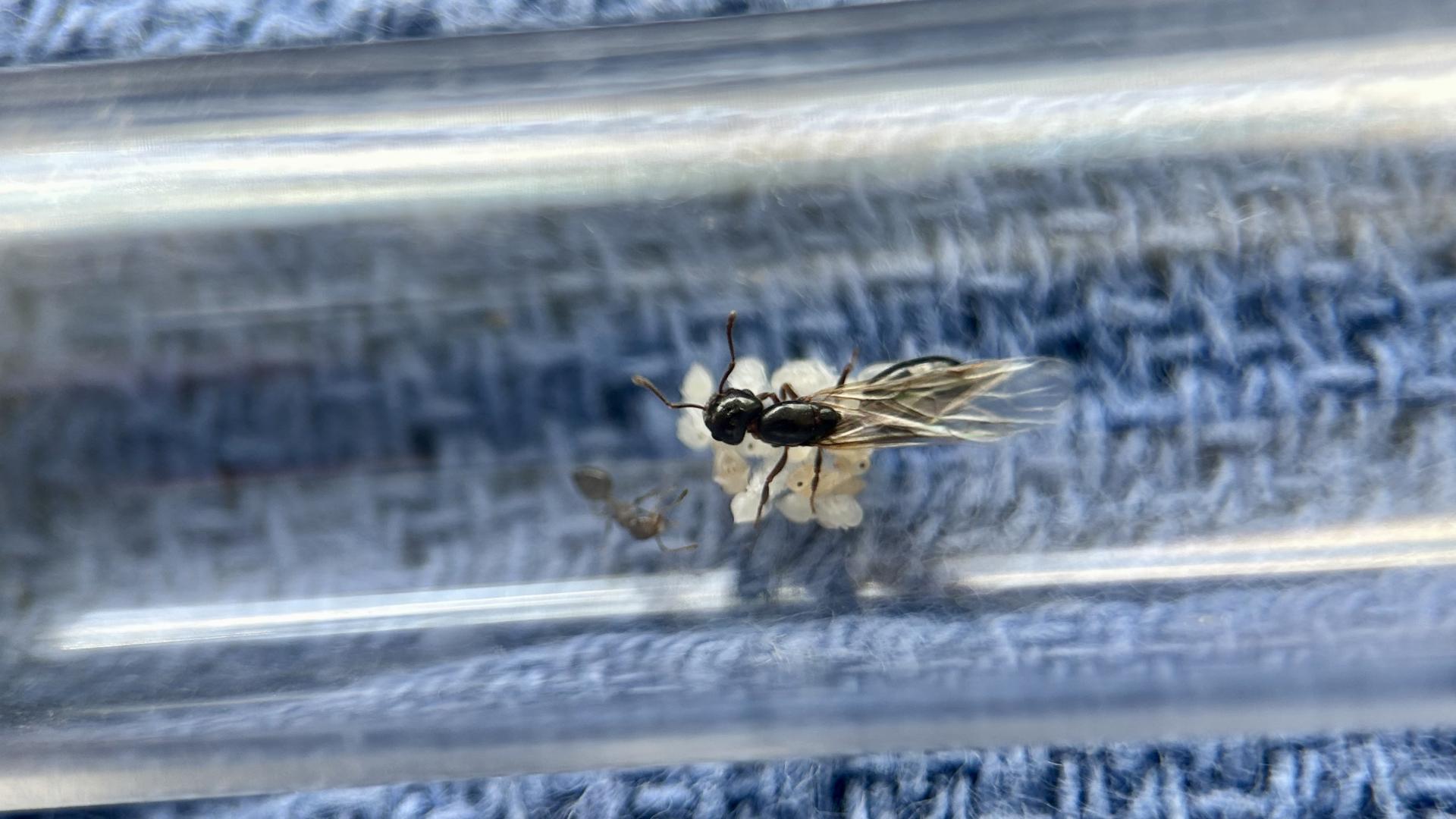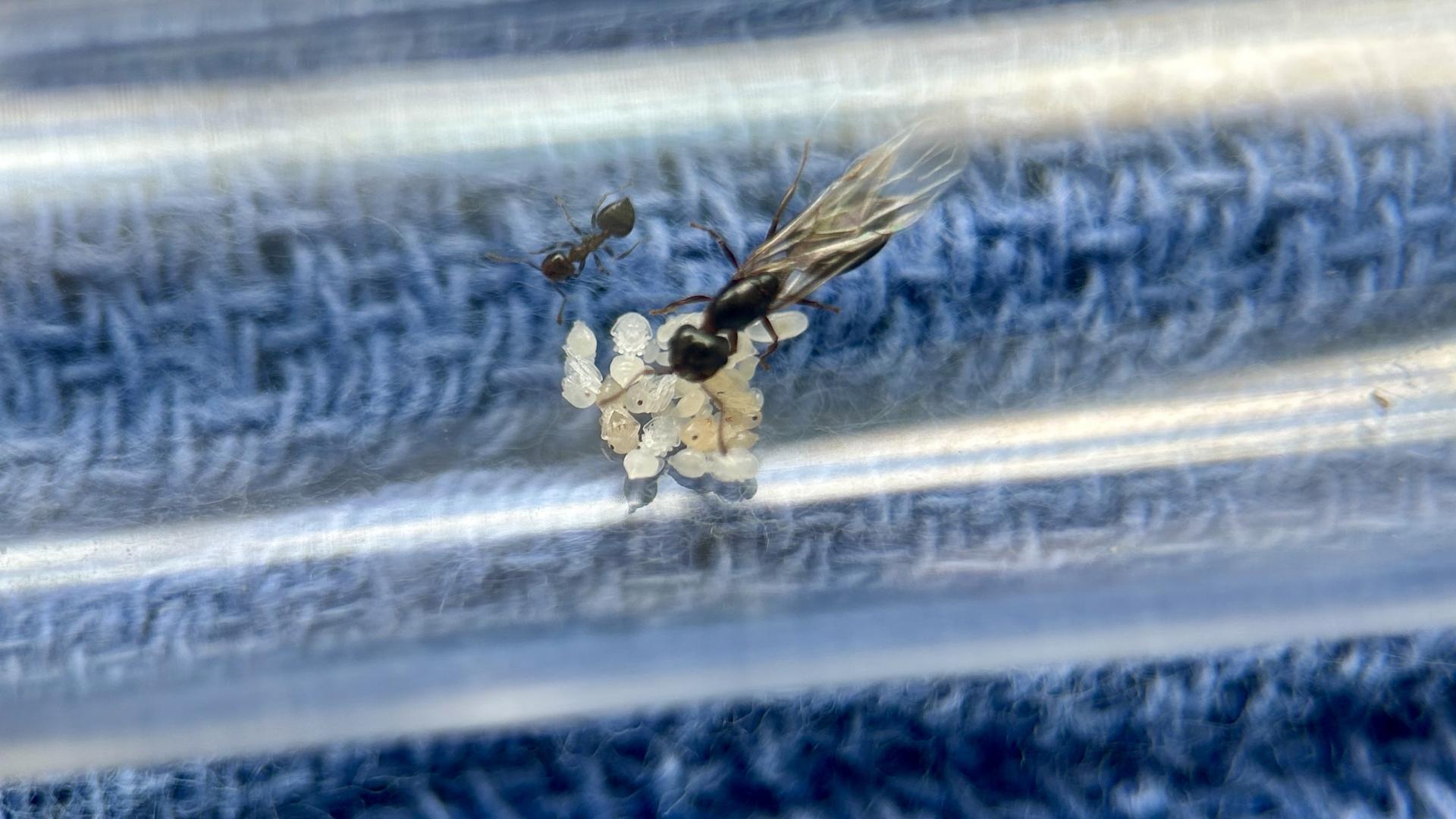- Formiculture.com
- Forums
- Gallery
- Members
- Member Map
- Chat

Kiedeerk's Epic multi-species Ant Keeping Journal
Started By
kiedeerk
, Jul 8 2023 7:15 PM
kiedeerk journal multi-species ant keeping epic
353 replies to this topic
#281
 Offline
-
Posted March 29 2025 - 6:27 AM
Offline
-
Posted March 29 2025 - 6:27 AM
It’s the weekend and finally it’s getting warmer where I am. We are seeing temperatures in the 70s. This signals the start of a new anting season. There are bugs out finally and flowers are blooming. I will be able to give my ants more variety in terms of insect proteins. I find the ants enjoy insects from the outside more than the fruit flies and mealworms.
The native Camponotus are doing great. The pennsylvanicus finally are out of diapause mode. The queen laid a big batch of eggs and they have their first pupae of the year. I included a lesser known species of native Camponotus the caryae. They are very similar to nearcticus apart from having malar hairs. Many ant keepers probably catch them and think of them as nearcticus. You have to look with a very good camera with macro lens or with microscope to see their malar hairs. However they seem to be struggling with only 3 workers by year two. The queen laid a batch of eggs so hoping they can catch up and recover.
The native Camponotus are doing great. The pennsylvanicus finally are out of diapause mode. The queen laid a big batch of eggs and they have their first pupae of the year. I included a lesser known species of native Camponotus the caryae. They are very similar to nearcticus apart from having malar hairs. Many ant keepers probably catch them and think of them as nearcticus. You have to look with a very good camera with macro lens or with microscope to see their malar hairs. However they seem to be struggling with only 3 workers by year two. The queen laid a batch of eggs so hoping they can catch up and recover.
- ANTdrew, rptraut, Ernteameise and 2 others like this
#282
 Offline
-
Posted March 30 2025 - 5:31 PM
Offline
-
Posted March 30 2025 - 5:31 PM
Acromyrmex versicolor update. The largest colony which I transferred to a new nest have had a set back. Possibly due to the stress of the move or changing conditions. They had a die off of 15-20 workers. I don’t think these were from old age and most likely due to the move and changes in nesting condition. The fungal garden also seem to have shrunk a bit. I hope they will recover and restart growing their fungus. or else I might have to make a new nest and move them again. I feel maybe this nest wasn’t made properly or something but I will continue to watch. From close up photos the fungus seem to be doing ok. They still have 50+ workers so I am not too worried. I also have two more colonies which are doing great also. I also have plenty of fungus from my trachy colony if somehow their fungus dies.
- rptraut, OwlThatLikesAnts and MyrmecologyMaven like this
#283
 Offline
-
Posted March 31 2025 - 9:26 AM
Offline
-
Posted March 31 2025 - 9:26 AM
Trachymyrmex septentrionalis Are monster fungus growers. Their fungal garden is almost 2inches tall and covering the entire nest. They keep on building the garden upwards. As you can see I have plenty of fungus to donate to my Acromyrmex if they are ever in need. Flowers are blooming now so I should be able to give them a variety of flowers to pick from. Their favorite are still the rose petals. Their fungus have a strong rose smell it’s quite pleasant.
- AntBoi3030, rptraut, Ernteameise and 2 others like this
#284
 Offline
-
Posted April 2 2025 - 6:59 PM
Offline
-
Posted April 2 2025 - 6:59 PM
If I had not so many colonies. I would focus on a few and have them grow to their true potential. The easiest of the species to do that imo is the novomessor species. They need heat, water, and a source of nuts/seeds. I have not fed these ants any insect proteins for months but that doesn’t stop the queen from laying massive piles of brood. The growth rate of these ants are pretty impressive. They are not picky about food and are super aggressive. They do not have a stinger so they are safe to handle and are easily contained with fluon.
- AntBoi3030, rptraut, Full_Frontal_Yeti and 3 others like this
#285
 Offline
-
Posted April 4 2025 - 7:58 PM
Offline
-
Posted April 4 2025 - 7:58 PM
Camponotus socius are well into their second season. They grow quite a bit faster than most of the native camponotus. They reached 150+ workers in their first season. I expect them to grow faster this season. I hope they can get to 500+ workers which is unheard of for our native camponotus species as socius are large ants comparable in size to castaneus and pennsylvanicus. For example, castaneus may reach 15-20 workers by end of first season and lucky to get to 100+ workers by second season.
- rptraut, Full_Frontal_Yeti, Ernteameise and 2 others like this
#286
 Offline
-
Posted April 13 2025 - 8:08 AM
Offline
-
Posted April 13 2025 - 8:08 AM
Some nice pictures of acromyrmex versicolor. The largest colony is still somewhat recovering. I will see if they can begin to thrive again if I feel that they are declining then I will probably make them a new nest and move them. Meanwhile the two smaller colony are doing great and have increased their worker count from 5-6 to 20-30 in the last month or so. So I believe there is definitely something different about the conditions in the large colony. They sit on the same shelf and are in similar temperature environment so it must be the plaster and humidity.
- rptraut, Full_Frontal_Yeti and OwlThatLikesAnts like this
#287
 Offline
-
Posted April 19 2025 - 10:51 AM
Offline
-
Posted April 19 2025 - 10:51 AM
Trachymyrmex starting to pump out tons of alates. If I see new queen alates then I am pretty sure the real queen is alive. If I just see male alates then most likely the true fertile queen didn’t make it through diapause. Their fungal garden has almost filled their nest up. I have attached a T shaped port and going to make a new nest for them soon.
- AntBoi3030, rptraut, Stubyvast and 2 others like this
#288
 Offline
-
Posted April 20 2025 - 1:31 PM
Offline
-
Posted April 20 2025 - 1:31 PM
A closer look at my native Camponotus species. They have been thriving after coming out of diapause. The weather is warmer now so I am able to get a variety of insects from the outdoors. Spring time is the best time to go look for termites which are ant ants favorite food. They have tons of termite alates in fallen logs. For those people living on the east coast or south, this is the best time to catch termite alates to feed your colonies. With ample food and warmer temperatures, my native Camponotus are going through their growth phase.
Photos 1-2: C nearcticus. Recently moved into a new nest
Photos 3-6: C subbarbatus
Photos 7-9: C chromaoides. Worker count close to 30
Photos 10-14: C castaneus. Worker count up to 20
Photos 15-19: C pennsylvanicus. Superb growth
Photos 1-2: C nearcticus. Recently moved into a new nest
Photos 3-6: C subbarbatus
Photos 7-9: C chromaoides. Worker count close to 30
Photos 10-14: C castaneus. Worker count up to 20
Photos 15-19: C pennsylvanicus. Superb growth
- AntBoi3030, rptraut, Ernteameise and 1 other like this
#289
 Offline
-
Posted April 20 2025 - 4:28 PM
Offline
-
Posted April 20 2025 - 4:28 PM
Indeed, termites flew various times this week, which surprised me.
- GOCAMPONOTUS likes this
"The ants are a people not strong, yet they prepare their meat in the summer." Prov. 30:25
Keep ordinary ants in extraordinary ways.
Keep ordinary ants in extraordinary ways.
#290
 Offline
-
Posted April 27 2025 - 7:32 AM
Offline
-
Posted April 27 2025 - 7:32 AM
Trachymyrmex have eclosed their first alates with many more to come. They have males and virgin queens. Their first fungal box is pretty much full so I added a T connector and attached a new nest. They have already started moving fungus over to the new nest.
- AntBoi3030, rptraut, Stubyvast and 3 others like this
#291
 Offline
-
Posted May 2 2025 - 1:51 PM
Offline
-
Posted May 2 2025 - 1:51 PM
Colobopsis Papago are doing fine. They are quite slow growing although I don’t have them on heat. They have about 25-30 workers with a big healthy brood pile. They have finally made a couple majors. Two major pupae are seen with more to come by the looks of the presence of the large larva. I’m excited to see them finally producing majors.
- AntBoi3030, rptraut, Stubyvast and 2 others like this
#292
 Offline
-
Posted May 9 2025 - 1:47 PM
Offline
-
Posted May 9 2025 - 1:47 PM
Unfortunately the pseudomyrmex queen was not fertile which I already suspected. She passed a while back. About 1 month ago during a warm night, I caught this crematogaster ashmeadi queen. She was alone and still had wings on. I put her in a test tube and assumed she was infertile but to my surprise she laid eggs and the eggs developed into larva and finally we have a worker pupae which confirms fertility.
- AntBoi3030, rptraut and MyrmecologyMaven like this
#293
 Offline
-
Posted May 9 2025 - 2:14 PM
Offline
-
Posted May 9 2025 - 2:14 PM
Oh, man! That’s the only species I really want to find anymore.
"The ants are a people not strong, yet they prepare their meat in the summer." Prov. 30:25
Keep ordinary ants in extraordinary ways.
Keep ordinary ants in extraordinary ways.
#294
 Offline
-
Posted May 10 2025 - 6:03 AM
Offline
-
Posted May 10 2025 - 6:03 AM
My largest acromyrmex colony seems to have recovered. Here are some pictures of their brood pile. You can see brood from all stages. I also noticed that the last few batches of workers are getting bigger as the colony matures. You can see in some pictures the size difference between the workers. Technically Acromyrmex versicolor do not have major cast but the worker size can vary greatly.
- rptraut, Stubyvast and Ernteameise like this
#295
 Offline
-
Posted May 11 2025 - 6:01 AM
Offline
-
Posted May 11 2025 - 6:01 AM
In the third post about the carpenter ants, are you sure the first 2 pics were nearcticus. They looked oddly similar to caryae.
Edited by L.H, May 11 2025 - 7:49 AM.
#296
 Offline
-
Posted May 11 2025 - 8:08 AM
Offline
-
Posted May 11 2025 - 8:08 AM
In the third post about the carpenter ants, are you sure the first 2 pics were nearcticus. They looked oddly similar to caryae.
possibly. i have to take better macro pictures of their jaws and see the malar hairs. it is not easy and I don't have a great macro lens.
I was told caryae are pretty much mostly black in the northeast and the colored ones are most likely nearcticus
#297
 Offline
-
Posted May 18 2025 - 7:02 AM
Offline
-
Posted May 18 2025 - 7:02 AM
Pogonomyrmex barbatus are truly desert species that have explosive growth with only providing heat, water, and seeds. I have not fed them any proteins for the past 3 months. I have neglected them for the winter months but their number increased from 100 or so workers to probably 500+ at this point maybe even more. They are to the point where I might have to take them off heat as they are swarming the outworld and making it difficult to open the lid.
- rptraut and MyrmecologyMaven like this
#298
 Offline
-
Posted May 18 2025 - 12:35 PM
Offline
-
Posted May 18 2025 - 12:35 PM
M. placadops 01 have been doing well. I had issues with their larva not spinning well and they were taking out their sand out of the nest. I solved their problem by increasing humidity so the sand is wet and clump up. This helps the workers carry it to the larvae. Now they have hundreds of pupae in their nests. The down side is it makes their glass very blurry and dirty.
- AntBoi3030, rptraut, Ernteameise and 2 others like this
#299
 Offline
-
Posted May 21 2025 - 3:12 AM
Offline
-
Posted May 21 2025 - 3:12 AM
Colobopsis Papago were outgrowing their test tube set up and it was getting difficult to feed them without workers escaping. So I made them a new wooden formicarium. I was worried they wouldn’t be able to climb the steep wall while carrying all the brood. But they had no issues. I almost always just dump the colonies into the outworld when I am moving colonies. I made the entrance very small but that’s how they like it. They even made the entrance smaller by chewing up wood and sticking to the entrance. Unfortunately I squished one of their major pupae during the move but they had another and she just eclosed.
- ANTdrew, AntBoi3030, Ernteameise and 3 others like this
#300
 Offline
-
Posted May 24 2025 - 9:43 AM
Offline
-
Posted May 24 2025 - 9:43 AM
Also tagged with one or more of these keywords: kiedeerk, journal, multi-species, ant keeping, epic
Ant Keeping →
Ant Keeping Journals →
cooIboyJ's Nylanderia vividula journalStarted by cooIboyJ , Sep 6 2025 |
|
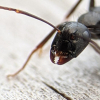
|
||
Ant Keeping →
Ant Keeping Journals →
Ants_Dakota's Camponotus sp. JournalStarted by Ants_Dakota , Jul 13 2025 |
|
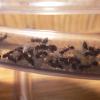
|
||
Ant Keeping →
Ant Keeping Journals →
Strickys Formica JournalStarted by stricky_ants , Jun 21 2025 |
|
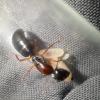
|
||
Ant Keeping →
Ant Keeping Journals →
AntTx's Camponotus sansabeanus JournalStarted by AntsTx , Jun 17 2025 |
|
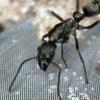
|
||
Ant Keeping →
Ant Keeping Journals →
The Bark Battalion (Liometopum occidentale)Started by AntsGodzilla , Jun 3 2025 |
|
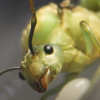
|
0 user(s) are reading this topic
0 members, 0 guests, 0 anonymous users


